DIGITAL COVER: TANNER REESE
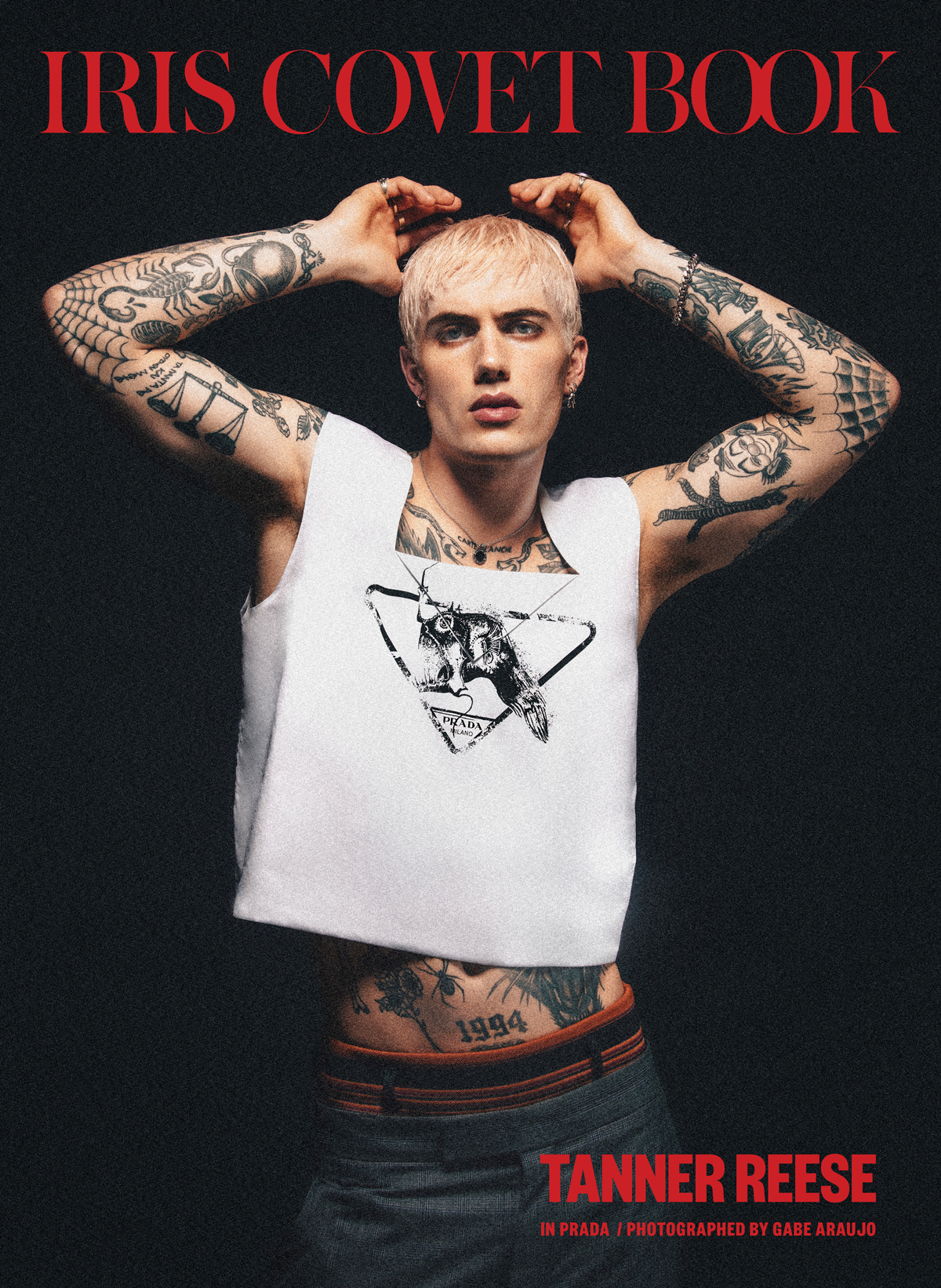
Top, Short and Pant by Prada
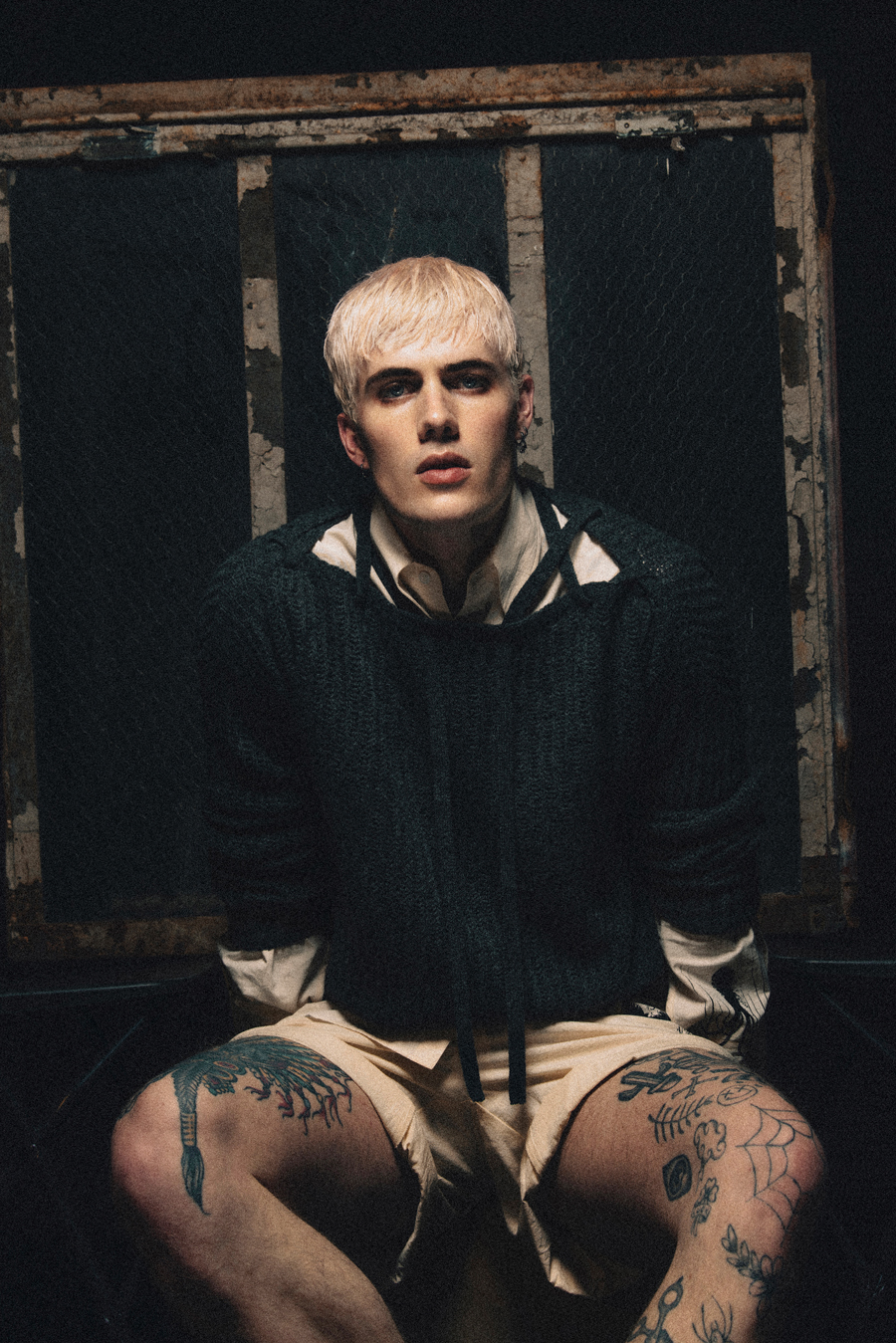
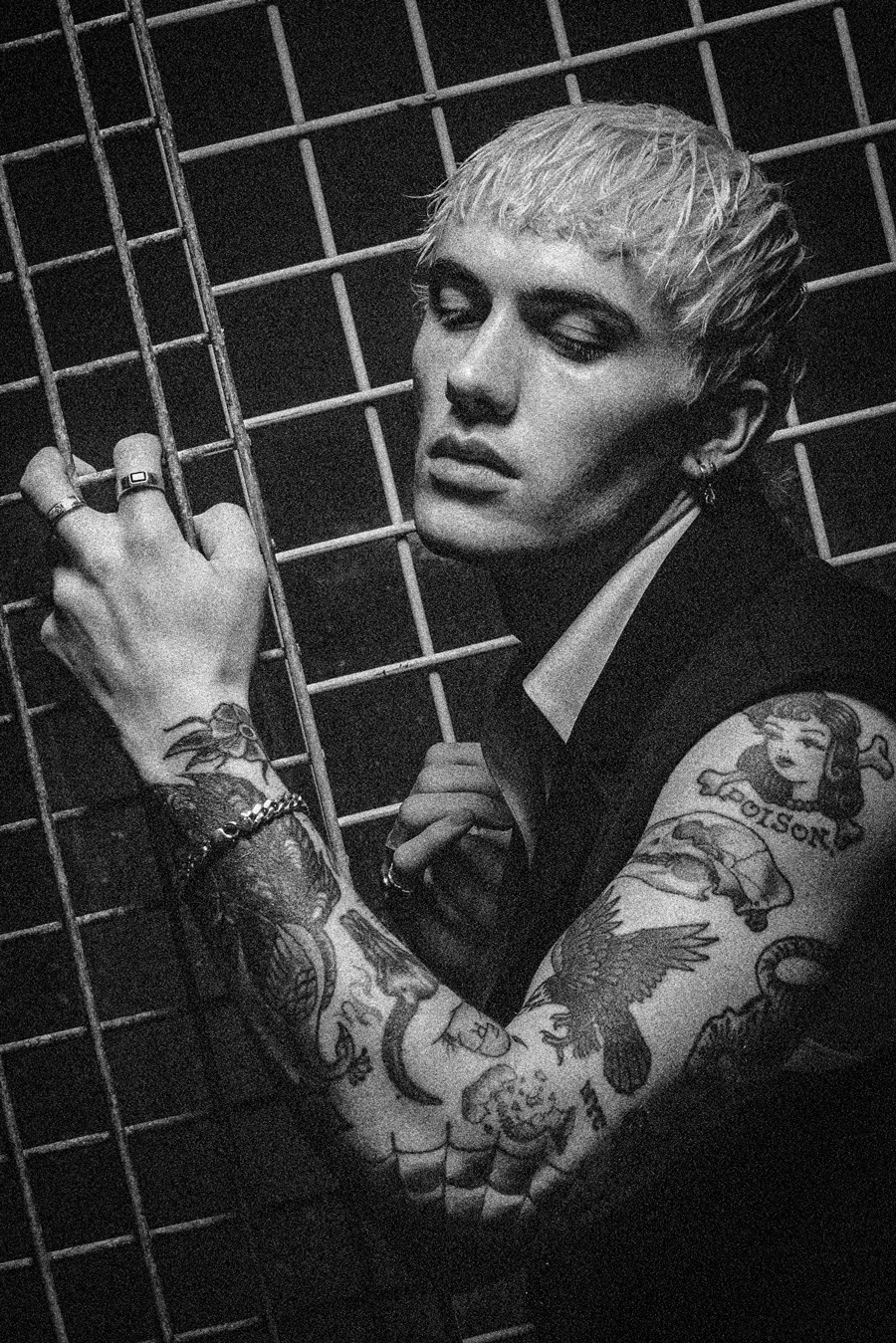
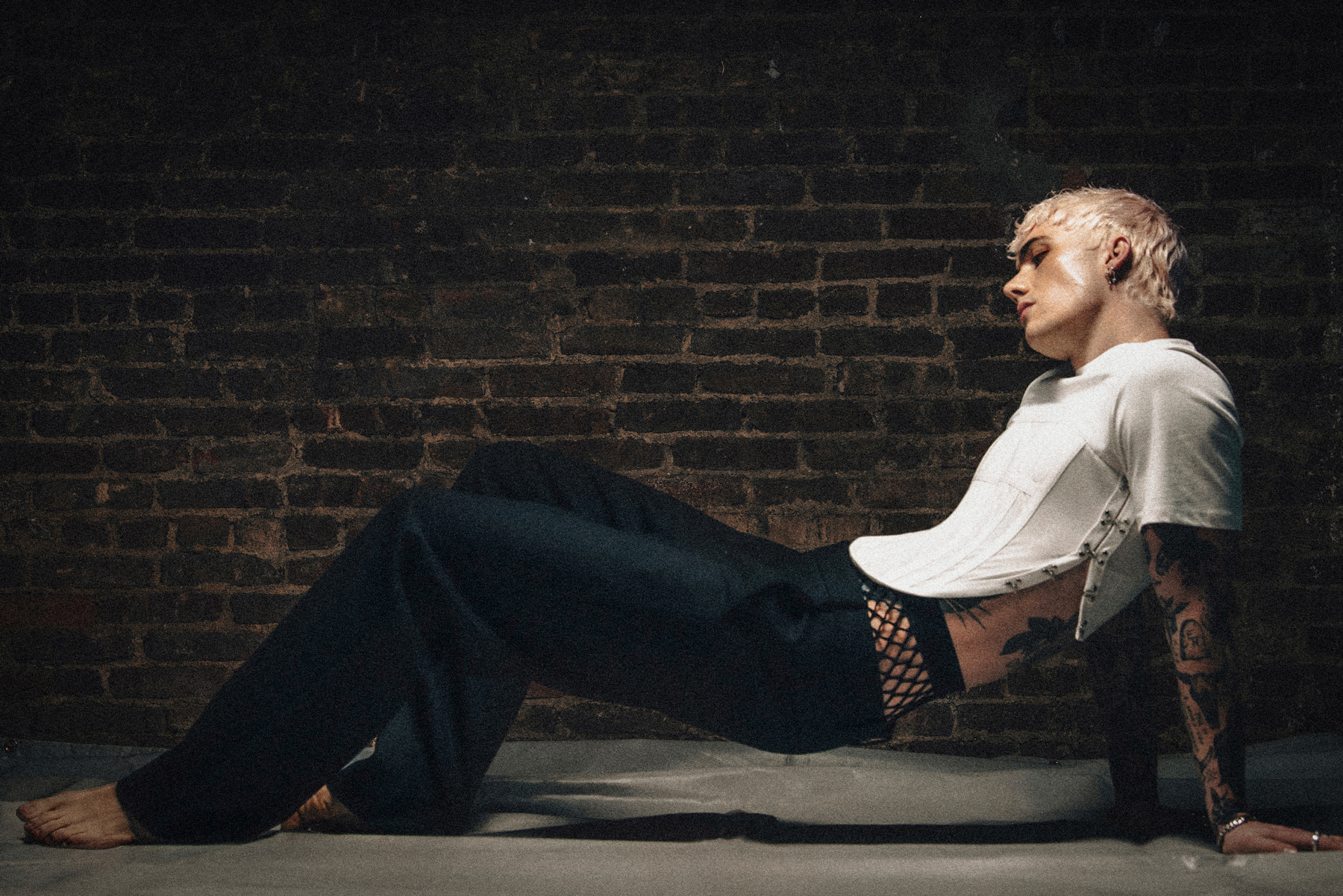
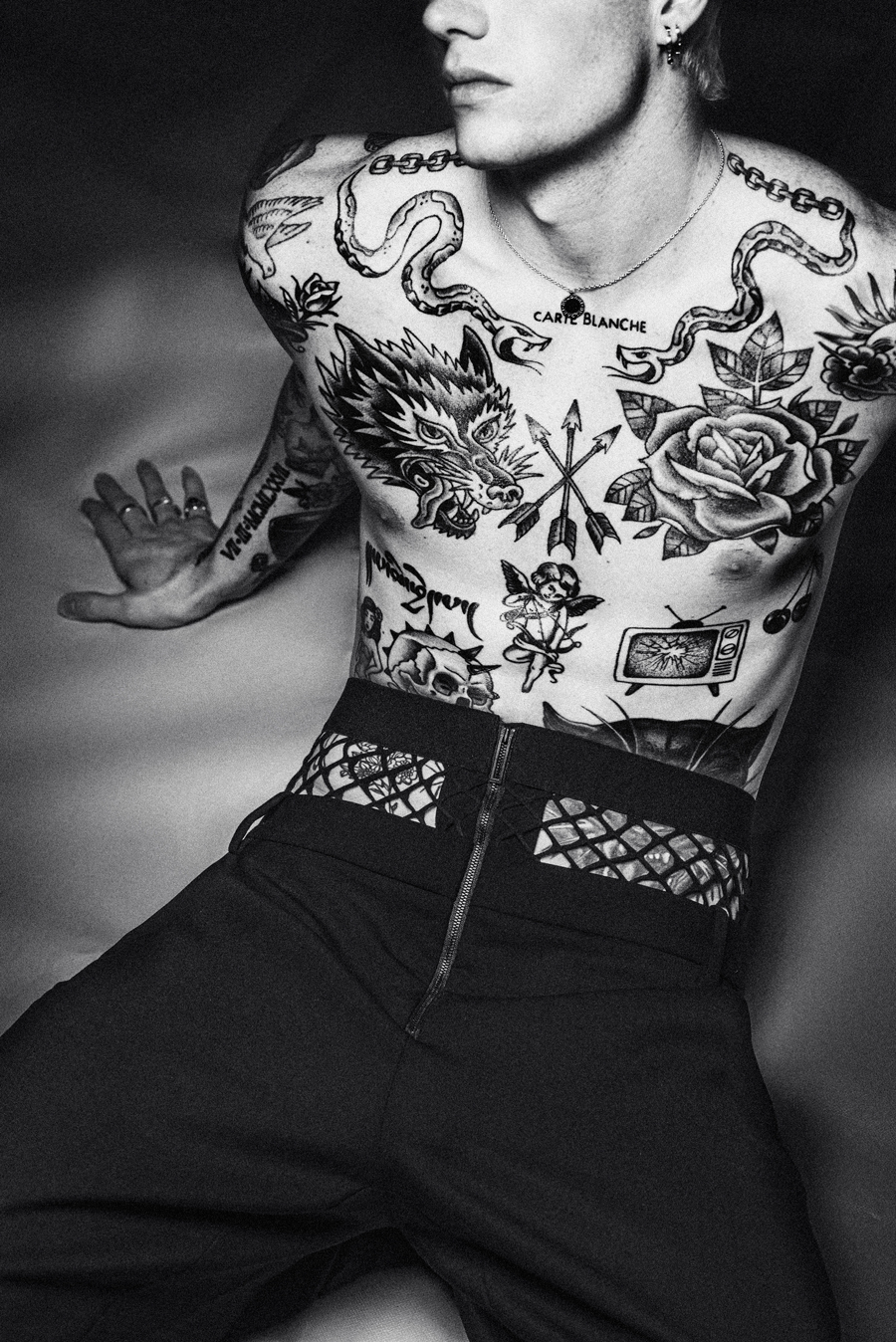
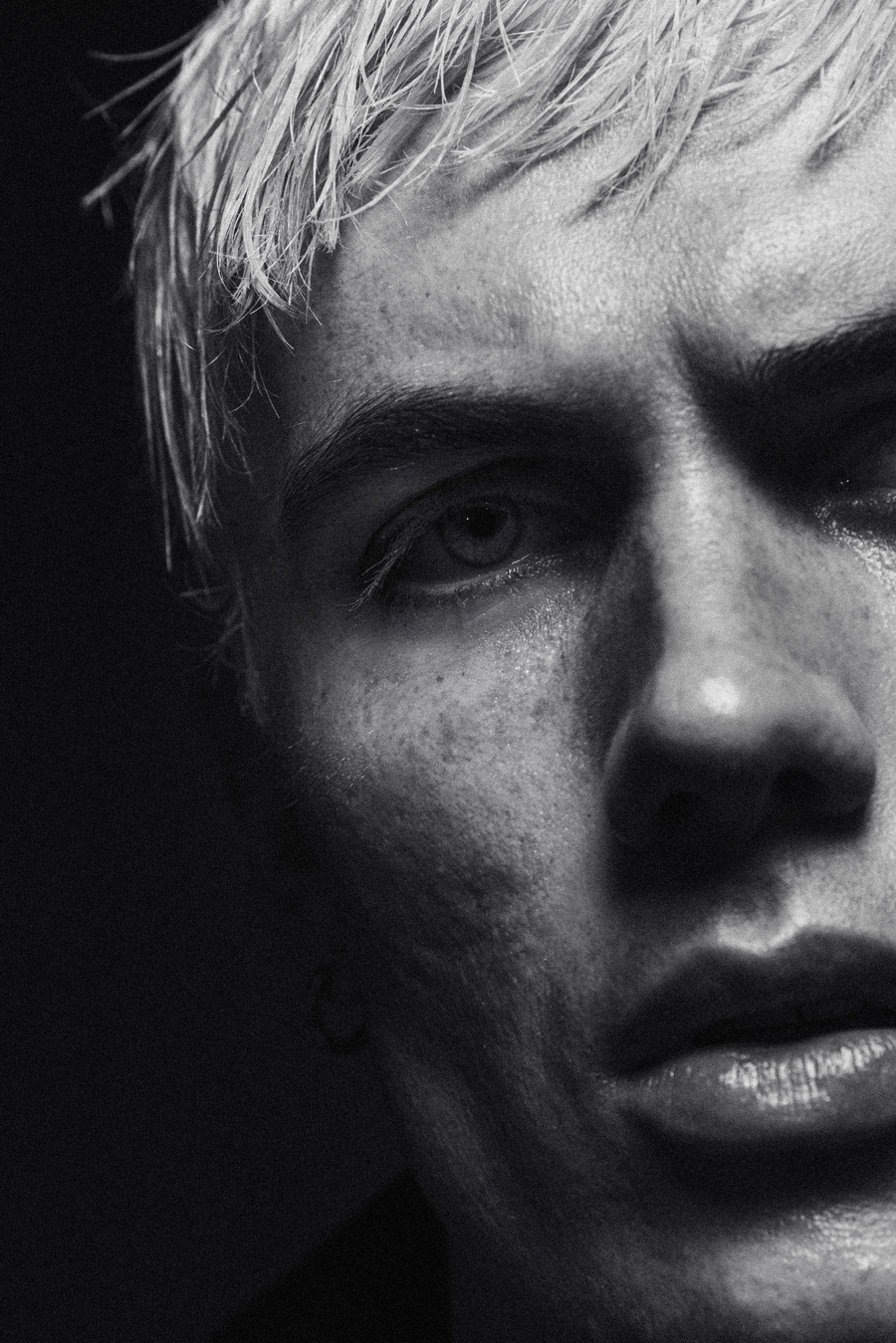
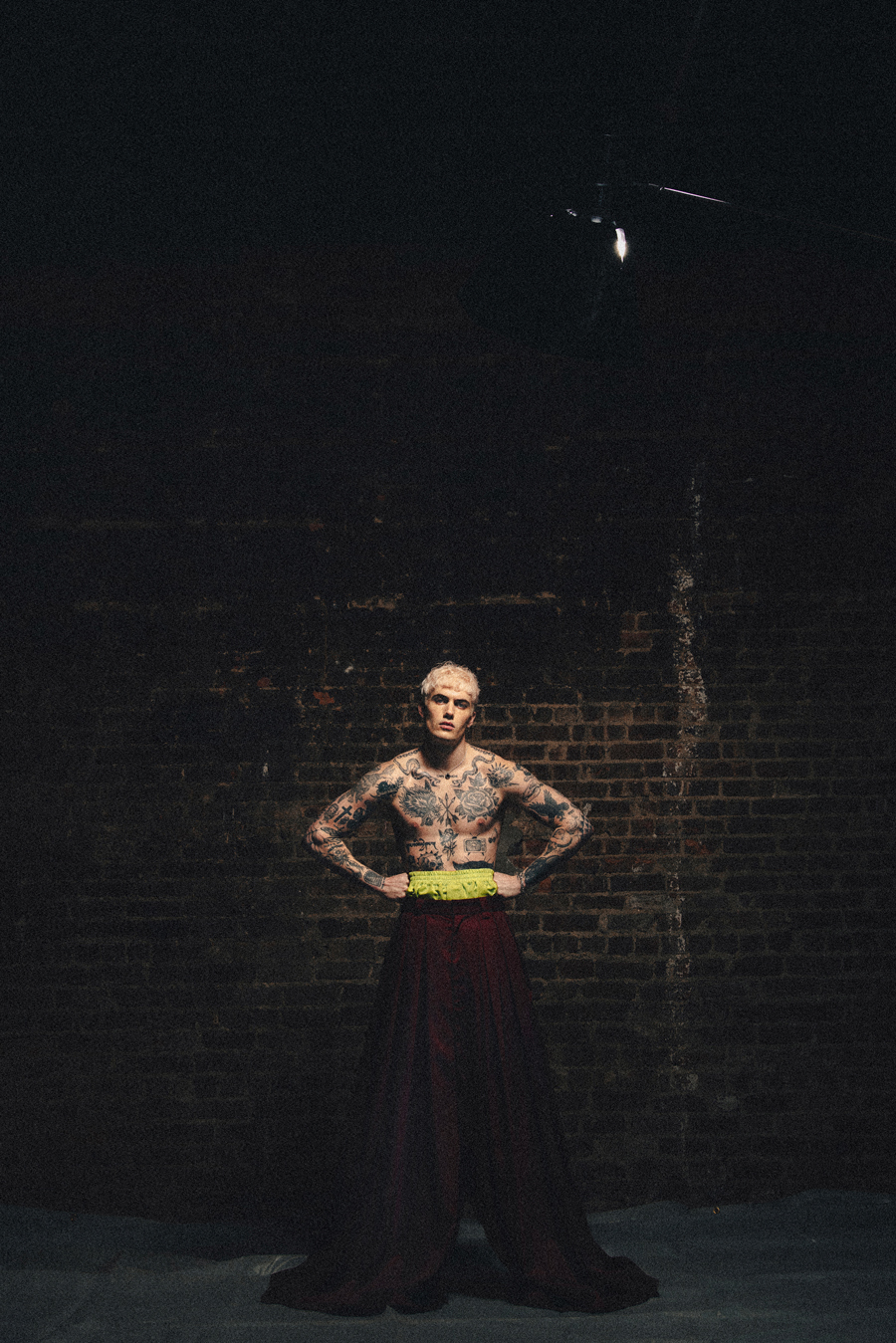
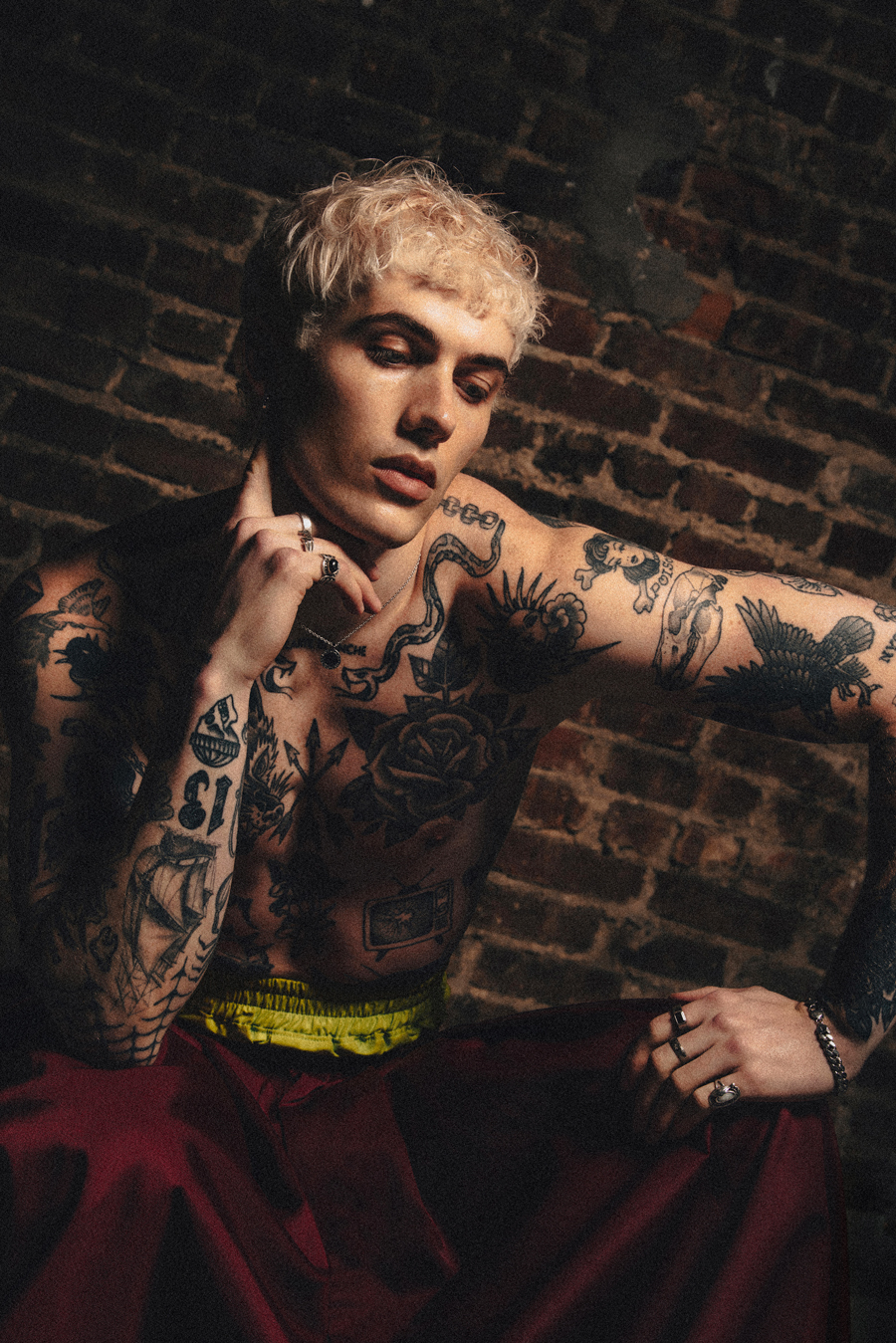
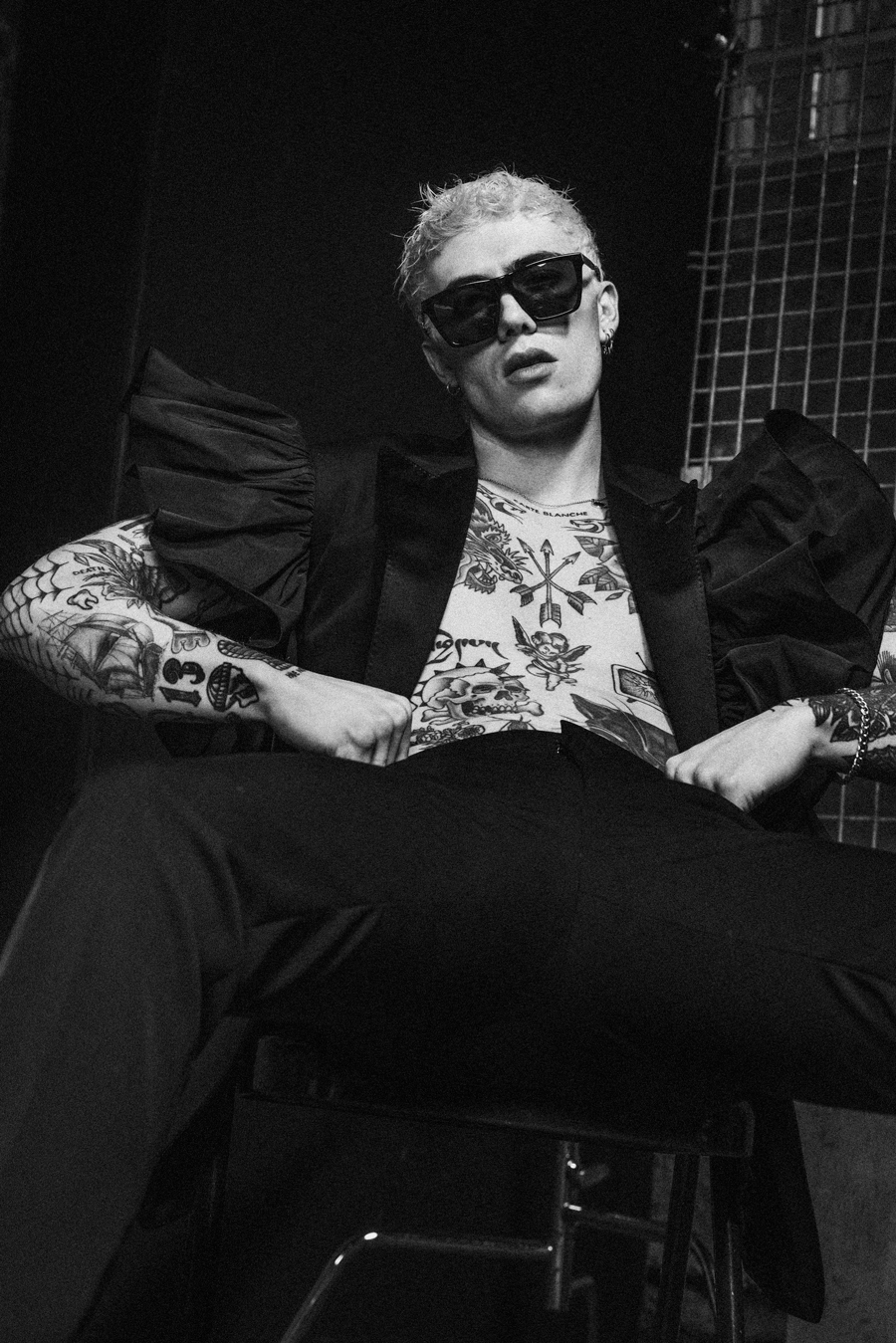
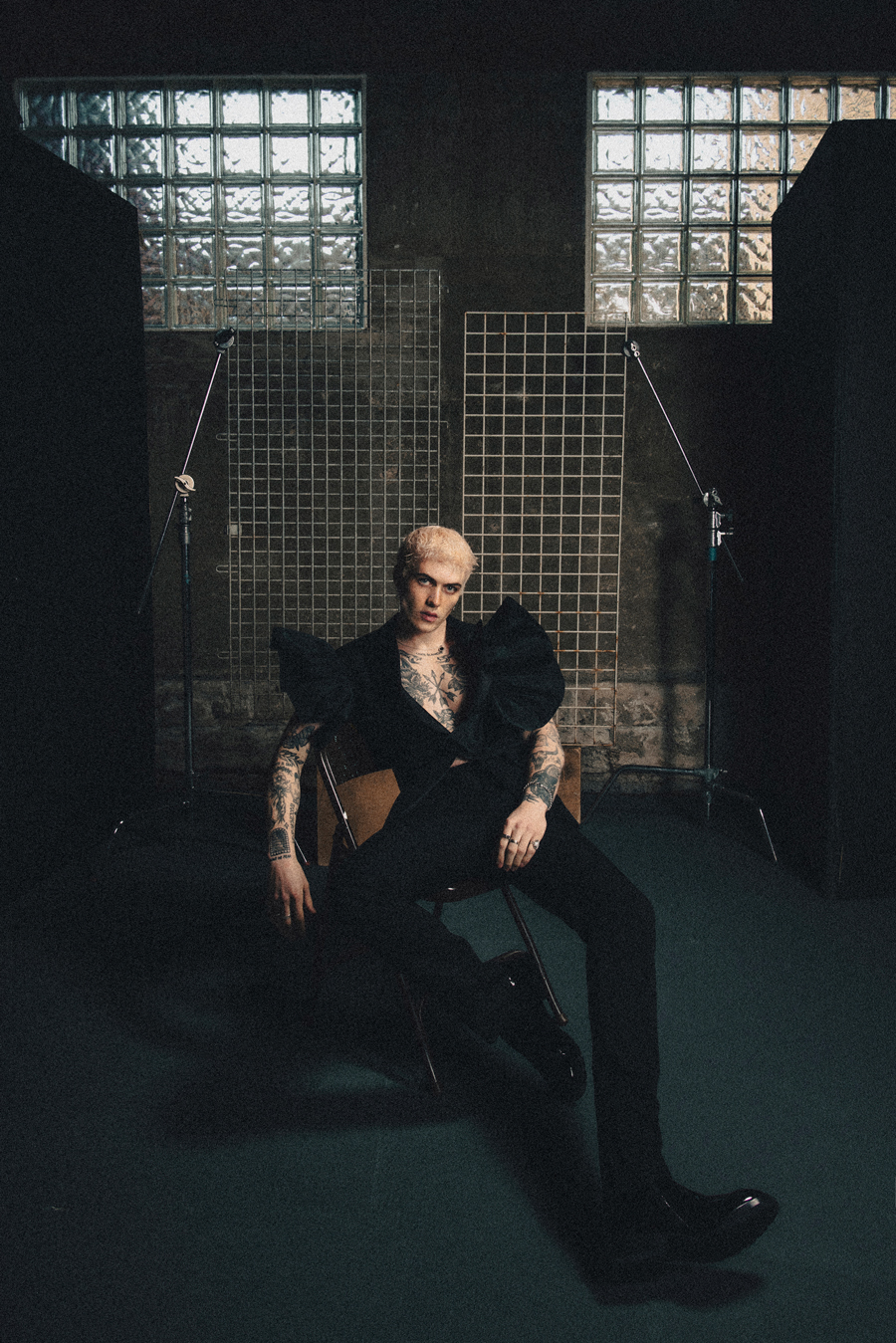
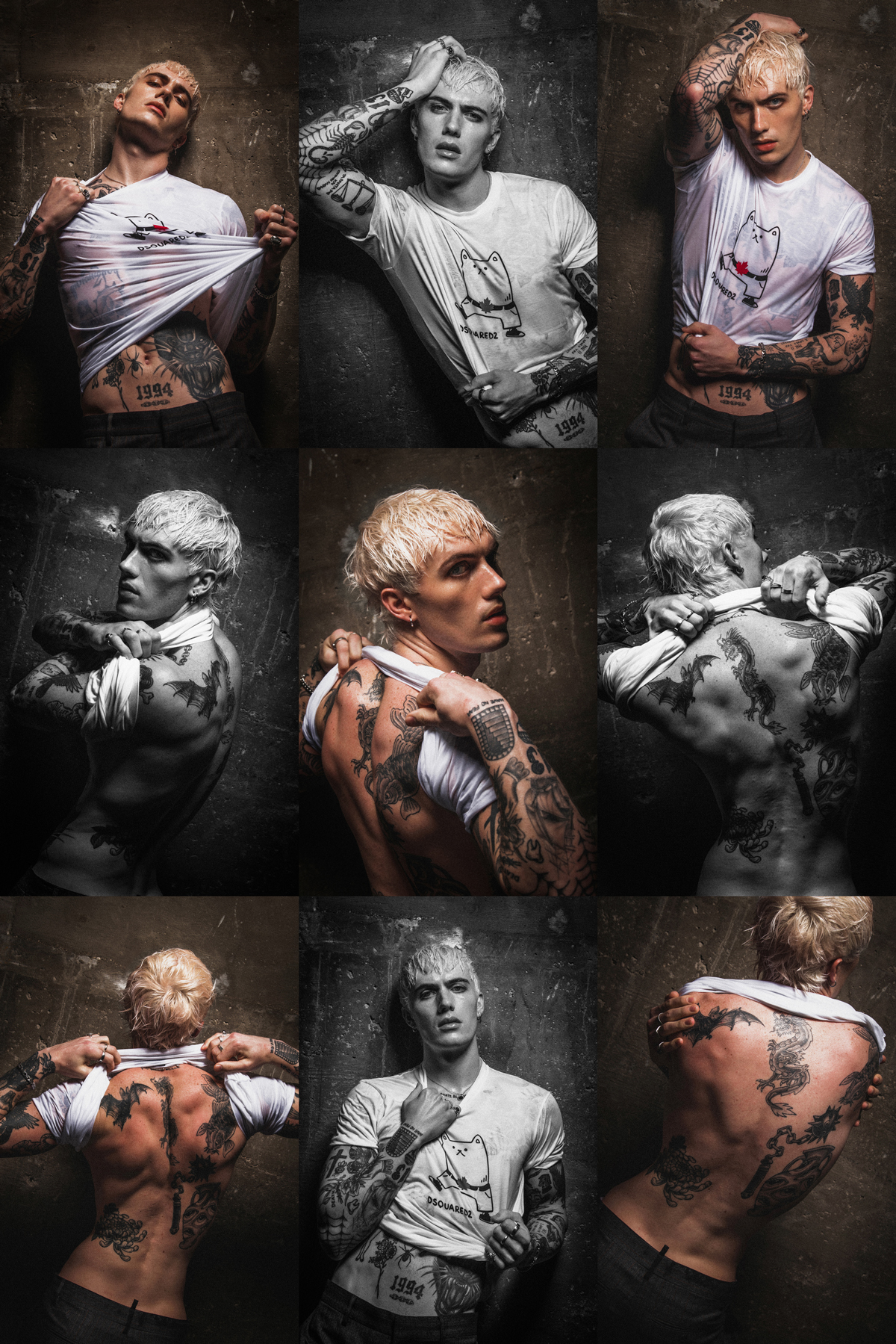
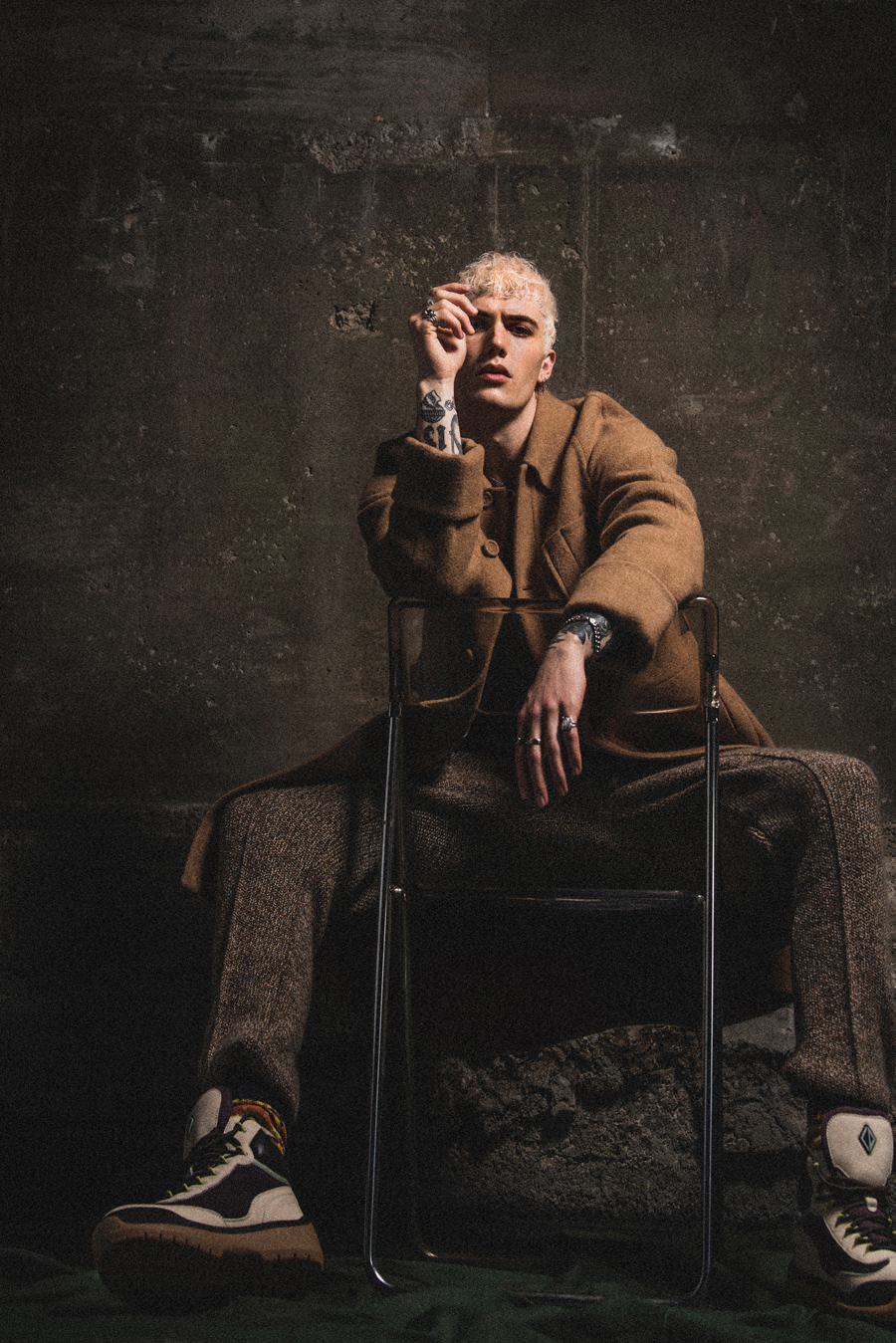
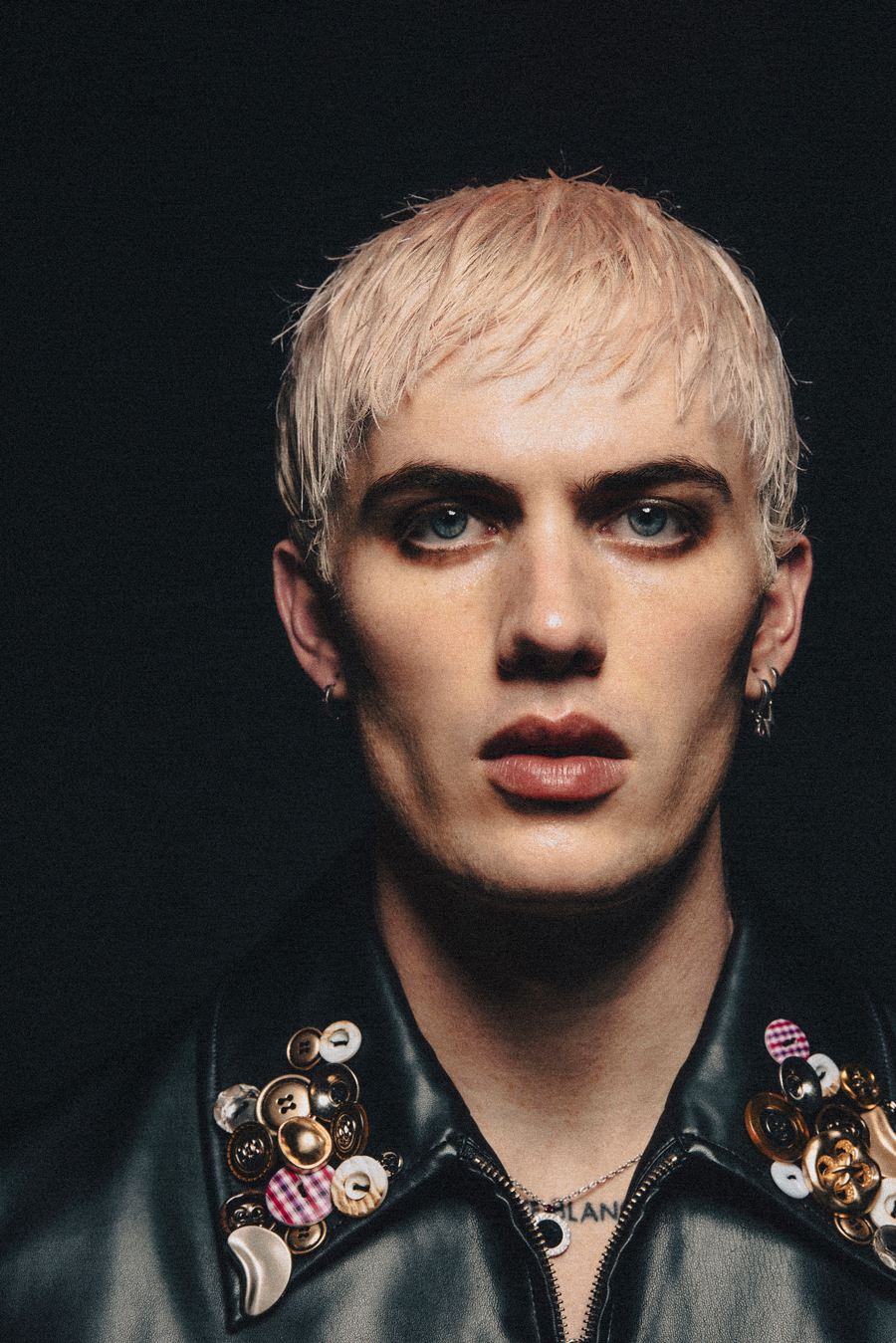
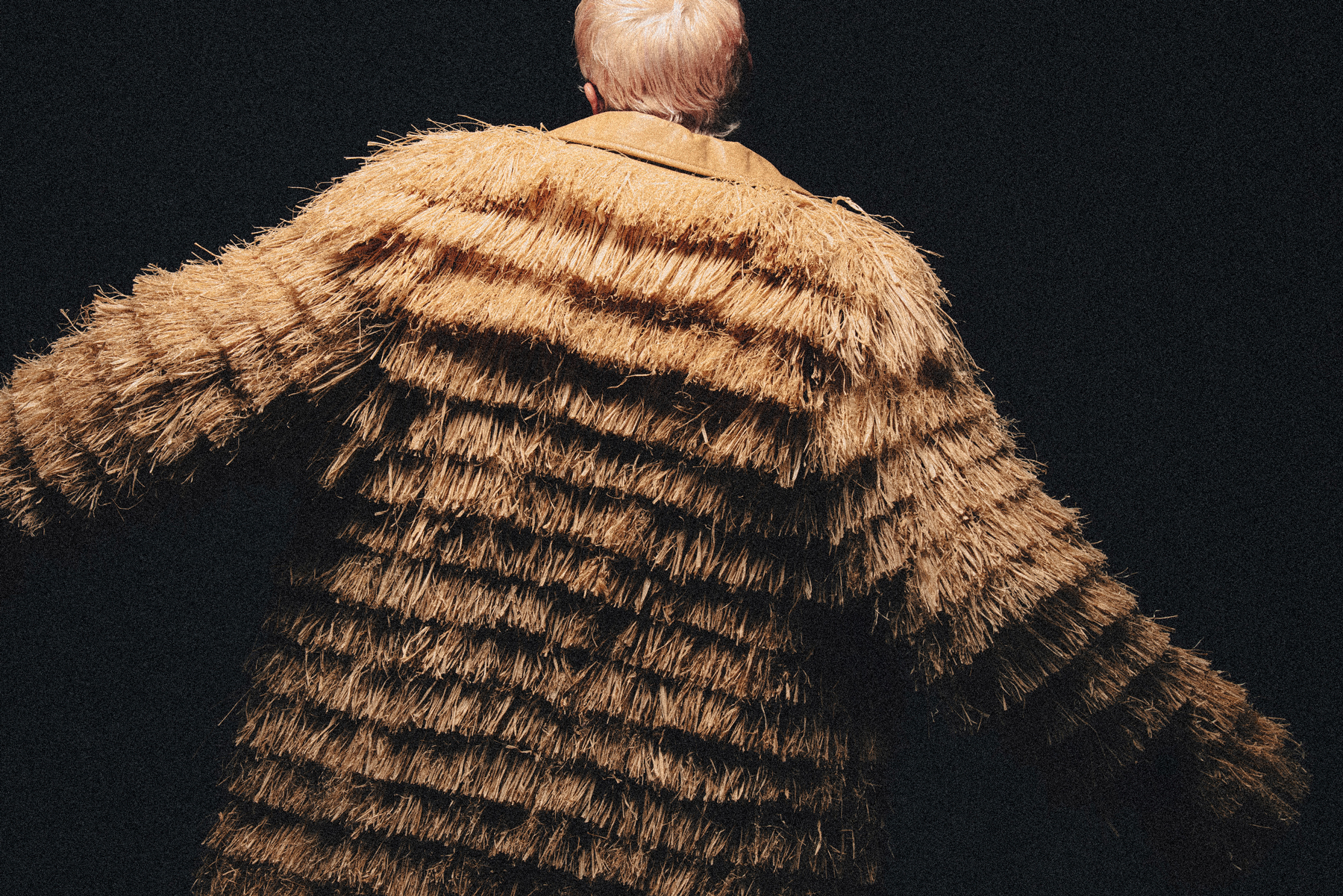

A diverse glimpse into the worlds and personalities of fashion, beauty, culture, philanthropy, and art.

Top, Short and Pant by Prada













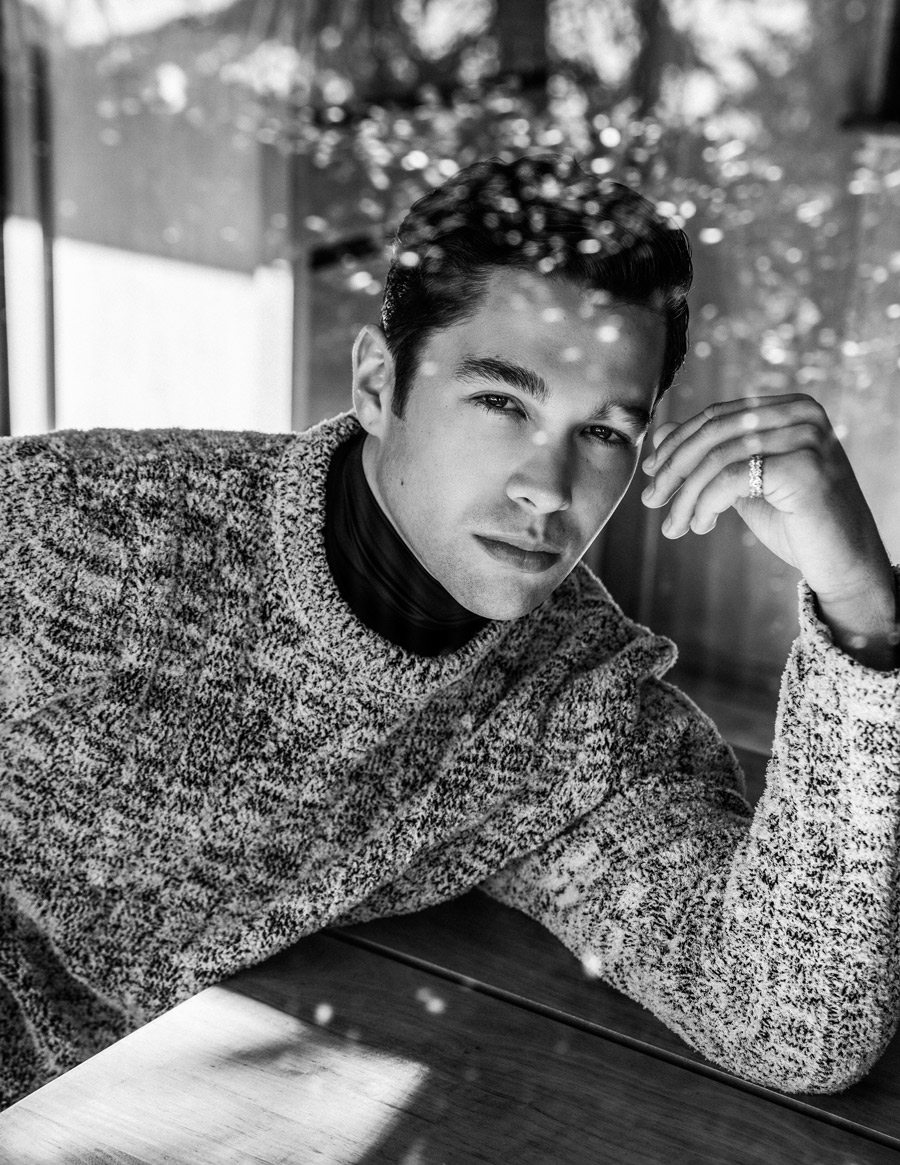
Turtleneck. Dries Van Noten
Sweater. Kiko Kostadinov
Photographer: Marcus Derricotte @mderricotte
Stylist: Douglas VanLaningham @dvlstylist
Styling Asst: Jose Santiago
Hair: Stefani Annaliese @stefaniannaliese
Makeup: Paloma Alcantar @palomamua
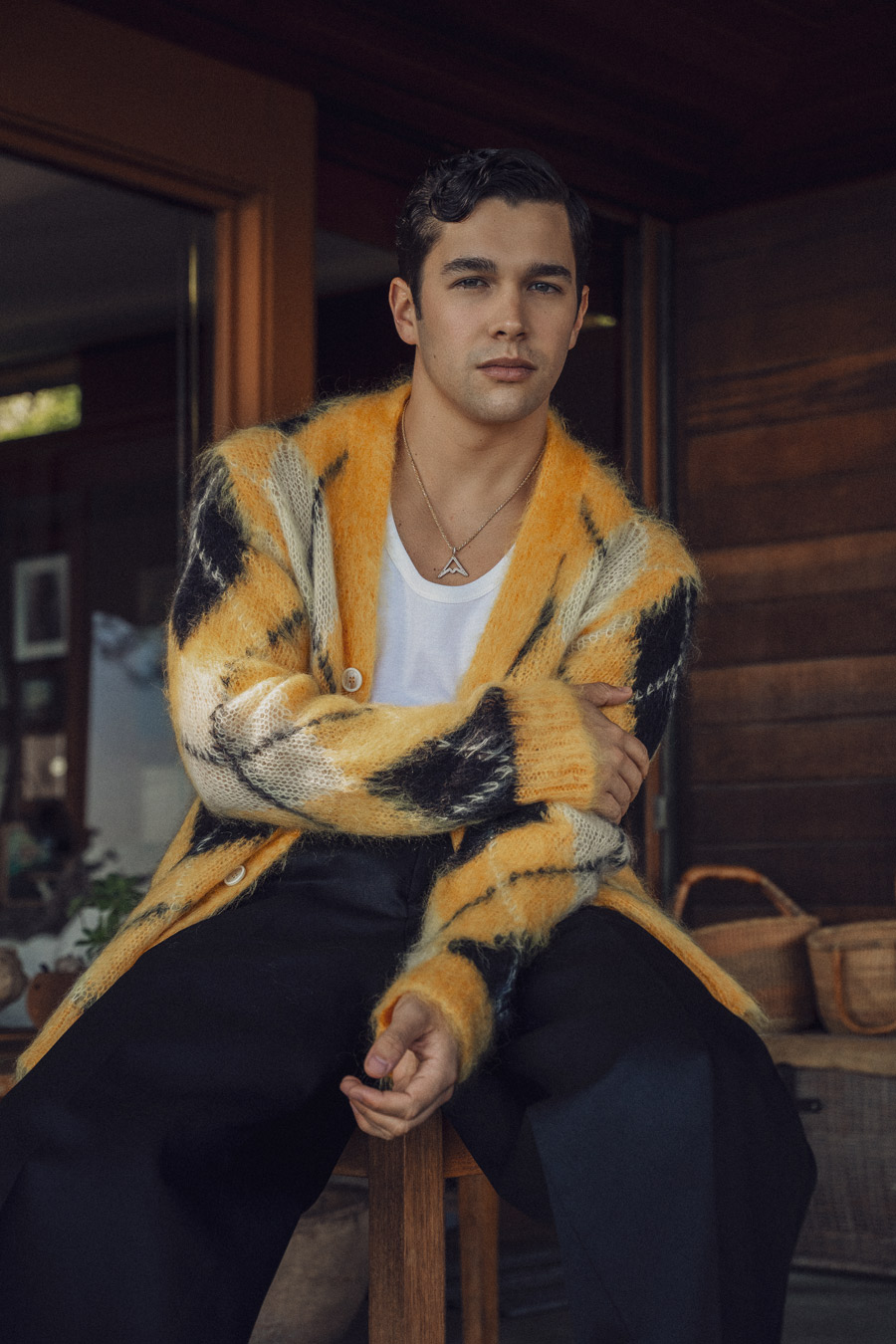
Cardigan. Marni
Tank top. Dries Van Noten
Trousers. OAMC
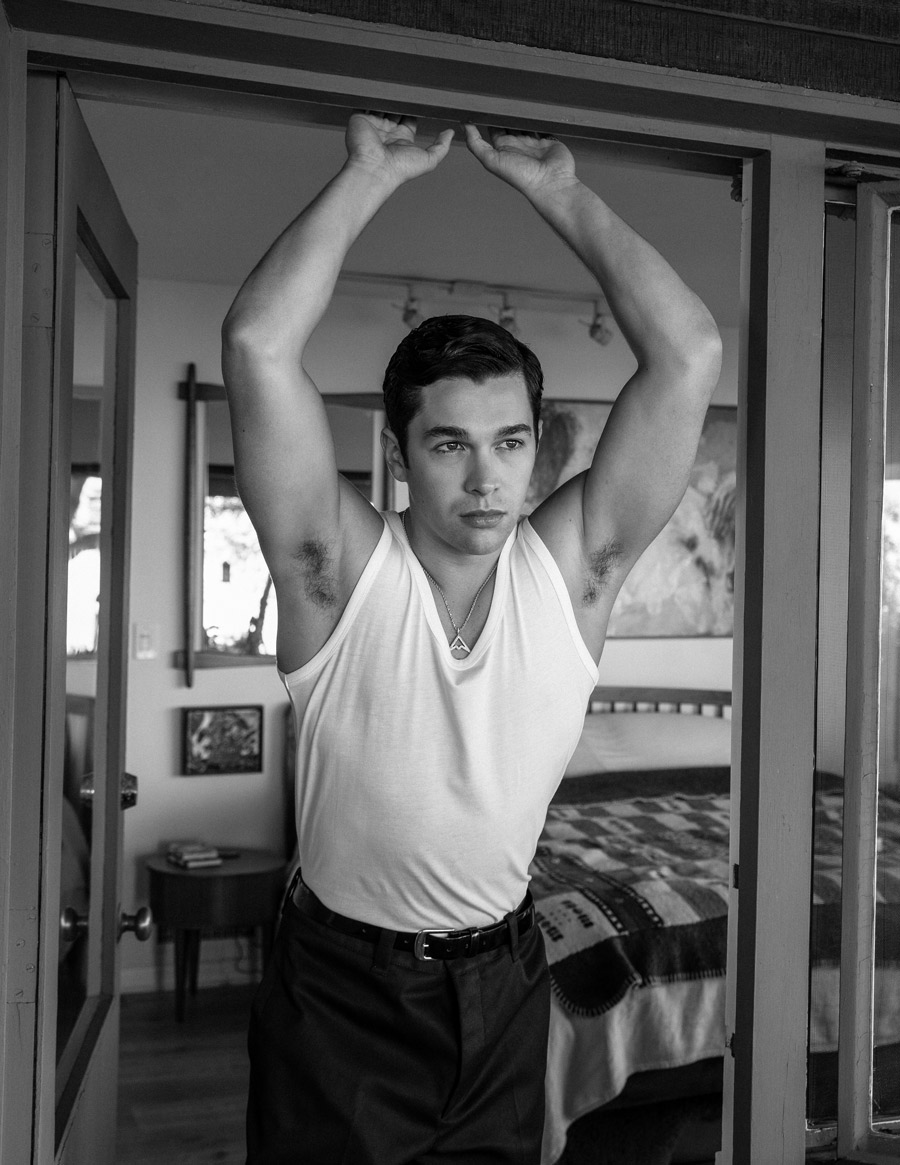
Tank top. Dries Van Noten
Trousers. OAMC
Belt. Maison Margiela
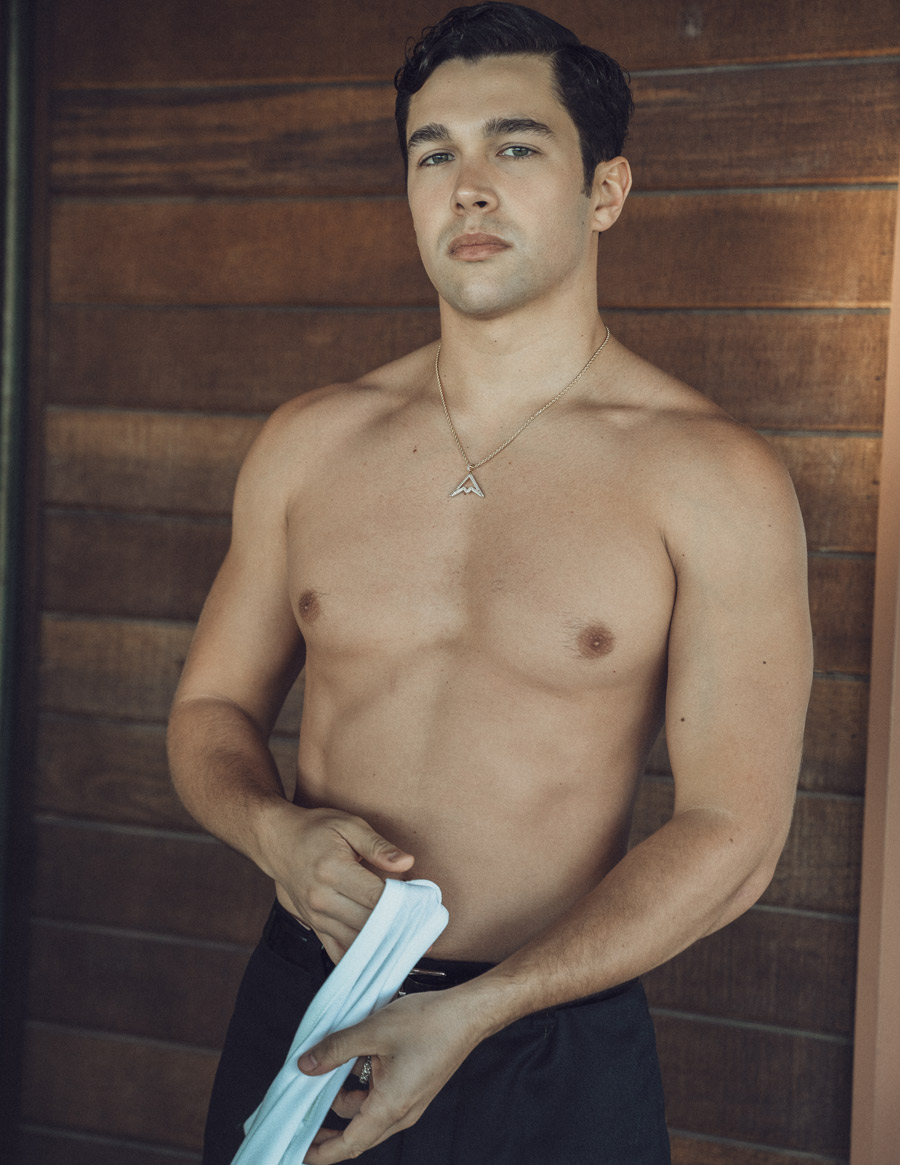
Tank top(in hand). Dries Van Noten
Trousers. OAMC
Belt. Maison Margiela
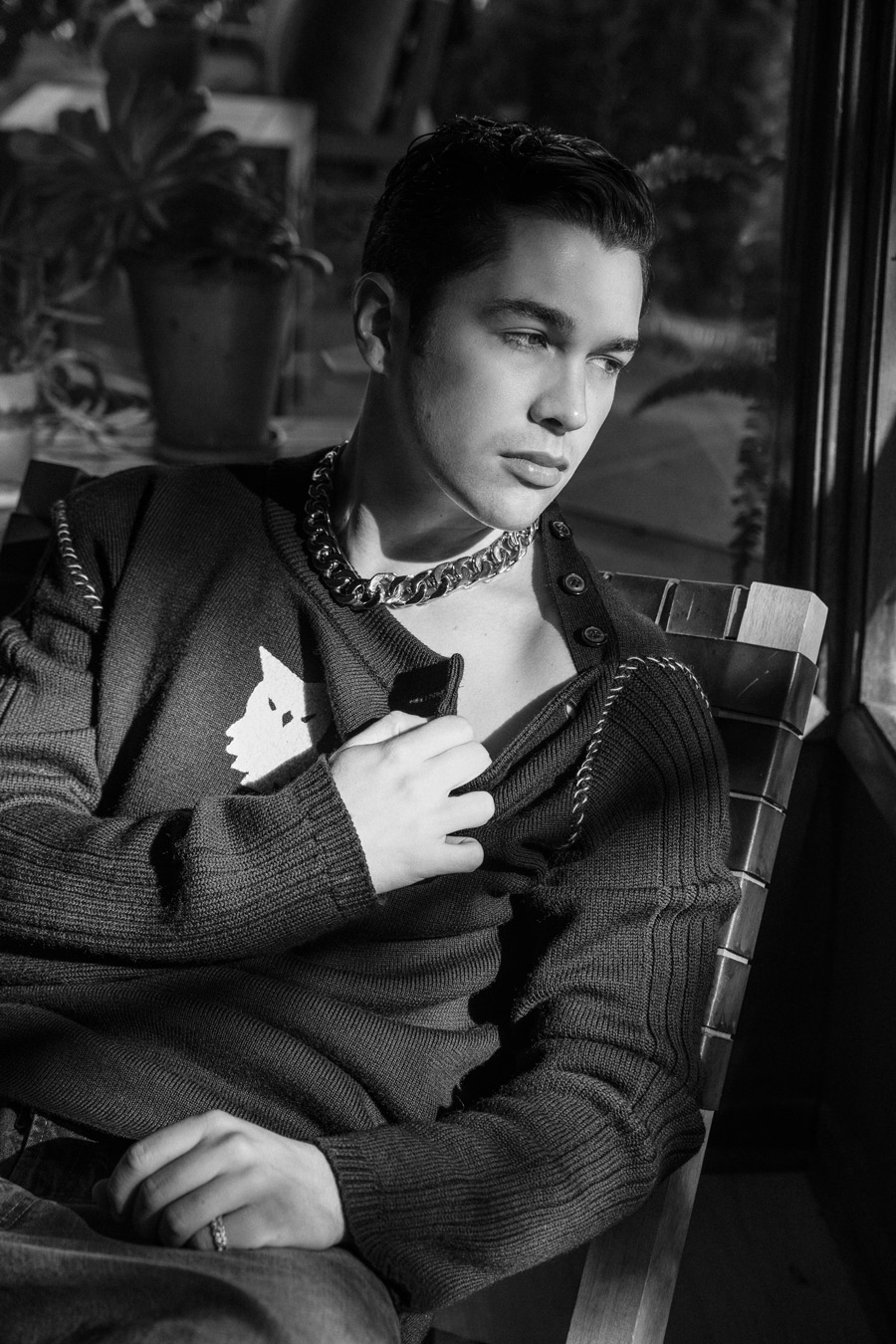
Sweater. Maison Margiela
Jeans. Maison Margiela
Necklace. Vitaly
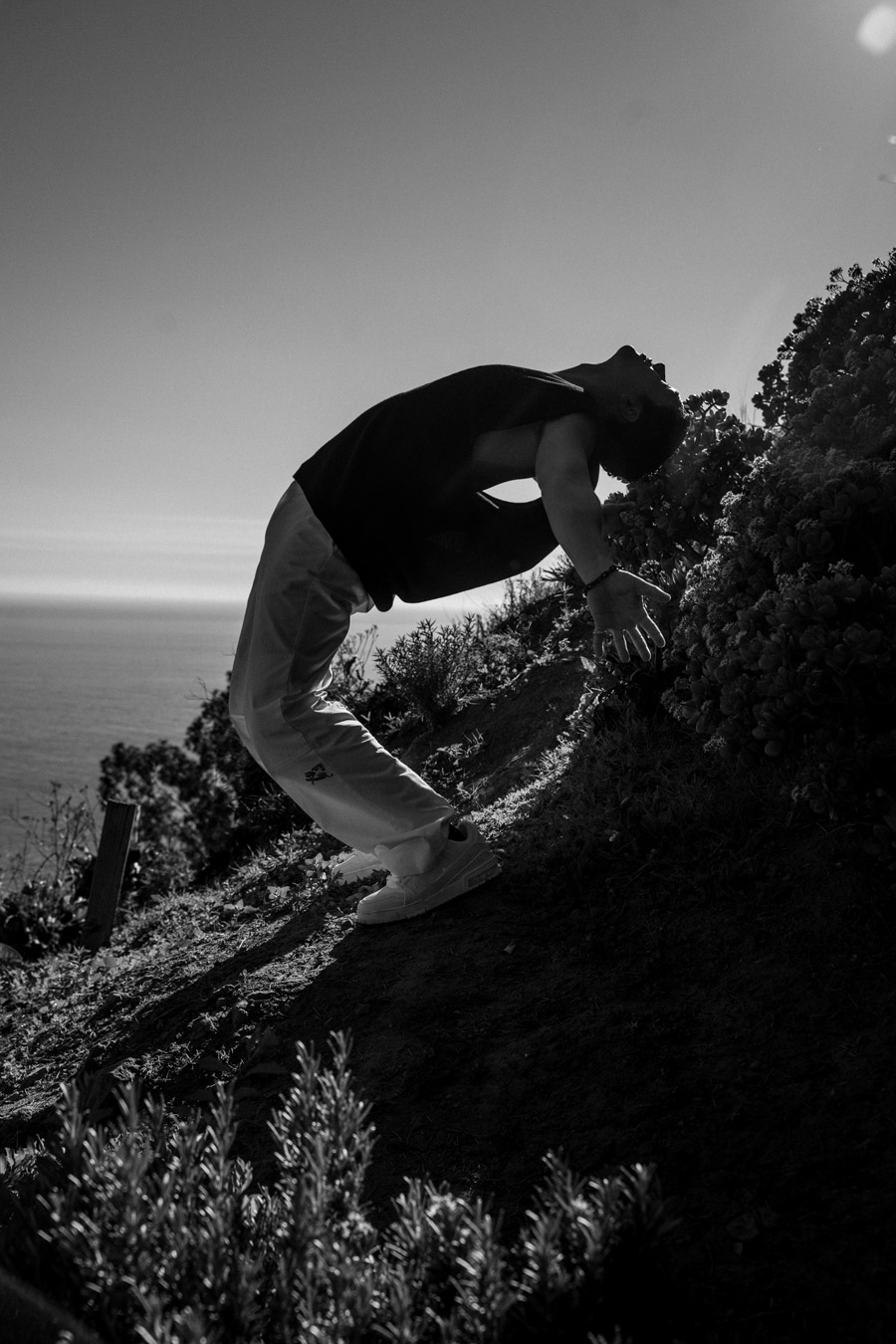
Sweater vest. Dries Van Noten
Trousers. Raf Simons
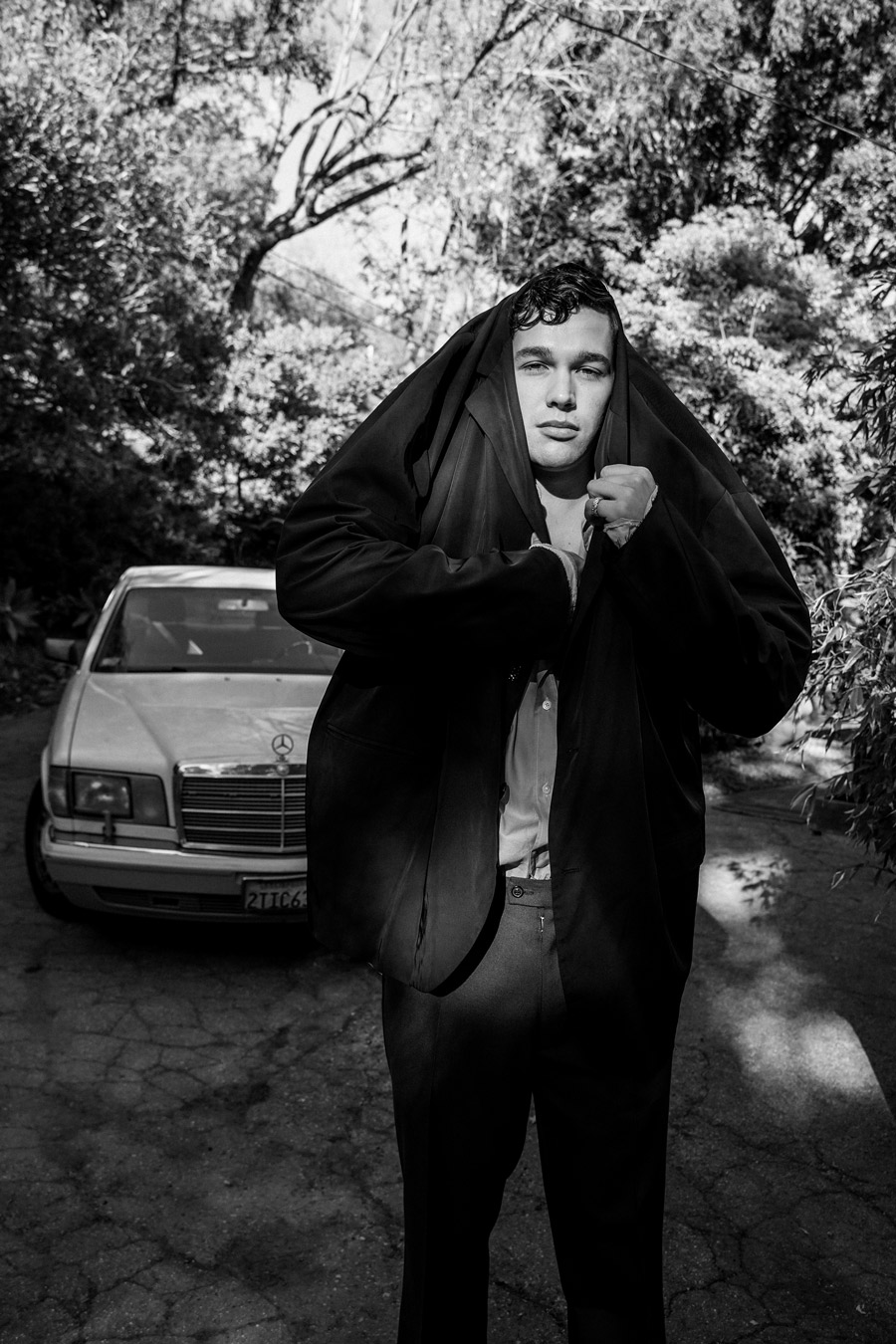
Blazer. Raf Simons
Shirt. Maison Margiela
Trouser. Maison Margiela
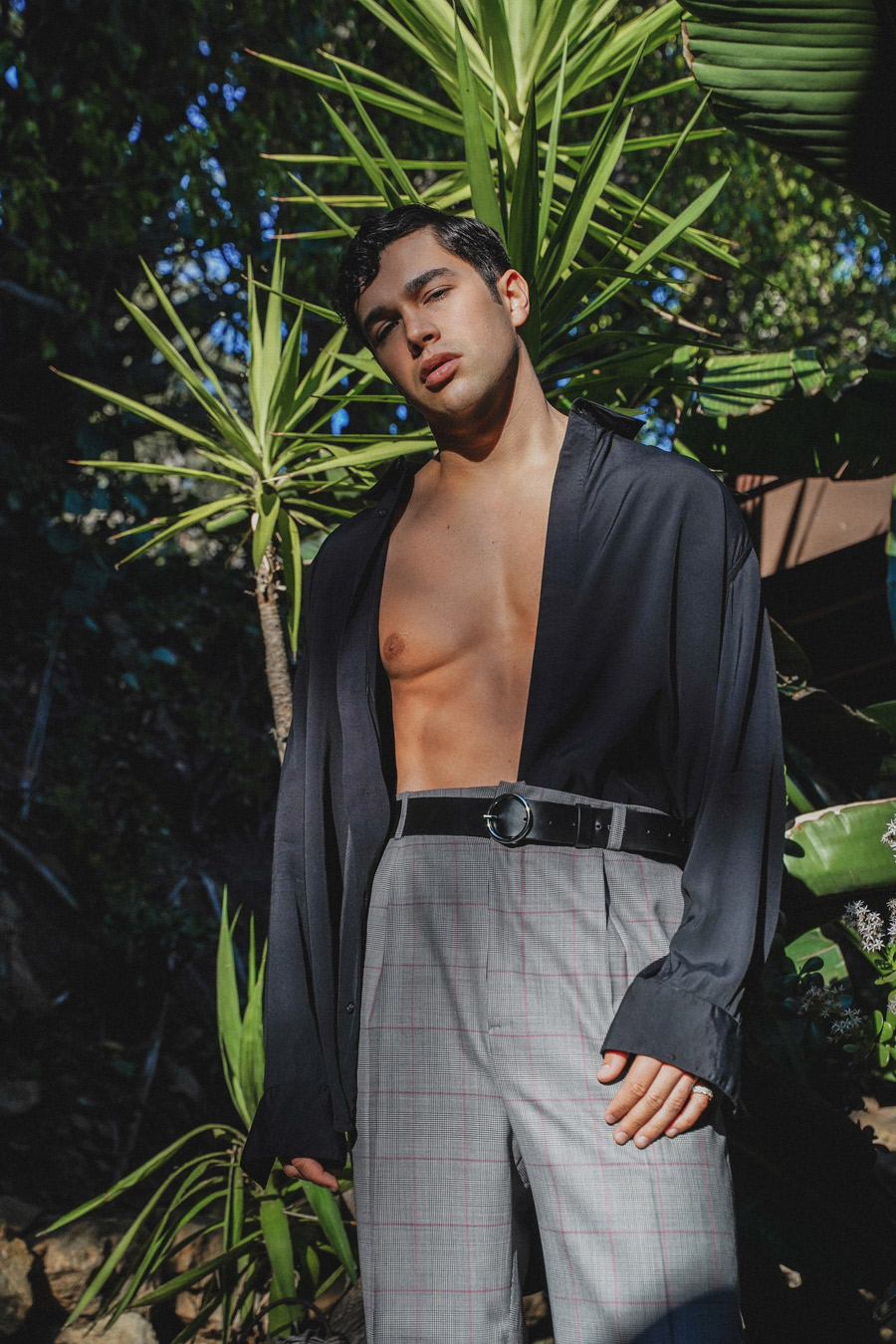
Shirt. Bottega Veneta
Trouser. Botter
Belt. Maison Margiela
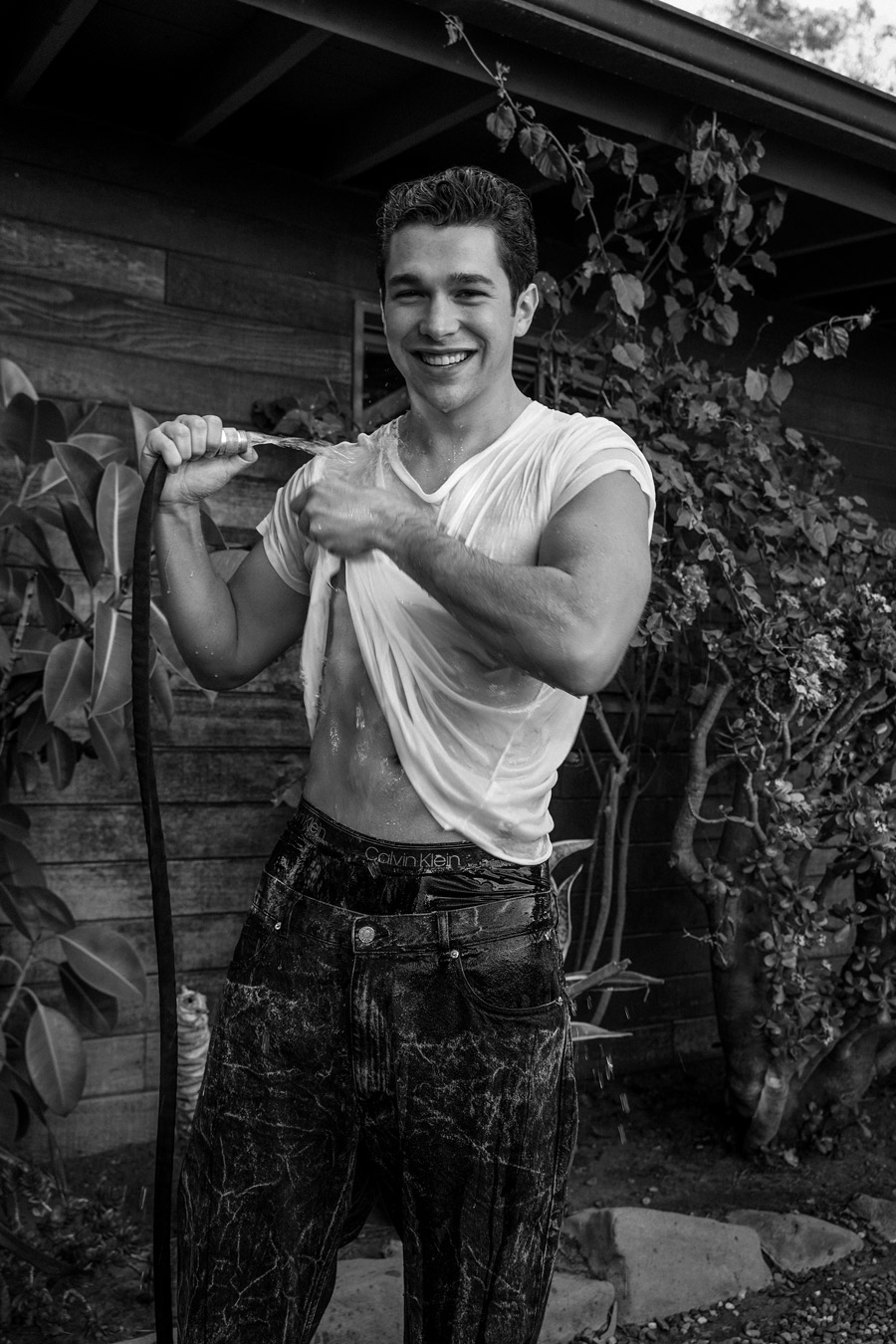
Tshirt. Saint Laurent
Underwear. Calvin Klein
Jeans. Martine Rose
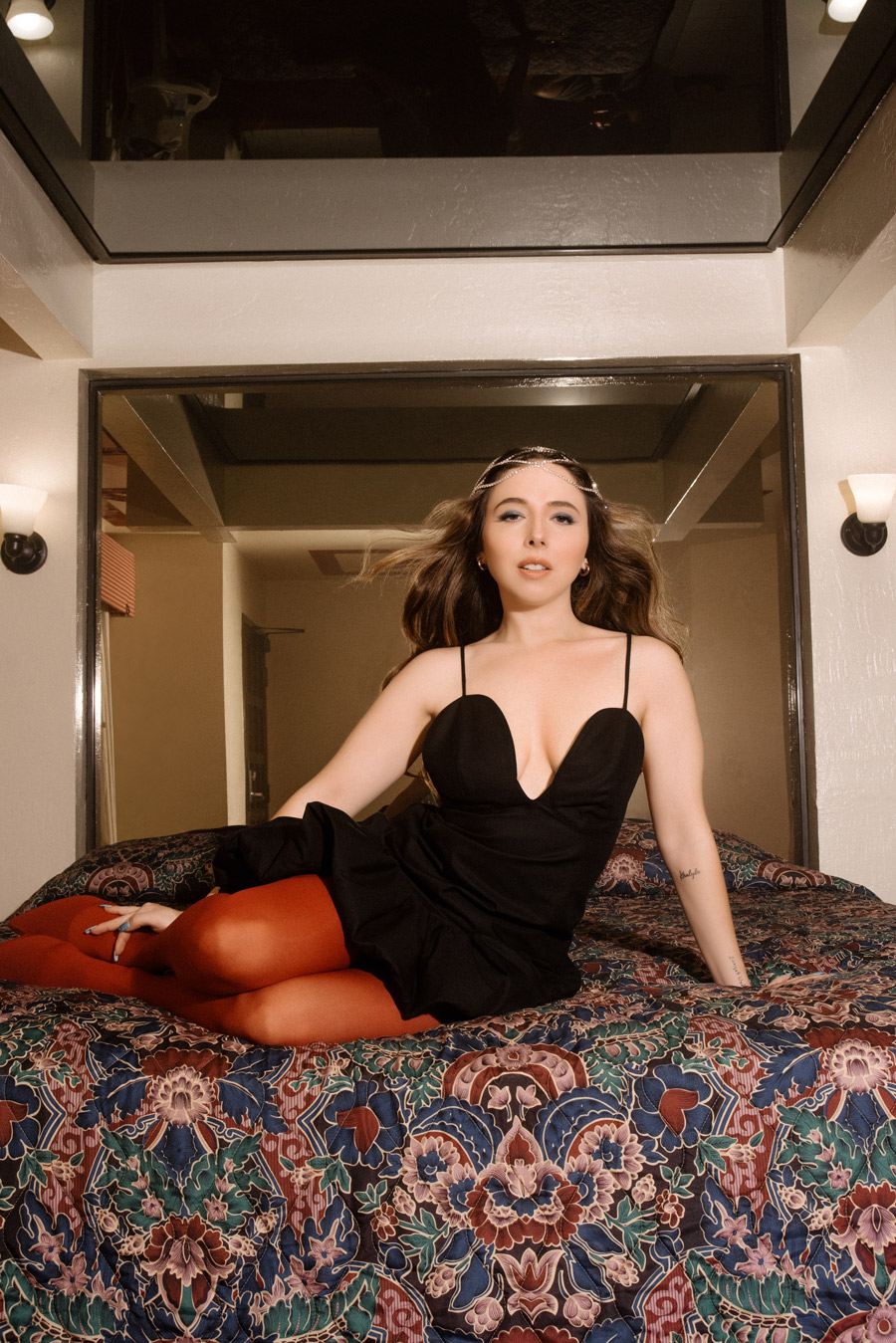
Dress: Khaite, Tights: Fogal, Headpiece: Vintage, Shoes: Open Edit
Comedian and actor Esther Povitsky is perhaps best known for her Lonely Island-produced comedy series Alone Together, or her supporting role in the Hulu series Dollface. Maybe you’re just a fan of her neurotic, deadpan online comedy persona. But what many may not know is the story of how Povitsky became one of the digital age’s biggest names in comedy, and the intense personal obstacles she had to overcome to get there.
The internet-viral comedian opens up about overcoming anxiety to create her own work.
By: Hilton Dresden
Photography:
Michelle G Gonzales
Photo Assistant-
Sydney Patitucci
Stylist-
Jensen Leigh Edmonson
Stylist Assistant – Priscilla Alejandrina Langdon
Hair:
Joseph Torres
Makeup: Brittany Leslie
Povitsky grew up in Chicago, in a household full of laughter — her dad set the tone for daily silliness, she explains. After studying at comedy institutions like Improv Olympic, she ultimately made the decision to move to Los Angeles, realizing she’d need to spread her wings if she were to reach the fiscal and professional goals she had for herself.
While starting out on the West Coast from scratch was far from easy, performing at open mics around the city eventually led to representation, and then roles on acclaimed TV shows including Parks and Recreation, Key and Peele, Brooklyn Nine-Nine, Difficult People, and Crazy Ex-Girlfriend. Her breakout came with Alone Together, which she co-wrote, co-created, and stars in alongside her bestie Benji Aflalo. What started as a self-made short eventually became a full TV series, currently watchable on Hulu and produced by Saturday Night Live video legends The Lonely Island. Additionally, Povitsky currently has a Comedy Central stand-up special, “Hot For My Name,” now available for streaming.

Dress: Ganni, Tights: Fogal, Bag: Ferragamo, Shoes: Open Edit
What was initially inspiring you to comedy as you were growing up?
Esther Povitsky: I grew up watching SNL and loved Chris Farley and Adam Sandler and David Spade and all those people on the show. Cheri Oteri. Will Ferrell. And I just always wanted to live in that universe. I thought I was going to be a professional dancer because I love taking dance class. And then I just realized: “I think what I loved about dance class was making my friends there laugh.” Wanting to work in comedy, it’s like you kind of don’t even really know what that means when you first think about it. There’s no clear path of what that could be. So I just knew that and discovered stand up comedy as a good option to get me started. That was how I ended up moving to L.A. and pursuing stand-up full time.
You studied at iO in Chicago, and then at Groundlings in Los Angeles. Tell me about what you took from those places, and about the decision to make such a big move from your hometown.
EP: I would say my time at iO, Improv Olympic, in Chicago is really memorable and special, and I felt for the first time like I had tapped into something that made a lot of sense to me. It was where I wanted to be, and I loved my teachers and my classmates and my instant life goal became to be a performer on the stage there. Then I realized that the people who were performing on those shows were not being paid, and they made no money off of what they were doing. And I just felt like, “Gosh, that makes no sense to me.” Like, if these people are rock stars to me, I want to be them when I grow up, so to speak, and they’re not being paid… that just freaked me out. And it made me really confused. I was like, “I think I need to leave Chicago, because this doesn’t make sense to me. I need a different way.” And that’s what prompted me to move to L.A.
I’m a homebody. If I had the choice to stay home at my parents’ house versus, like, go into the city and do an open mic in Chicago, I’m lazy. If the option is to sit at home, I’m taking it 10 out of 10 times. So I just knew I had to shock the system: go to a different city where I have no money, nowhere to stay. Not that I had money in Skokie, but I had a place to stay. So it would have been easier. I just was like, “I need to throw myself out there.” I was scared. I was terrified. I mean, the day I moved home from school, my 21st birthday, I dropped out of school and my parents came and helped me pack up my stuff and we moved home. I don’t think they spoke a single word to me that whole day while they were packing my stuff, and it was my 21st birthday. They were so solemn. I never use that word, but I don’t even know what other word to use. They were somber. It was so sad. They were so sad because my mom had never gotten the opportunity to get a college degree. She thought it was this big opportunity for me, and my dad had actually dropped out of the same school, so he wanted to see me finish there. And I just was like, I can’t do it. They were really, really sad for me to leave. And I remember I woke up the next morning in my childhood bedroom and I was like, “What did I just do? Did I just do it? Did I really just submit my form for a partial refund from school?” I immediately started Googling community college in Los Angeles because I just couldn’t believe what I did. But I fought through that fear and just pushed and followed through.
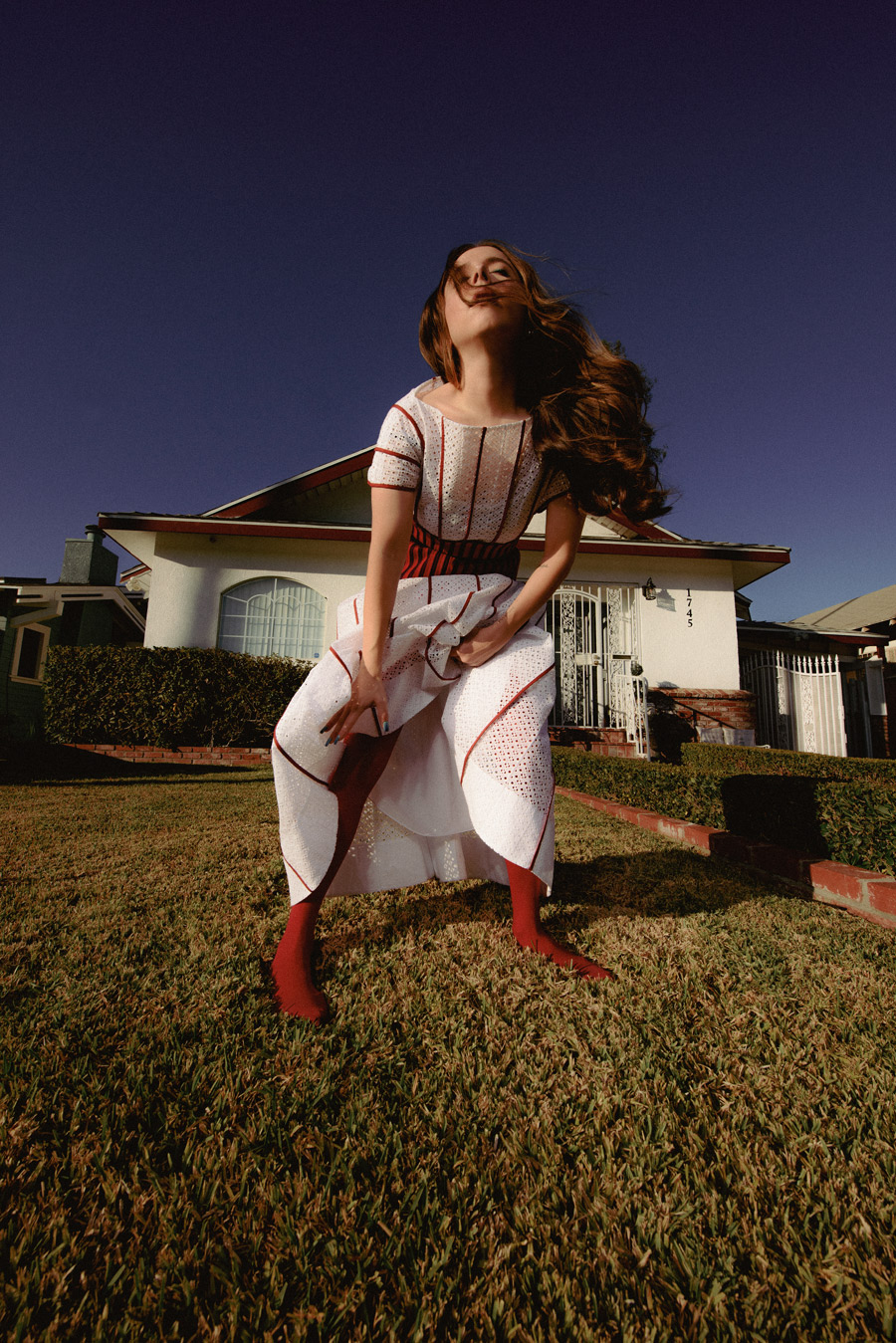
Dress: Tory Burch, Belt: Isabel Marant, Tights: Fogal, Shoes: Open Edit
Did you find the standup scene in LA welcoming at first? What were those early years like?
EP: I don’t think any community is overly welcoming of newcomers, so I wouldn’t say that, but I got here, and the first night, I was with one of my college friends and I was making fun of them at the bar. And the bar owner literally came up to me and was like, “You’re so funny.” I was like, “Really?” “Yeah, you’re really funny. You should do stand up.” And I was like, “I can’t believe you’re saying that to me because I literally just moved here today to do that.” And I was like, “I don’t know where to go, what do I do?” She said: “You should go to The Comedy Store. I’ve heard of that.” OK. And just because that bar owner said that that night, I was like, “Great.” And then I went there the next day with a resume trying to get hired, and they didn’t hire me. But they explained Sundays and Mondays were the open mics, and then that just kind of became my home base and where I hung out the most and met people and made friends. Then I did open mics all over the city after that.
I want to hear about Alone Together and how it went from a short to a pilot and then a series produced by Lonely Island. What was the kernel of inspiration there?
EP: So one of my close friends that I met during that time was Benji, and he and I, we just became instantly inseparable. We just had all the same things in common, but we were so different. He’s a guy. I’m a girl. He was from Beverly Hills, I was from the Midwest. But we were both kind of short and didn’t really fit in school. And because we were both short and kind of Jewish-looking people just assumed we were dating, everywhere we went, and we would always be like, “What? No!” We would almost both just be insulted, like ill. Just because we’re both short and ugly doesn’t mean we’re dating. We both thought we could do so much better than the other person. And we were not shy about it. Then eventually, we were like “Everywhere we go, people keep spinning this narrative to us about how we should be together and we’re so adamantly not about that. Let’s make a short film about our lives.” Literally exactly from real life to the script. We just did exactly what was true to us, and that was how we made the short film that came to be the show.
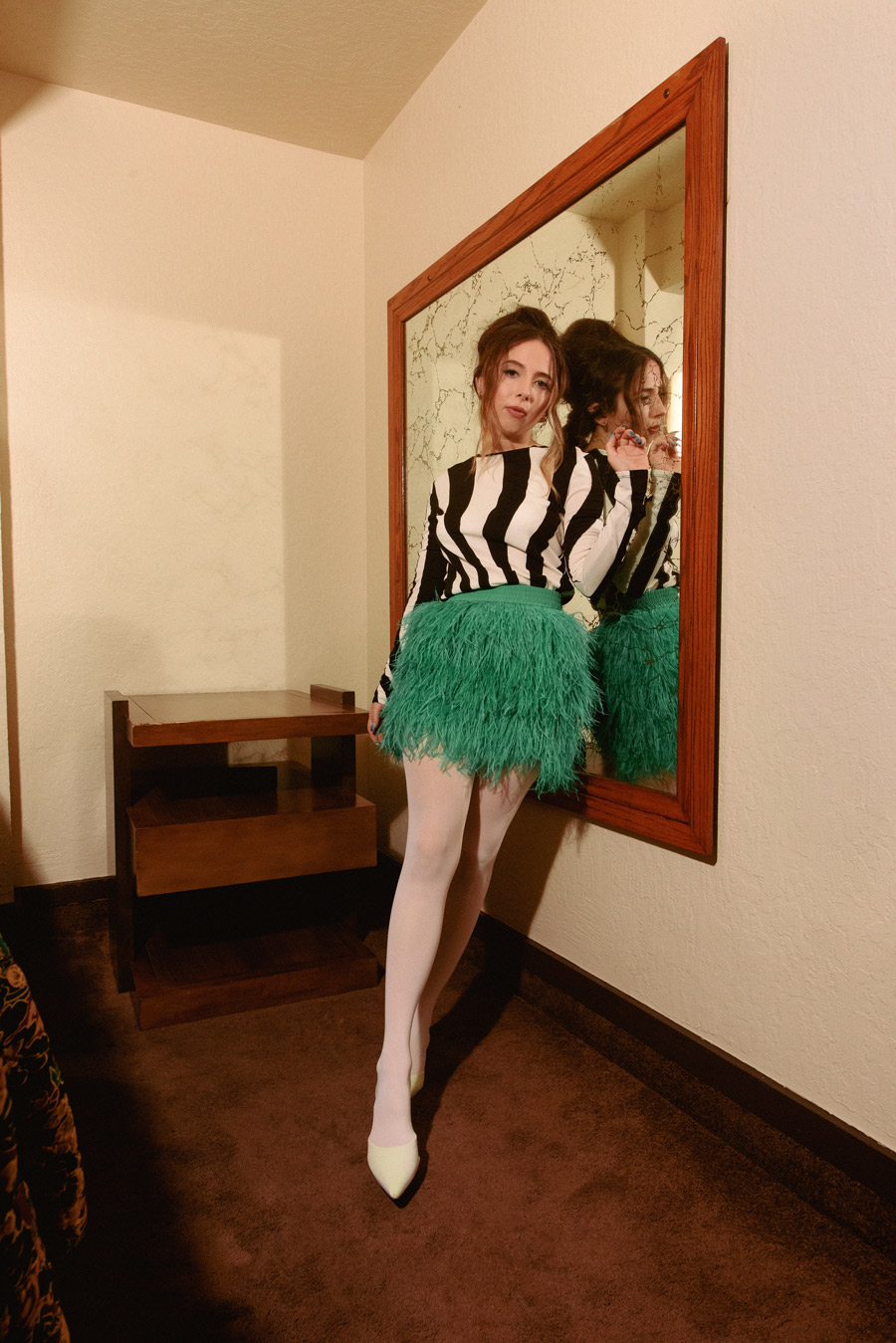
Top: Tory Burch, Skirt: Marco Bologna, Tights: Fogal, Shoes: Open Edit
What was it like when you found out Lonely Island was getting on board?
EP: We most certainly made the short film with the intention of it becoming a TV show. We definitely knew it was very unlikely, but that was the end goal. Creators are really making their own stuff, so we [thought we] might as well take a swing. It was such a slow process from start to finish that there was no like, “Oh my God, it’s going to be a show” moment, because when we pitched it, we pitched in four places and no one bought it. That night we were like, “It’s over.” We were both sad and we were like, “You know what? I’m so proud of us that we tried. There’s nothing worse than not trying. And then the next day, my agent said “They want to buy it,” and I was like, “Who?” And he said, “Everyone, everyone wanted to buy it.” We couldn’t believe it. So what does that mean? They buy a script. OK, then they have to decide, do they want to shoot the pilot for the script? Then they have to decide, do they want to pick up the series? I think now that streaming is changing it a little, where you just go from script to series and they cut out the pilot stage. But it was a really long process, and I remember the day that they told us that they were going to shoot the pilot, I found out that I didn’t book this audition for literally a one line role in a Netflix show, and I wanted it so bad because my scene was going to be with Timothy Olyphant. I was so sad, I did not get the one line role. I got the news that they were going to shoot the pilot, and my fianceé was like, “You’re crazy. Why are you upset that you didn’t get one line when they’re making your pilot?” I was like, “I would have rather had one line on a show with Timothy Olyphant than do my own pilot with Benji.” I just wanted so badly to be accepted by normal show business that that meant more to me than this project that I made on my own, which now I feel the literal complete opposite. But it just goes to show how insecure I was and how I’ve changed so much since then.
So then fast forward to Dollface. I want to hear about booking that and and your approach to that character and your experience filming and anything you’ve taken away from that?
EP: That was such a game changer, working with all those women on that show. They really elevated my performance, I think, because they were so professional and so experienced and so talented. Working on that character, especially in the second season, was so cathartic for me, because her character arc in season two is dealing with anxiety and self-sabotage and those are things that I really did in my 20s. My anxiety ruled my life. I would self-sabotage unconsciously. And so showing those things on screen, I would not have been able to write those things out because at the time, I didn’t even have the self-awareness to know that’s what I was doing. I almost needed someone else to write it for me to then realize, “Oh my gosh, I can help tell this story and help share what my real experiences are.” But it was so deep for me that I wouldn’t have been able to do that without Jordan Weiss writing that role.
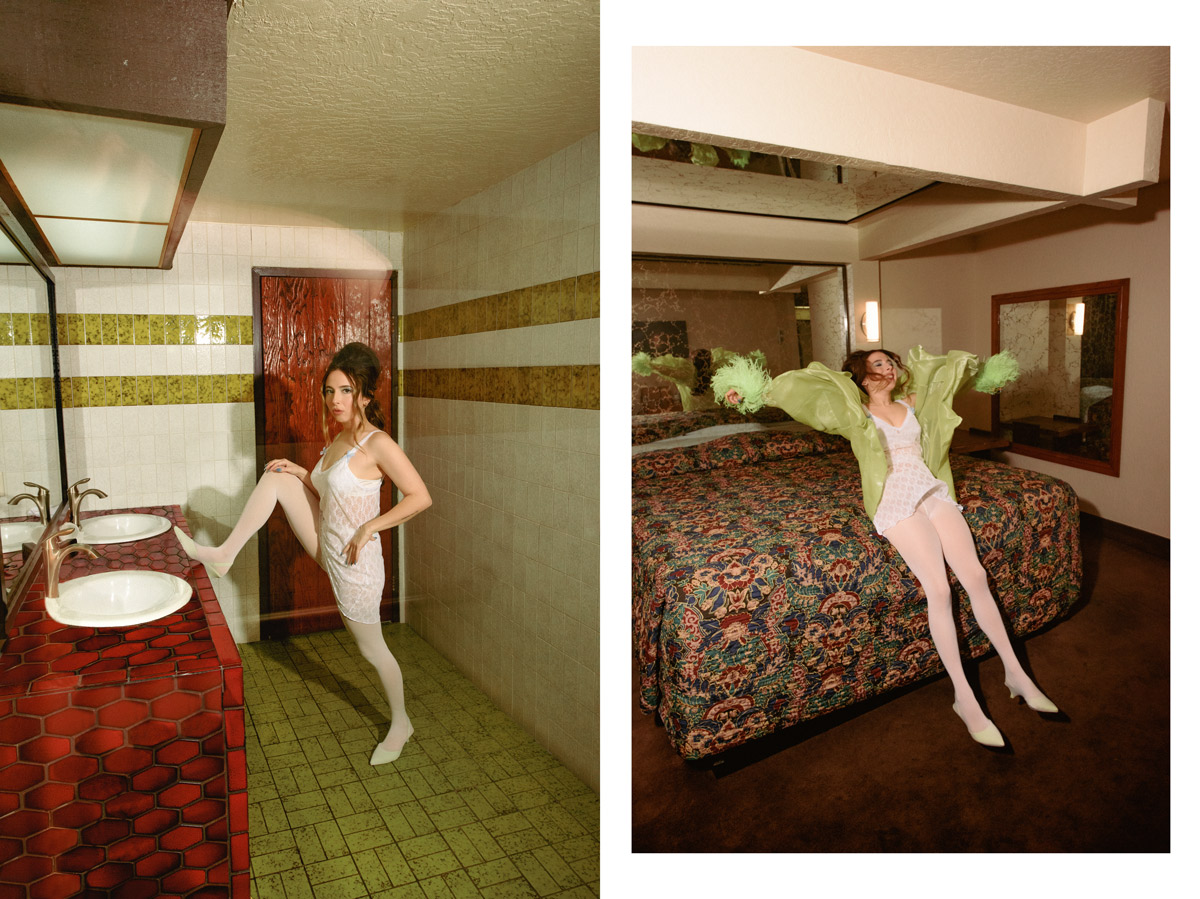
Bra: Vintage, Nightgown: B.Tempt’d By Wacoal, Tights: Fogal, Coat: Lapointe, Shoes: Open Edit
You said some SNL people were your inspirations — are there any other big people you look to as role models?
EP: Honestly, I just scroll TikTok all day and there’s so much good motivating stuff on there for me. Whitney Cummings — I think just knowing her…when I moved to LA, I didn’t really know her, but I saw her perform every night at the Comedy Store and I saw her write and star in her own TV show. I feel like she almost paved the way. And a show like Workaholics, where they were writing for themselves and found a lot of success with that… I think seeing other people do things and then being like, “That’s what I want to do,” is kind of how I’ve always operated.
What shows and movies have you been enjoying recently?
EP: Well, obviously I’m obsessed with Euphoria. Succession. And then right now I’m working on developing a new show that I would write and be in, and that is inspired by my favorite show, Eastbound and Down, but is not the same subject matter at all. That’s one of my favorite comedies of all time: Eastbound and Down.
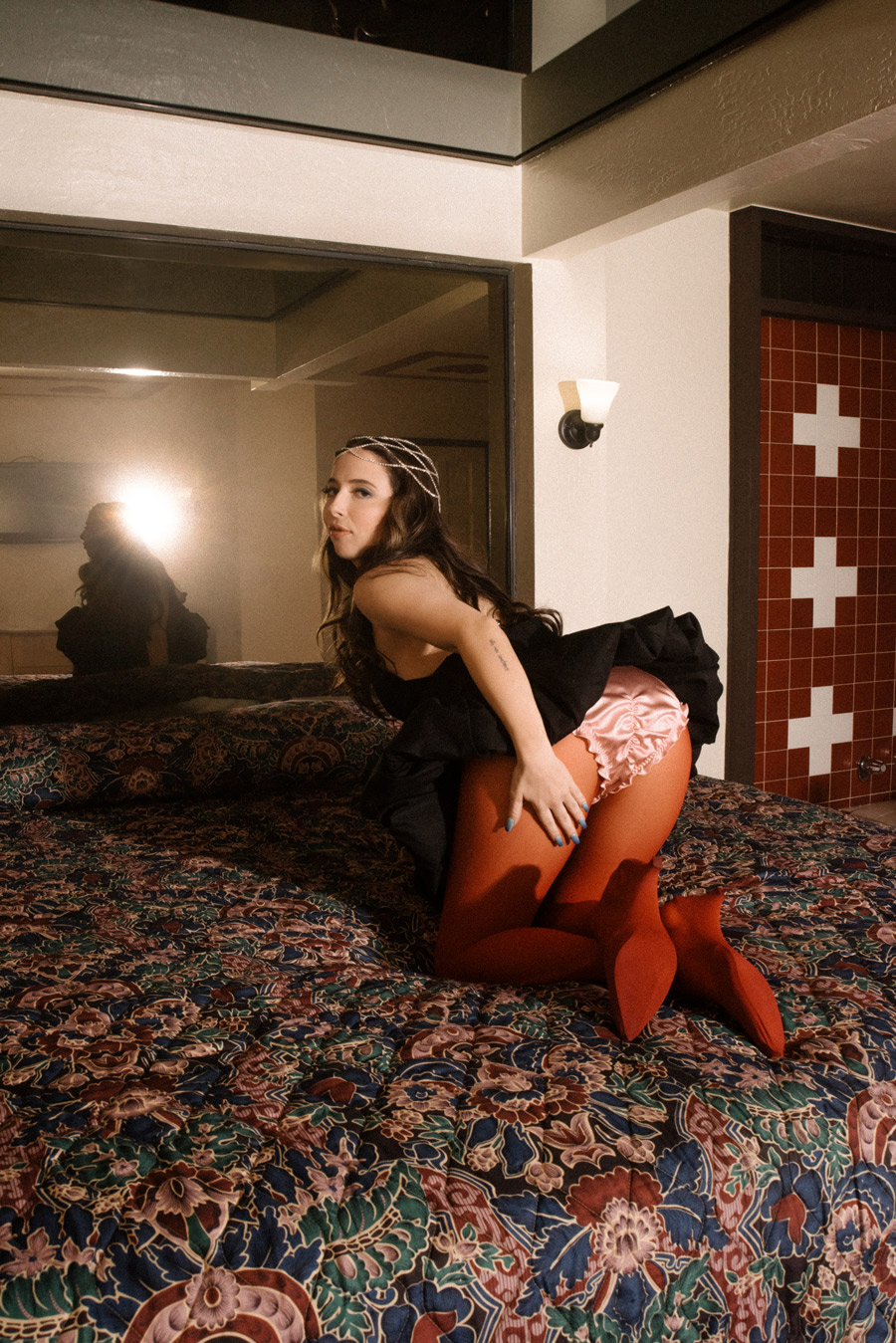
Dress: Khaite, Tights: Fogal, Headpiece: Vintage, Underwear: I.D Sarrieri, Shoes: Open Edit
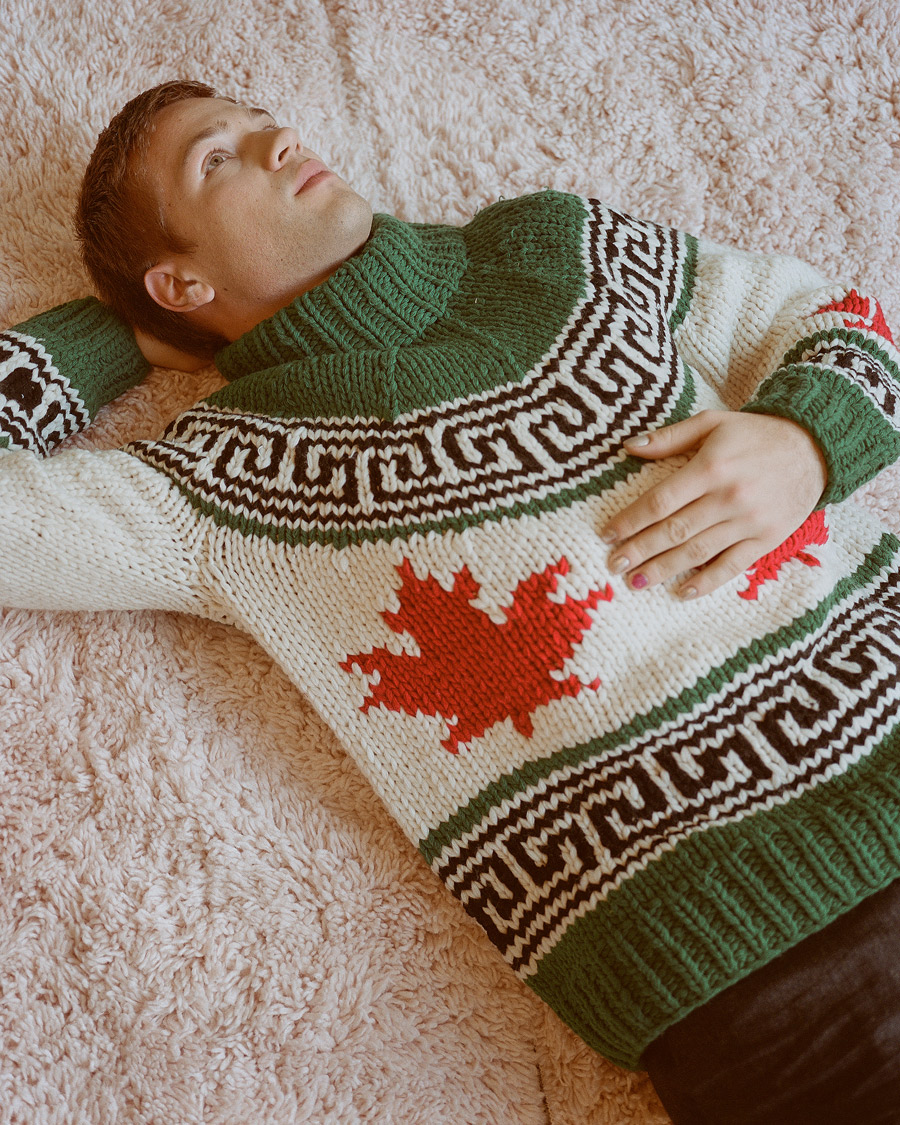
Sweater and Pants: DSQUARED2, Shoes: Prada
Photographer: Emma Craft
Stylist/Interview: Angel Emmanuel
Groomer: Ellen Guhin via Canvas Agency
Set Designer: Lidia Moore
Set Design Assistant: Tess Donlevie
The fans are loving the supernatural fantasy drama, Locke & Key, which premiered its second season on Netflix this October. The show’s success has kept the series in the top ten on the platforms ratings list and has already prompted the creators to move forward with season three. The show has also garnered a few notable new fans including one Britney Spears, who earlier this week prompted her instagram fans to watch the show in typical Britney fashion “Holy crap you guys, gotta check out Locke & Key…it’s pretty good!!!”
Playing Tyler Locke, the eldest of the Locke siblings is; Actor, Director, Writer, Avid Reader, Heartthrob, Globetrotter, and recent guest judge on Canada’s Drag Race, Connor Jessup. We sat down with Jessup over Zoom to talk about why he’s “straight4pay”, RuPaul’s Drag Race, how his accessibility through social media has influenced his queer experience, and how secluding himself in a cottage for a month in the British countryside is influencing his upcoming projects.
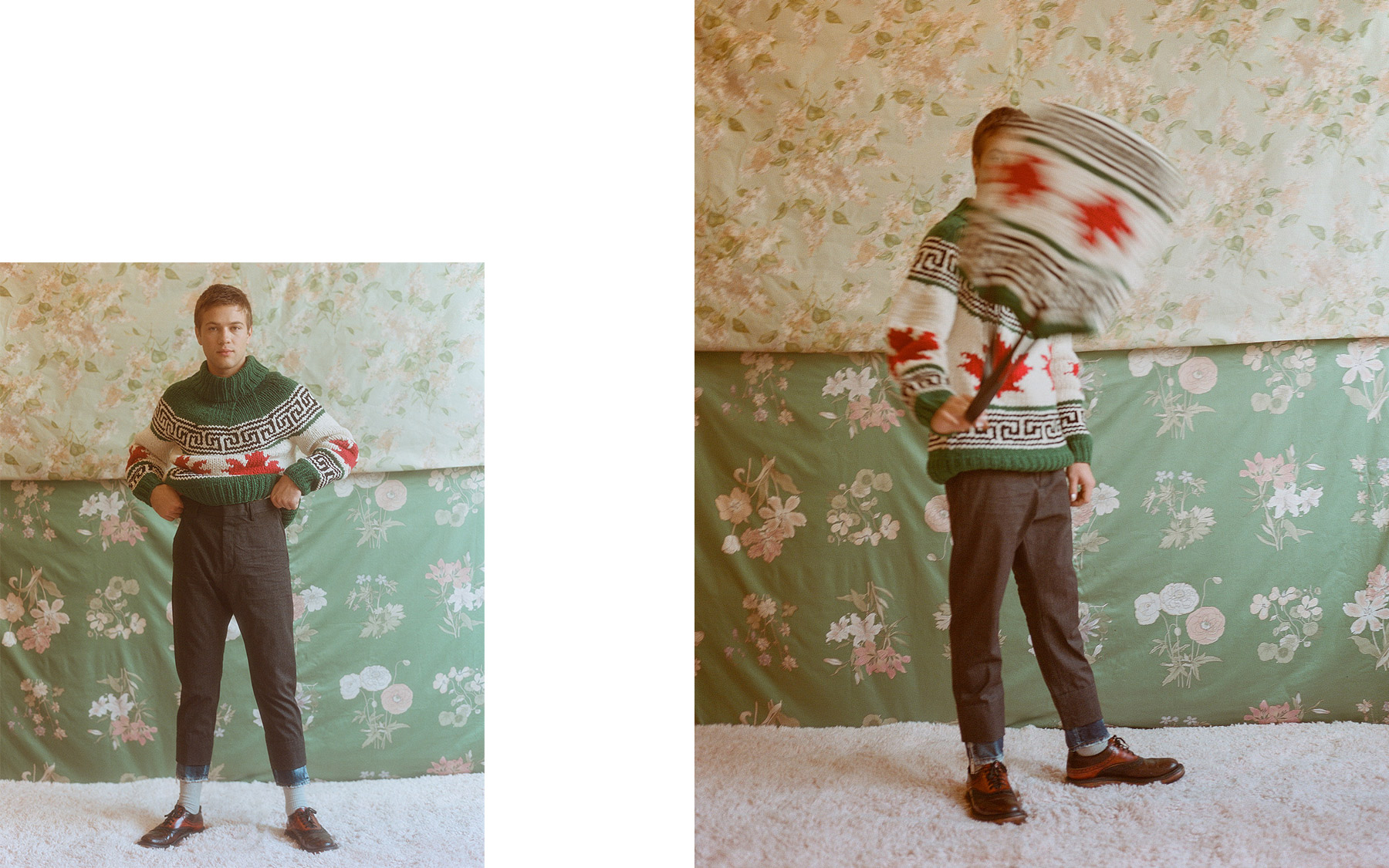
Sweater and Pants: DSQUARED2, Shoes: Prada
Nice to see you again!! Congratulations on the new season of Locke & Key!!
CJ: Thank you!
You’ve now filmed three seasons of Locke & Key, with the third being filmed back to back simultaneously with the second. Having played Tyler Locke for three seasons, is it hard for you to separate yourself from a character that you’ve put a lot of time into?
CJ: No, I’ve never had that. Maybe it’s where I’m at in my career or the characters that I play. I’ve never felt followed by a character. The reality of shooting something is so mechanical; you shoot in many little pieces, you shoot out of order, a hundred people are standing around you. You’ve got a 10 hour, 12 hour workday and spend about 40 minutes at most actually shooting. So it’s never been hard for me to remember that, that’s work. Maybe if I was playing a character that was more radically different than I am, I haven’t really had that experience though.
The sets and visual effects were amazing this season! I loved the Spider scene from episode 3, “Small World”, also the small antique toy house was very cool. Did you have any favorite visual heavy scenes that you filmed?
CJ: Yeah that was an amazing prop. The spider one was probably the most fun I had. We had great fun at the end, there’s a scene where Kinsey, my sister, carries me through the air with her angel wings that she’s found, which involved me and Emilia (Jones), flying on wires for days at a time which was almost like working at a theme park, it was so much fun. There was a scene where we’re making a key, there’s a montage of us forging a key, so they needed lots and lots of little bits and pieces. No one there had any idea how to forge anything, so we literally just made shit up. I’m sure the blacksmithing community is furious! That was fun, in a way it felt like when you’re a kid and you go on a boat and you pretend to know how to sail it, and you do all sorts of random stuff, like pulling ropes but none of it has any actual connection to the reality of how to properly sail a boat, so it felt like that.
A couple of days after our shoot you went to Greece by yourself for two weeks with no plan on what to do. How was your trip, what did you do?
CJ: It was extremely lovely, I did mostly very touristy things! I wandered around Athens, I saw very old things. I ate a lot of overwhelmingly delicious food. I went to Milos and Santorini. All and all, I had a very quiet, restful and calm time, which is exactly what I was looking for. I had never been to Greece before, so it was fun!
Based on your Instagram stories and highlights, it’s safe to say that you’re an avid reader. During your trip, I saw that you were reading Photocopies by John Berger. Considering you were living in a picturesque moment worth capturing and writing a story about; if you were to write a short snippet about that moment with an accompanying photo, how would it go? What would that photo look like?
CJ: That’s a good question! It’s interesting, I was thinking a lot as I was traveling, about the roles of different types of photos. I had my proper camera with me and my phone of course. I was taking a lot of pictures, because I was in a scenic place and also I was alone which helps. It’s funny what you feel compelled to take a photo of with your iPhone and what you feel compelled to take a photo of with your “proper camera” and how the perspective between the two changes. There’s a famous Gertrued Stein quote where she says, “I like a view, but I like to sit with my back turned to it.” I was in Santorini near the end of my trip which is just this stunningly scenic and idyllic place, swarmed with tourists who obviously all feel the same. It’s amazing how quickly you stop looking at “the postcard.” It’s amazing how quickly you tune out the landscape and the beautiful buildings, and the sunsets and the reasons why, ostensibly why, people are there. I feel like it would end up being a photo of a fragment that could almost be anywhere. It could be the pattern of the way a few walls intersect with some light. It’s not anything particularly beautiful but something that catches your eye in that one moment, you can’t repeat it. You can’t exactly put your finger on why it’s striking. That’s why I try to stay open to photography, it makes you look.
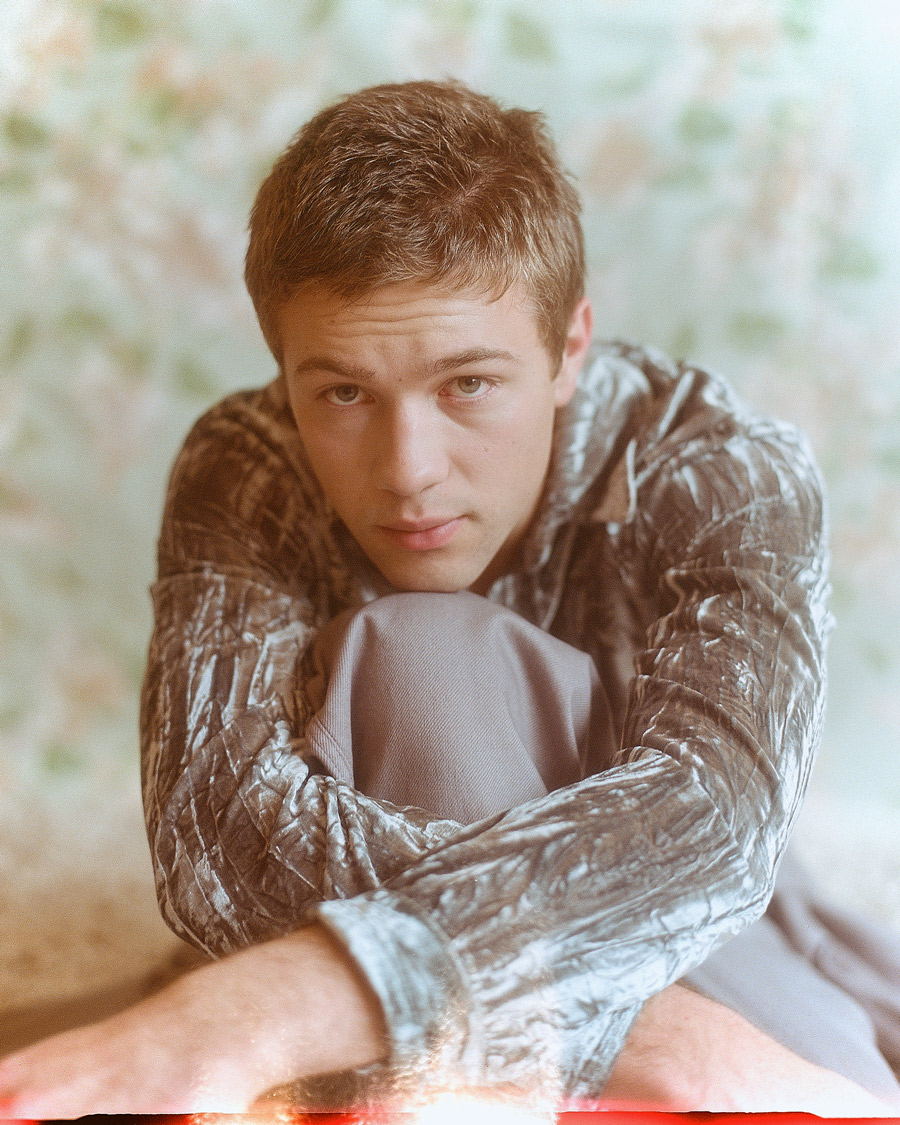
Button up top and Jumpsuit: Martin Asbjørn
Do you consider photography a hobby or something you just enjoy on trips?
CJ: I always chastise myself because I want to do it more often when I’m at home, but I just find that the energy for it is less present when I’m at home than when I’m abroad. Even though what I end up taking pictures of when I’m away is not anything particularly touristy. So I really should start forcing myself to carry my camera everywhere with me when I’m home. I have a very bad memory, and it’s a great way to remember things. Not in the traditional sense of you have a photo of a thing but in deciding to take a photo of something. You remember that moment.
You’re creating your own “photocopy”!
CJ: Exactly! Which is in a way what Photocopies is about. The fascinating thing about that book is that every little snippet, story, fragment, whatever you want to call it, is inspired by a photo. But for the vast majority of the pieces you don’t see the photo. It doesn’t do the thing you expect it to do, like here’s the photo and here’s the story. There’s actually stories where the photos are absent, so it really is like the stories themselves are the photocopies. I think a lot of people with an interest in photography understand that feeling; which is that the photo just becomes a stand-in for some other feeling, or some memory, or some moment.
Anytime I visit a new country I always come back learning so much more about myself than I did before. Did you learn anything new about yourself while there, or London, or now the countryside?
CJ: I’m sure I did, maybe I’m still in the process of that. I’m out here in the countryside in a cottage for about a month. The mission of being here in one place in the quiet for a month is to try and do some writing. So maybe through that process I’ll come to more of a bit of understanding. I always find it takes a second. I felt like I was in such a specific mood for a year while we were working. There’s a certain automatic quality to that, as an actor your life is kind of planned for you while you’re working. I’ve been trying, in the last month since we wrapped and in traveling, to find what my normal speed is again or what my new speed is. I’ve made a lot of new friends in the last little bit. So I’ve been enjoying remembering that friendship can be a great source of energy and inspiration.
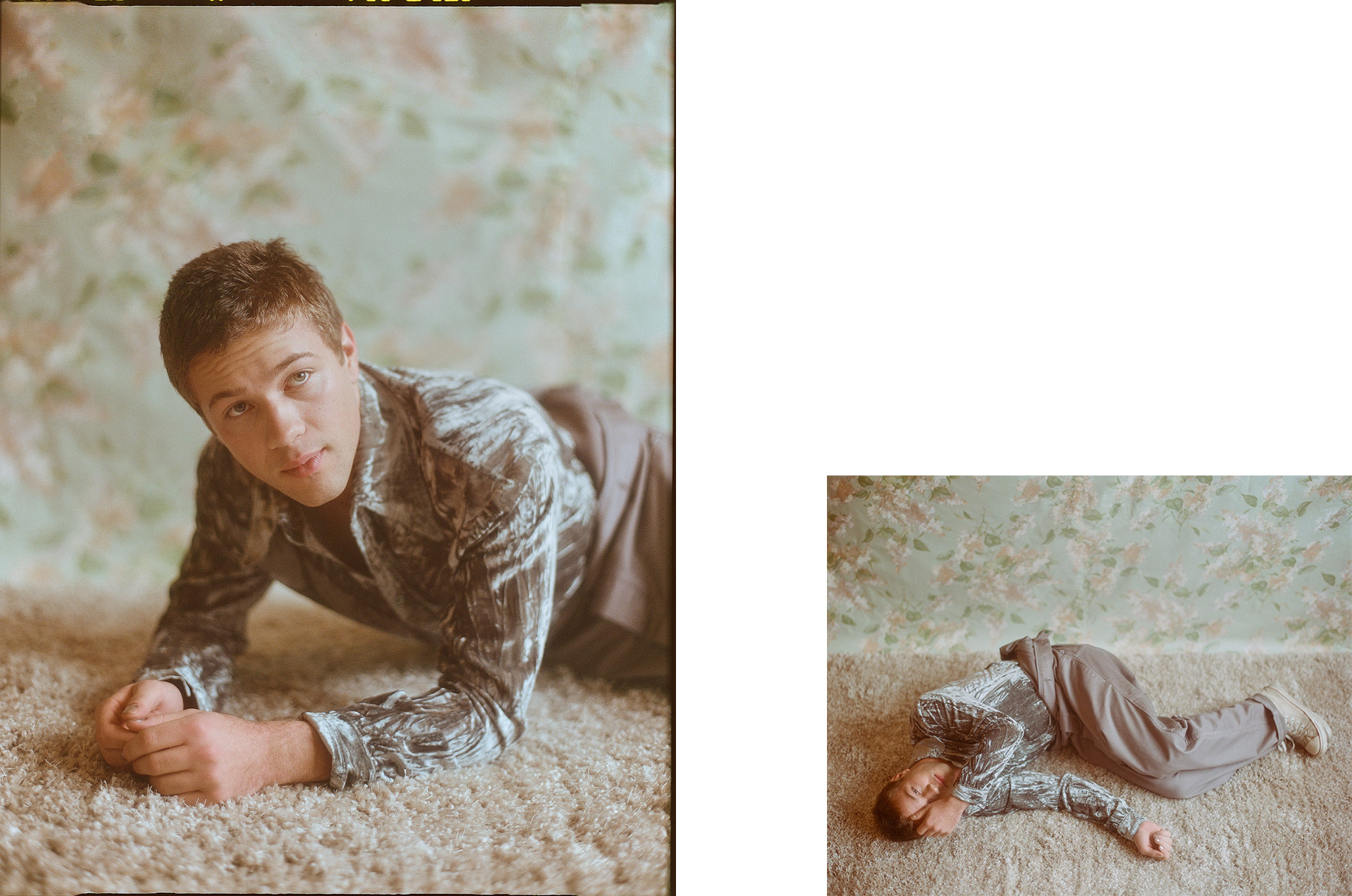
Button up top and Jumpsuit: Martin Asbjørn, Shoes: Converse
Speaking of friendship, during the shoot you showed me a photo of you and Tilda Swinton proudly showing off your manicures. How did that friendship start and when are you going on a Mani/Pedi date?
CJ: Friendship is a strong word, but Tilda is one of these people who is almost supernaturally open to other people and experiences and the world. Which I don’t think is a huge surprise to people who are familiar with her. I’m good friends with this Thai filmmaker, Apichatpong Weerasethakul, who is one of the greats that we have. I made a documentary about him a few years ago as he was on a research trip for his most recent film which just premiered at the Cannes Film Festival starring Tilda Swinton. I visited the shoot a couple of years ago and spent time with them, that’s how I got to know Tilda a little bit. I saw her again in New York a few weeks ago because the film premiered at the New York Film Festival. That’s the Tilda connection. I’m still a little Queer boy, so Tilda is obviously in the pantheon.
So no mani/pedi date set??
CJ: I’ll keep you informed, I sure hope so! We’ll see how that materializes in the real world!
I’m so obsessed with your instagram bio, it’s hilarious! It’s “straight4pay 🏳️🌈” which is a play on words on “gay4pay”. As a queer actor how does one prepare to be a straight man?
CJ: I didn’t do anything to prepare for that!
That’s something!
CJ: I insisted to myself that I was straight for many years while I was young so I have enough experience in knowing that vocabulary. In many ways gay people are great studies of straight behavior, because we’ve tried so hard to understand. I would trust a gay man to describe a straight mans behavior better than I would trust a straight man.
Since coming out, how freeing has it been to be yourself, especially in the industry?
CJ: More than I thought it would be honestly. More freeing than I expected. Coming out is a process, which is a phrase that gets thrown around, but only started to mean something to me recently because I came out many years ago in my private life. There’s such a big build up to that, you know? There’s coming out to your mom, and your best friend, and that felt like the important thing. Then years passed and I had convinced myself that I had come out, and then for various reasons I had decided that I wanted to come out publicly and it’s really only since then which is something that I didn’t put a lot of weight on when I did it, emotionally, that I started to feel a part of the community and connected to a heritage and really started to properly feel gay. I’m still in the process of examining exactly why coming out to people that I don’t know had the effect on me that it did.
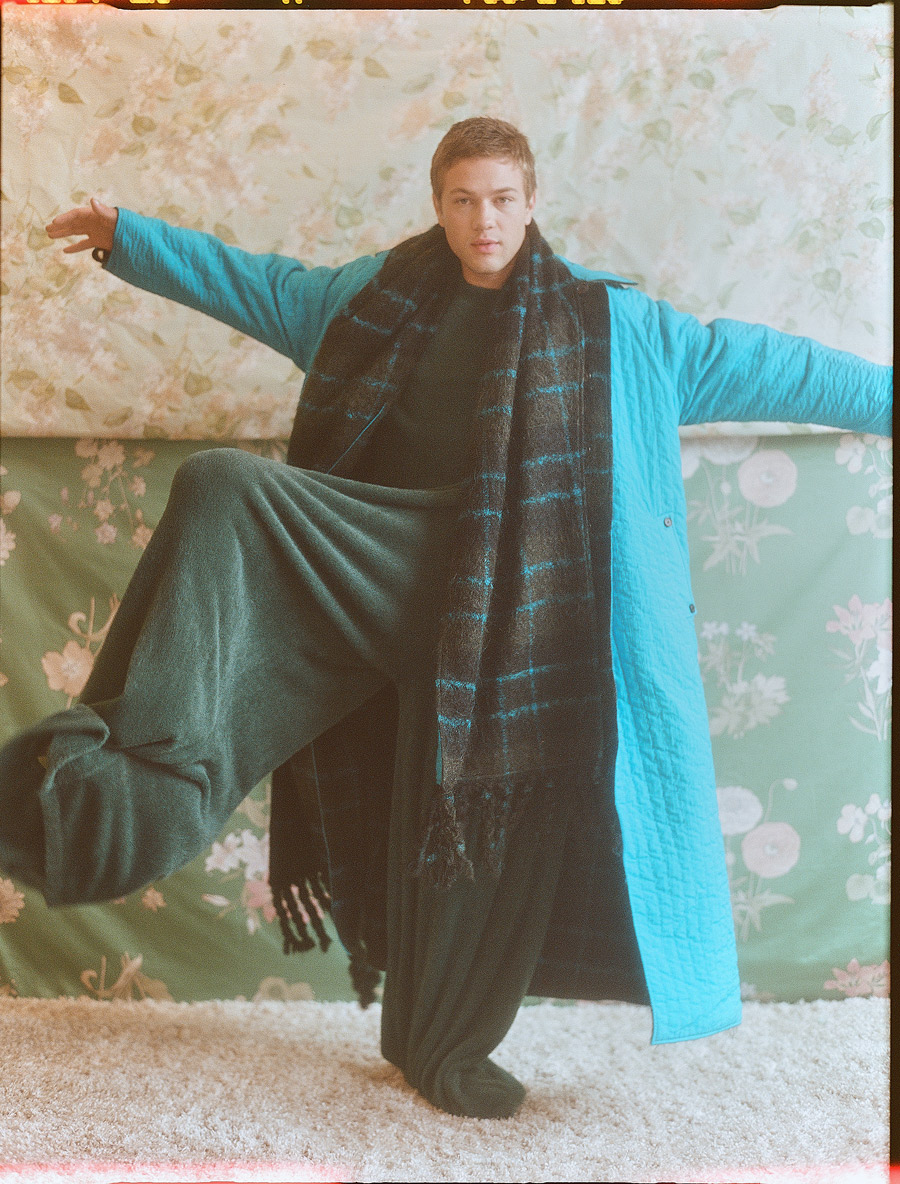
Jumpsuit, Coat, and Scarf: Kenzo
A lot of people shared their stories with you when you publicly came out
CJ: Yeah it was two years ago when I came out on instagram. Most days people will send me messages, stories, some fragments short or long of their experience whether they’re in the closet, or freshly out, or out for decades, or in countries where you can’t come out. There’s such a variety of queer experience and not just gay people but; ace people, trans people, pan people, and others under the wonderful rainbow umbrella. Which I think contributed to me feeling a part of the community, and broadening and deepening my understanding of queerness, because my experience is so limited compared to this whole range of other peoples experiences. I think that has had a big ongoing impact on me. It’s hard to know if I feel shy about the whole thing because I have no claim. I’m just an actor, I have no expertise or training or real wisdom to share or help. It boils down to receiving these stories from people and trying to understand them through the prism of whatever tools I do have. Social media is a weird thing, this flow of information.
Getting all these messages everyday, how does that make you, Connor Jessup the person, feel?
CJ: Depends on the message. Sometimes it makes me feel really warm, and seen. Sometimes it makes me very sad. Sometimes it makes me confused and angry. Really the range of emotions. The type of messages are so varied. It goes from something as simple as someone who sent me a message the other day that just said, “Thank you for coming out. I feel less alone.” That was the whole message. That for some reason, the moment that I read it, had a real emotional impact on me. Even though there’s no information on who that person is or what their experiences are. The hard thing about social media is, which I think we all feel, is that it has a tendency to dehumanize. People are seen faceless. When you’re interacting with celebrities or even when you’re interacting with your friends, it just feels a bit separate from real life. You allow yourself to react in ways where you wouldn’t if you were talking to someone in real life. Even the comments on anything I post I’m like, “I doubt you would say this if I were to bump into you on the street.” So there’s that level of separation and it’s hard and it takes work when you’re sending and receiving to consistently remind yourself that you’re dealing with full people. Anyone sending me messages saying “I feel less alone,” or “I hate my body,” they’re just as full of a person, with just as full lives as I am, as any of us are. I have to remind myself that all the time, that’s a good exercise of mine.
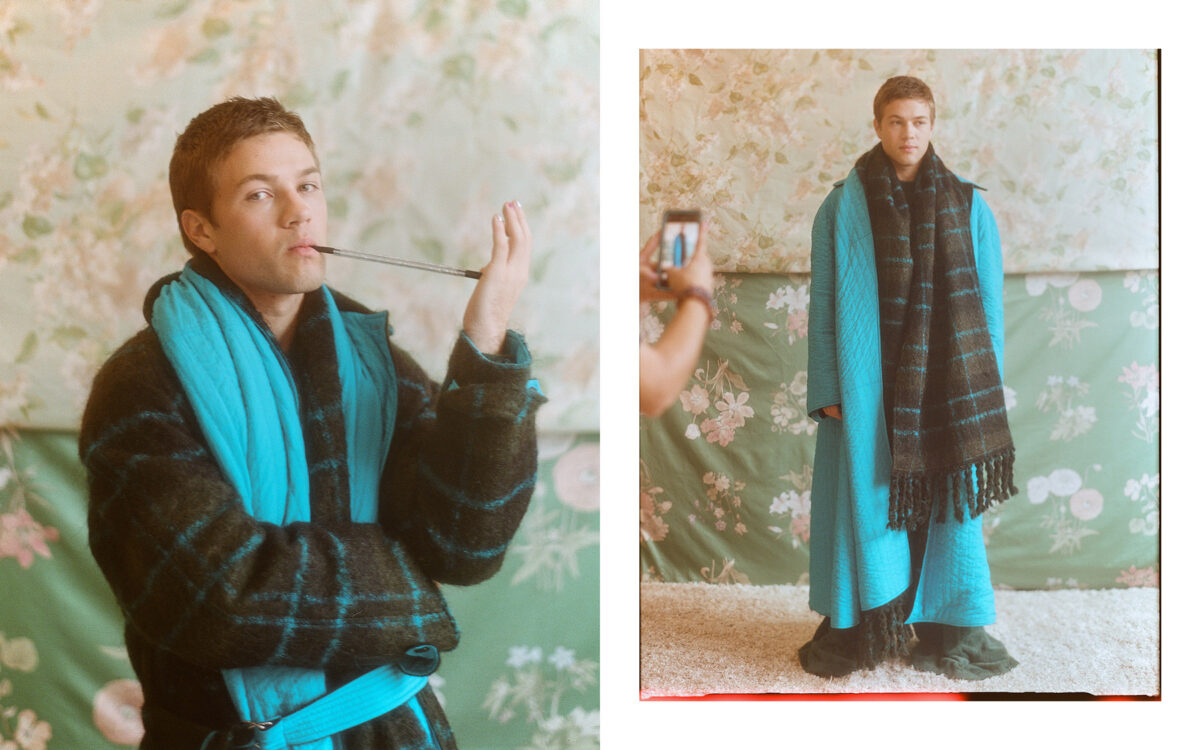
Jumpsuit, Coat, and Scarf: Kenzo
This week you’ll be on Canada’s Drag Race as a guest judge! How excited are you to see the episode?
CJ: I’m very excited! I’m a little nervous, obviously. I haven’t seen any of it. You shoot for, well I was there for 10 hours shooting for what will probably be 15 minutes of the show. So I don’t know or have no concept of what they included, what they didn’t include, how they edited it. I’m excited, nervous, and I hope that the gays don’t turn against me!
The Drag Race fandom is notable for voicing their opinions! Good or Bad.
CJ: Yes! And so far I have yet to be on the receiving end of any gay backlash
Good! Let’s keep it that way!
CJ: Yeah exactly! I hope that this is not the first time
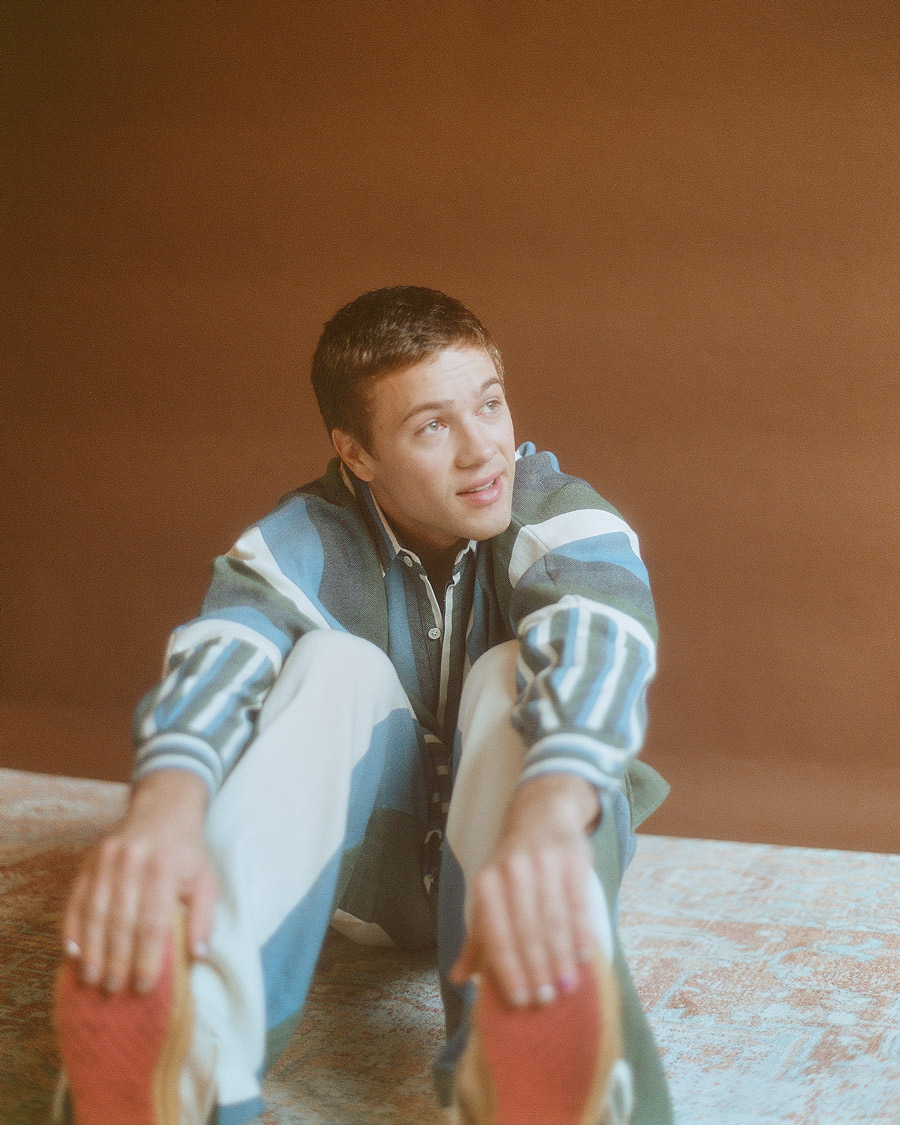
Shirt and Pants: Marrakshi Life, Shoes: Superga
The preview for the episode shows that it’ll be Snatch Game (a challenge where the queens have to do celebrity impersonations following the Match Game show format) which is the most beloved challenge of all time! What was that experience like not only getting to judge Drag Race but also the Snatch Game episode?
CJ: The way the episode went; there was a different guest on the actual Snatch Game but I was on the main stage. It was a scheduling thing, but I was actually there since it all happened on the same day. I was there in the morning and I watched the whole thing live. It was a great way for me to get acquainted with the queens. It’s episode 4 of the season so everyone watching will have seen 3 episodes worth of getting to know the queens, and I came in blind, so it’s a great introduction. It’s also so fascinating as a fan of Drag Race to see how unbelievably hard Snatch Game actually is. It seems hard when you watch it on the show but when you see how dry and slow and hot the actual shooting is. There’s no energy at all, there’s no flow, so to be witty and sharp and quick in that environment is impressive.
Have you watched Drag Race for a while, are you a fan?
CJ: Yeah I am, of course! I mean now though everyone is a fan. It’s relatively new to me though, I’ve watched it for about two years now.
Do you have a favorite queen from any of the Drag Race franchises?
CJ: I don’t think I have one favorite. Last season I was really bummed by the way things ended for GottMik, I was a huge GottMik fan. There are many queens I love, but they’re one of them
What was it about GottMik that you loved?
CJ: They’re enormously talented and fun! What GottMik represents; which I saw a little bit of when I was guest judging, is the broadening of what the definition of drag is. I’m not at all an expert in drag, but it seems from an outsider’s perspective that people like GottMik are leading the excavation of new territory, new ideas, new permissions, and that’s really exciting to watch
Would you ever do drag?
CJ: I would love to try! Now I have people around me that I can call, like makeup artists, that could help me. So I would absolutely love to try! I feel like I could probably make it work.
Oh you’ve got it! For sure!
CJ: Thank you! I don’t know what my style would be at all, I have no sense of that. I would like to explore.
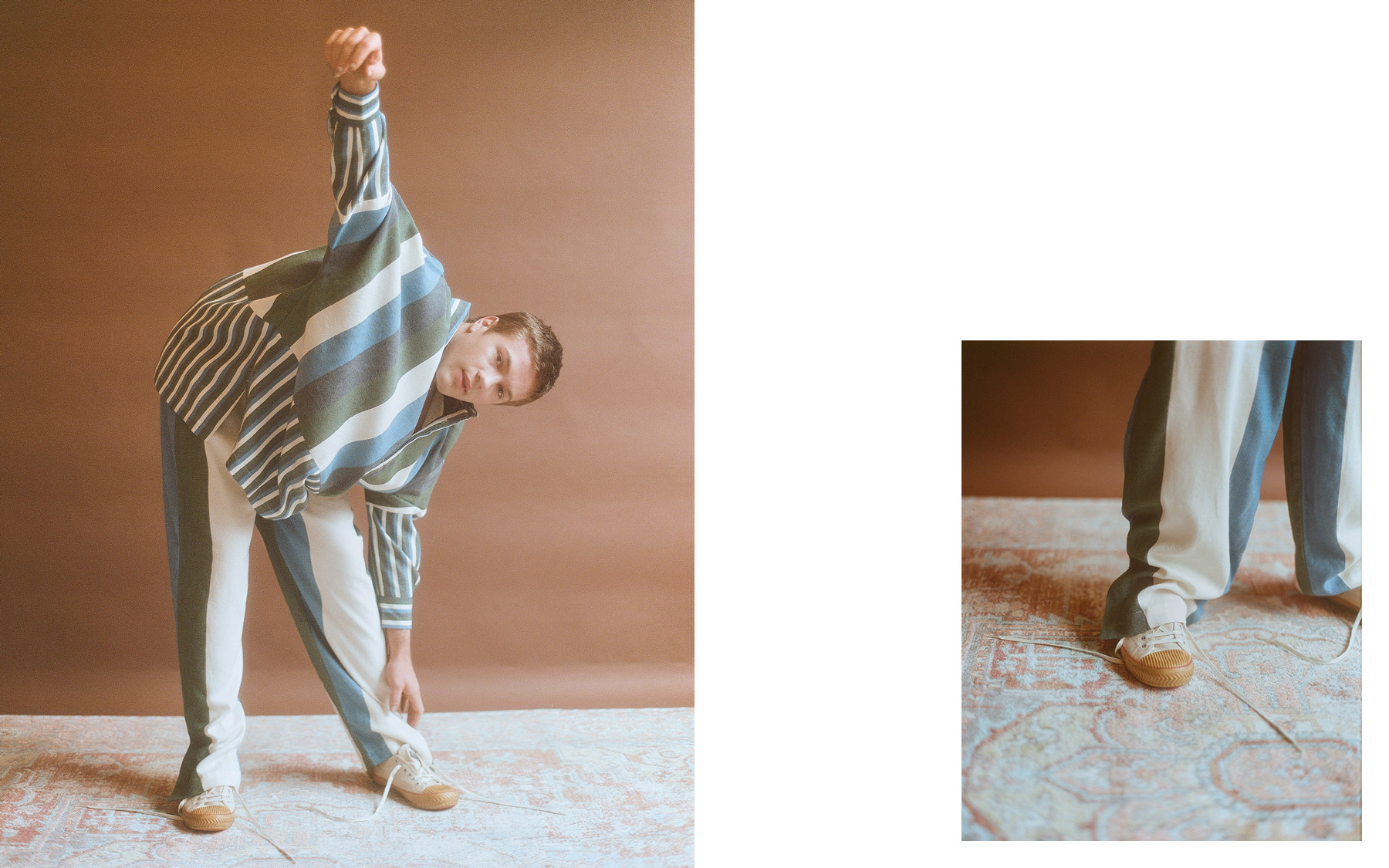
Shirt and Pants: Marrakshi Life, Shoes: Superga
Do you have a sense of style now?
CJ: In my life? It depends on who you ask!
Well if I’m asking Connor!
CJ: I’d like to think so! Maybe it’s connected to coming out, the timelines would suggest, it’s only in the last couple of years I started to really have fun with clothes and started to care about them in a way as a form of expression at all. I’m relatively late to that idea. I had a lot of ideas when I was younger, which is partially connected to sexuality and partially other aspects of my personality, about certain levels of seriousness. I wanted to be taken seriously, and I think it’s also a symptom of being a child actor and growing up around professionals and adults. I always wanted to be seen as mature, and classy, and simple so the clothing I had reflected that. In other words, you could say, it’s boring. So it’s only in the last couple of years that I started to branch out. I don’t know how I would describe my style though.
Who are some designers that you like?
CJ: I’m obsessed with Bode, and J.W. Anderson. I’m no fashionista at all but it is something I’ve given more time, money and attention to! Hopefully I can find ways to surprise myself!
Besides acting, you’re also a director. Where would you like to take your directing career?
CJ: Forward, ideally! I’ve made shorts, documentaries, music videos and I’ve kind of tired myself of making short form stuff. I definitely want to make the next inevitable step and make a feature, which I’m working on literally right now. Hopefully in the next few years I can get a feature off the ground.
If there was nothing holding you back from making your larger than life film, what would that dream project be?
CJ: The film I’m working on right now, if it can pan out like it is in my head, that would be the immediate dream project. Last year I read The Song of Achilles by Madeline Miller, which is a beautiful, beautiful, queer retelling of the Iliad, which is a massive story on a huge canvas. I’d love to do something like that.
What kind of stories do you hope to share?
CJ: I don’t think there’s one descriptor, or one type of story. To me directing and writing is a way of better understanding myself. I find that most of the time what I’m fighting against is the temptation to go through life automatically. Writing and directing is a way of resisting that or forcing myself to resist automatic living. It’s a way of asking myself questions and accepting boredom. The stories I’ve been drawn to tend to be ghost stories, but not in the horror sense. Themes I come back to, that I’m interested in, deal with this relationship between loss and desire. Maybe it’s a queer thing, I mean it’s a human thing. The impulse towards it, the queer thing, this feeling of things you want but they slip away from you or they’re out of reach. Maybe that’s why ghost stories always appealed to me. I expect that to pop up in lots of things I make, but I’m not sure what form that would take.
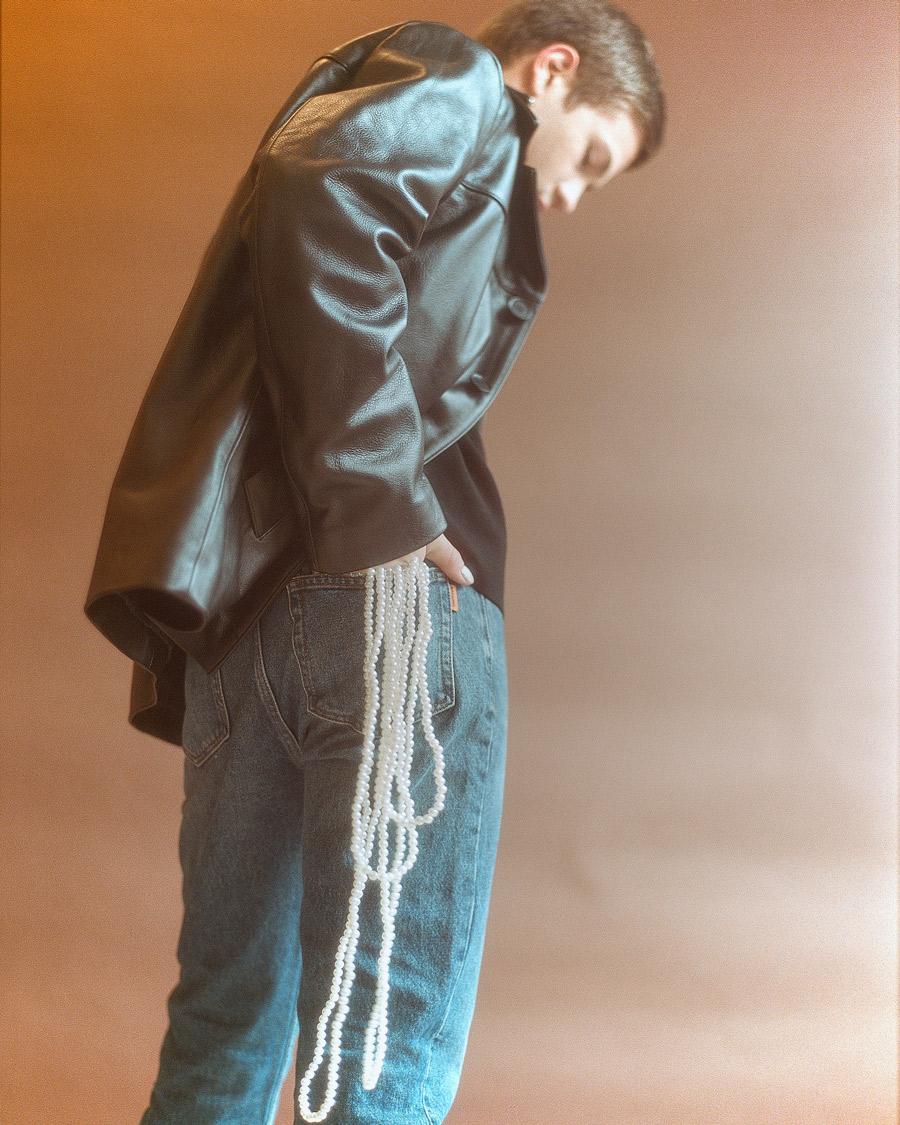
Jacket, Sweater, Jeans: Sandro, Shoes: Prada, Necklaces: Stylists’ own
Would you ever direct and act in the same film?
No.
Why not?
CJ: A lot of reasons, I have a lot of insecurities as an actor, which requires a lot of energy to combat while I’m working, that I don’t think I’d have that energy to give while directing. Part of the exciting thing about being a director, one of the most exciting things, is working with actors and being surprised by actors. You write something, or come up with an idea or stage a scene, and then actors breathe life into it, and you’re surprised, and you have to react, or you didn’t think this scene would play out that way or that line wouldn’t have that impact. I don’t think I could surprise myself in the same way, so I think in a sense it would be robbing me of the fun of being surprised by someone else. Also there’s so many brilliant actors who I’d love to work with, and friends of mine, and people I’ve met, and people who I’ve dreamed of meeting. I know myself, why would I get in the way?
Who are some of those people?
CJ: I have good friends for example, these two young british actors Joe Locke and Sebastian Croft who are two of my dearest friends, and they’re beautiful actors
Also Netflix actors right?
CJ: Yes! They’re in Heartstopper which is coming out next year sometime. Which is gonna be fantastic and they’re gonna be brilliant, and way, way more famous than any of us! So it’s people like that who are not household names but close friends of mine who I’d be very, very excited at the idea of working with. One of the most fun parts of doing anything, whether it’s acting or directing, is making work an extension of friendship. It’s the best way of making fun. All the things that I’ve made that’s been the most fun and satisfying are things that I’ve made with friends, or with people who become friends, where the work and the friendship is almost inseparable. Beyond that I’d love to work with Tilda, there’s more actors on that level that I’d also love to work with. It’s a great world out there of people who can surprise you.
What are your favorite films?
CJ: Oh my god, that’s just a mean question!
Sorry ‘bout it!
CJ: I mean it changes all the time! The movies that I’ve seen the most are; the Taiwanese movie Yi Yi by Edward Yang. Still Walking by Hirokazu Koreeda, which is extremely tender, detailed, I’ve seen that movie hundreds of times. Spirited Away by Hayao Miyazaki which is the most beautiful movie ever made. You know what movie I’ve been watching a lot recently is, A Sunday in the Country, a French movie from the 80’s, by Bertrand Tavernier. It’s a beautiful movie. That’s the movie where the first time you watch it, it seems very nice but doesn’t hit you over the head, but as you think about it more, it kind of expands inside you. I’m especially interested in and moved by how the camera moves in that movie. I’ve never seen a camera move like that, it’s like it’s powered by wind and not by grips. My friends and I went to go see a screening of, In the Mood for Love, a Wong Kar-wai movie last week, which I’ve seen a few times and always loved but for some reason this time watching it in theatres with other people at this point in my life, it overwhelmed me. I was a fucking hysterical mess. It’s strange, this amazing thing about art, that something you feel like you know can completely sneak up on you.
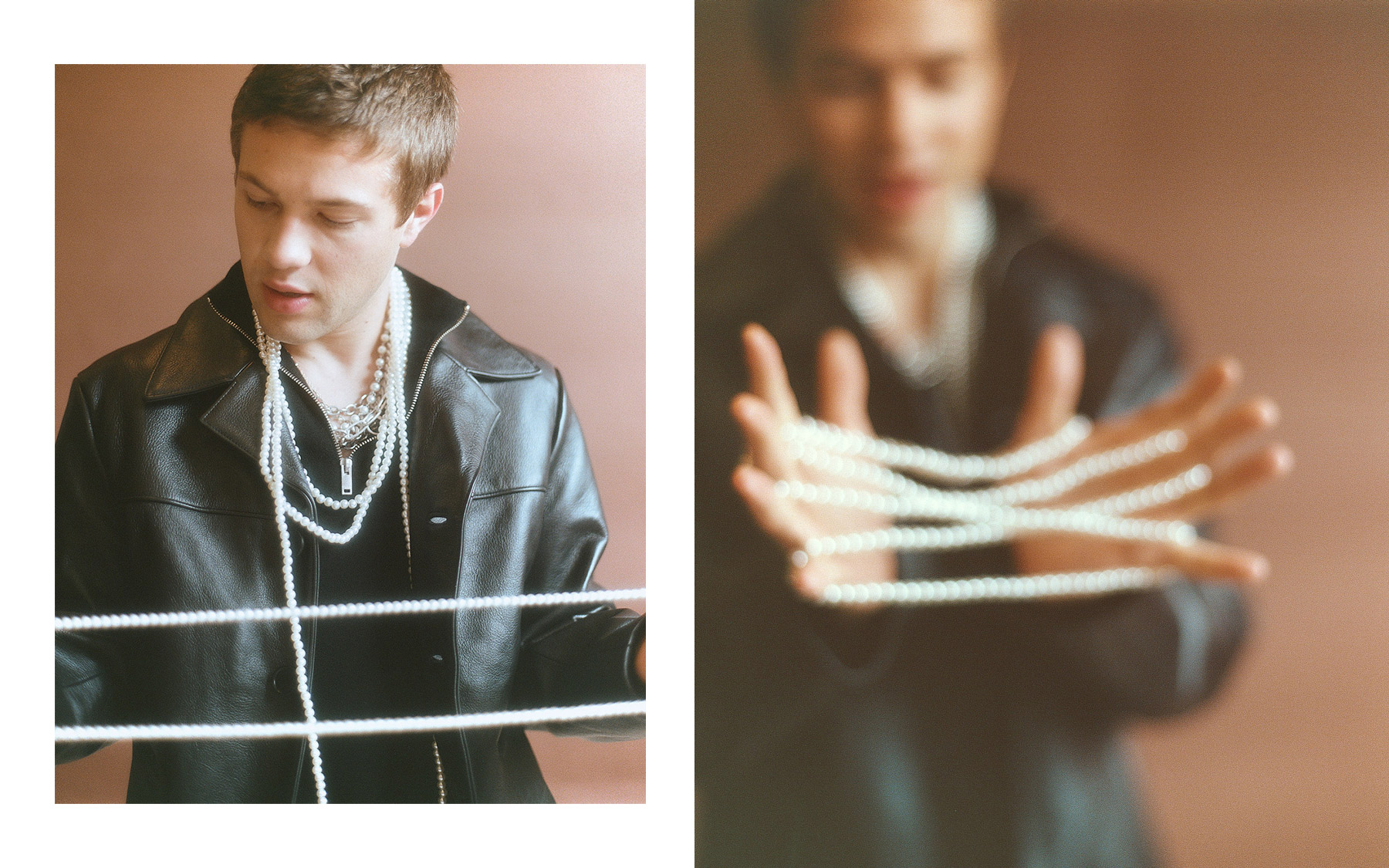
Jacket, Sweater, Jeans: Sandro, Shoes: Prada, Necklaces: Stylists’ own
Are there dream roles that you’d like to one day play?
CJ: I should have a better answer to this question, but I don’t really. I would like to do things that are different from what I’ve done before. I would like to be pushed to do things that I don’t think I can do. Specifically what that looks like, I don’t know. It’s always hard for me. I’m always most comfortable playing characters who are fragile, vulnerable and unsure. It’d be a good healthy challenge for me to play someone who’s really, really confident. I don’t feel like I think that’s at all a tool I have control over; confidence
While in New York, you visited galleries and museums. Were there any galleries, art work or artists that stuck out to you?
CJ: I have this artist friend of mine who I’m obsessed with named, Bambou Gili, who’s a young Brooklyn based painter and she had a show which just ended, called The Nonexistent Night which is a riff on the Italo Calvino title, The Nonexistent Knight. She’s a beautiful, beautiful painter and also an obsessive Hayao Miyazaki fan so we bonded over that. She’s a genius and she’s gonna take the world by storm with these great sensual, figurative paintings. So I love her and was very grateful seeing her first solo show. The only other art I went to see was at The Met, which I’ve been to a few times. It always, at least for me as a non New Yorker, feels like going to a different museum.
It always feels that way!
CJ: I wandered parts of the museum I’d never seen before, there’s so much to see, and a lot of pictures to take on my phone. In the Greek section at The Met there’s this display with small glass beads in the shape of tiny fragile animals which for some reason struck me. It’s one thing for a sword or a marble statue to survive, but the fact that these tiny beads had survived 2400 years really touched me.
Did you see any glass bead animals while you were in Greece?
CJ: Not like that! The thing in Greece is like almost the same thing when you visit anywhere that has such a rich history. In Japan for example they call it “Temple Fatigue,” where you’re so inundated with history and culture that it almost becomes meaningless. Everywhere you look, everyday, you’re seeing something that has 2400 or 3200 years of history. I think the same thing happens in museums, where all these miraculous things are grouped together in such quantity that you kind of lose sight of it. But I did see some beautiful things in Greece.
As a Toronto native, tell me about what the experience was like growing up. How did it influence the person you are today?
CJ: I love Toronto more now than I ever have, I think I grew up and it was my home so I didn’t really think about it, it was just the place I lived. When I was a teenager I thought it was peaceable, but boring…but now I think it’s peaceable and boring!!! The intonations just changed! I’ve come to really value that quality. I have this weird relationship with Toronto where I don’t find it inspiring at all, no part of me is moved to tell Toronto stories, or set stories in Toronto. When I walk down the street I’m not moved by what I see unlike some other places, but I feel a great sense of safety while I’m there and warmth. My whole family’s there, I get to settle in a way where it’s really comforting. There’s an amazing film community, and amazing artists, and young people on the verge of really exciting work, so I feel really excited by them. Toronto is a major metropolitan city with about 5 million people, there’s a lot of layers to Toronto.
Finally, who is Connor Jessup?
CJ: He’s usually not sure. He’s trying to figure that out. Like I said when I was younger it was very important to me to have a clear self image and work on a brand. Not in a careerist way, but in identifying who I am, the way I interacted with the world. I never really questioned that, that it came from an honest place. Now I feel like a lot of the foundation that a lot of that was built on was not quite true. I’m trying to make less assumptions and leave more open space, and be okay with that.
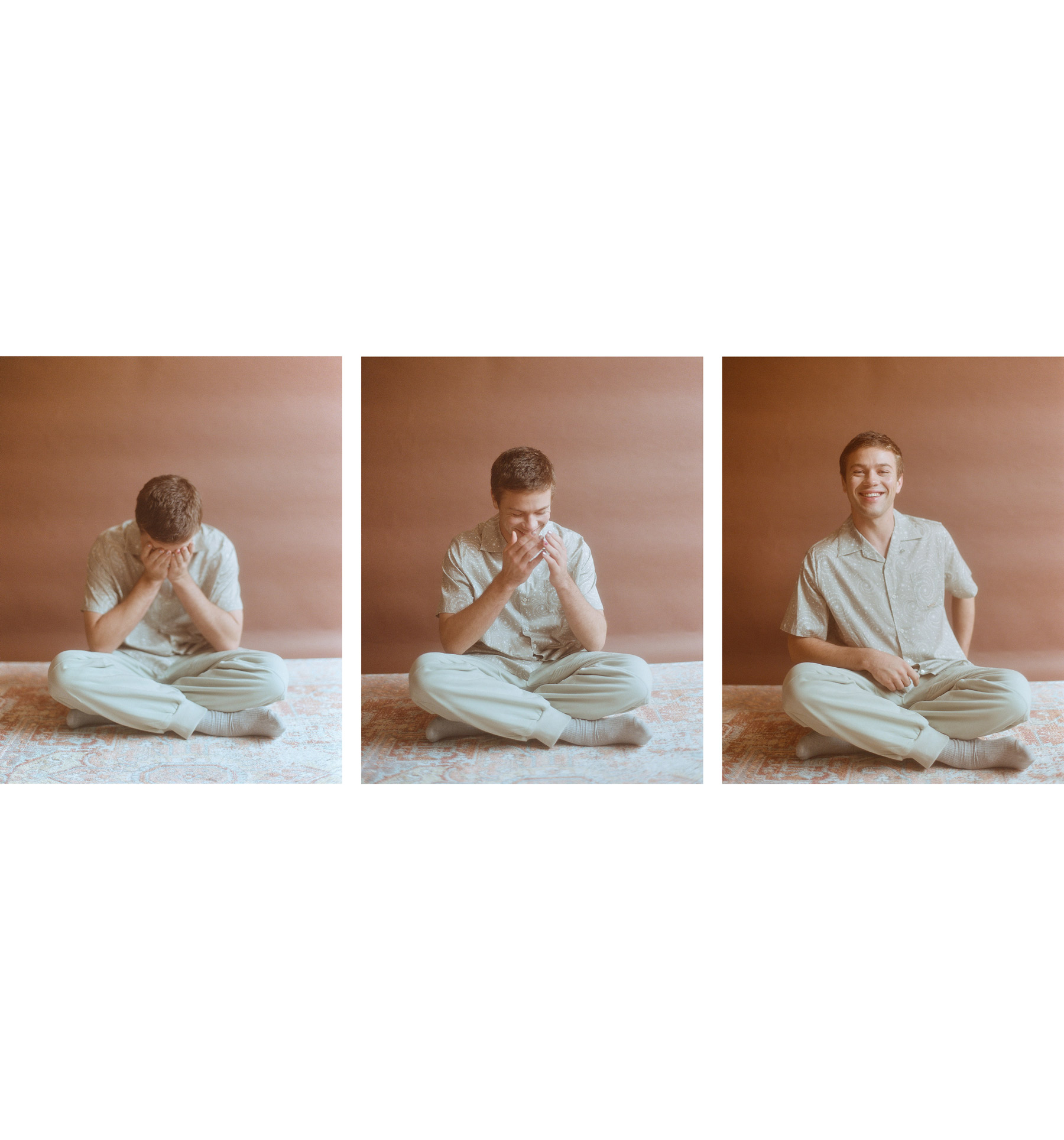
Shirt and Pants: Private Policy
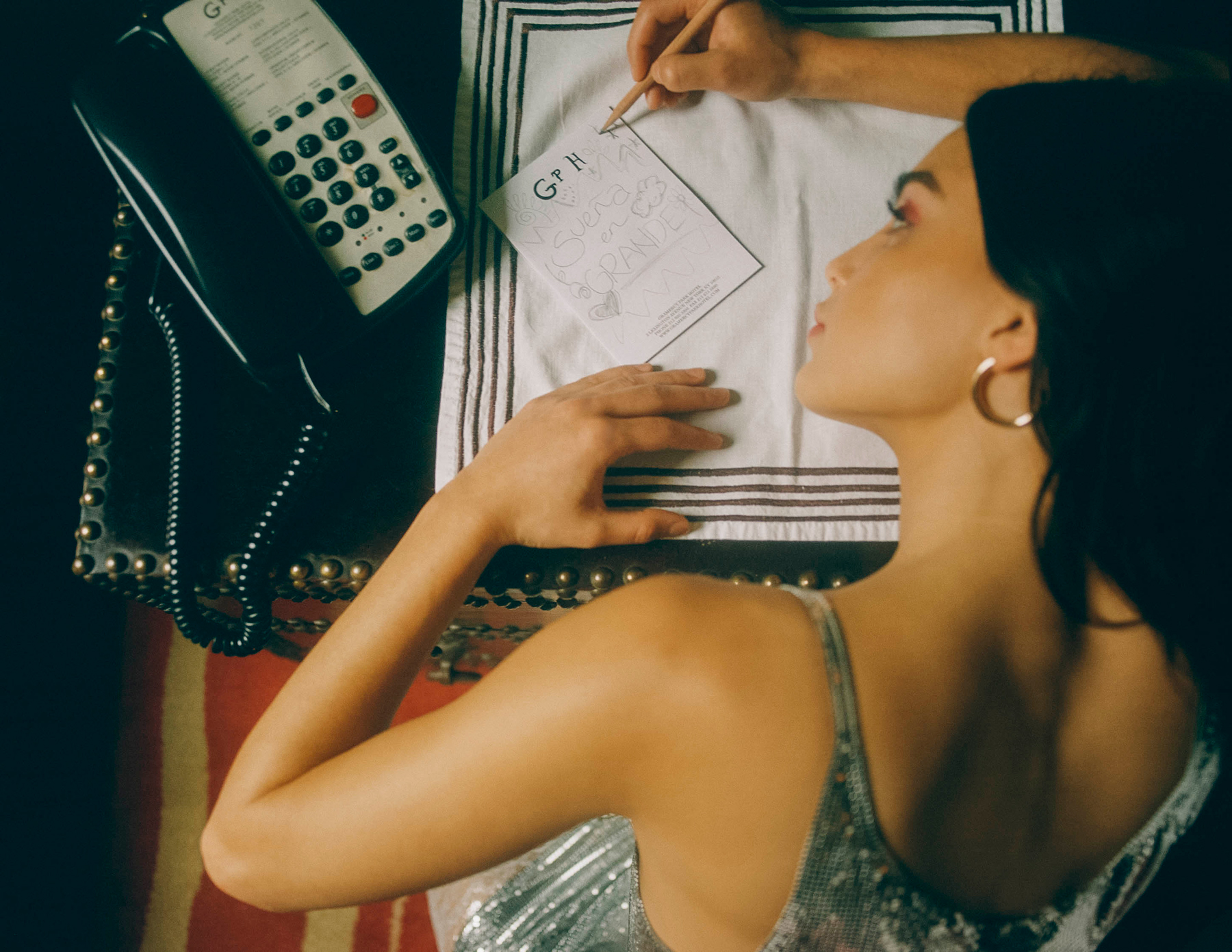
Dress – Paco Rabanne
Photography by Dennis Tejero @ ADB Agency
Styling by Marc Sifuentes
Makeup by Talia Sparrow @ Kalpana NYC
Hair by Cameron Rains @ Forward Artists
Interview by Evan Ross Katz
Melissa Barrera, one of the leads on Starz’s Vida and the upcoming film adaptation of Lin-Manuel Miranda’s In The Heights, opens up about her journey to success and prioritizing her Latin roots within and outside of her work.
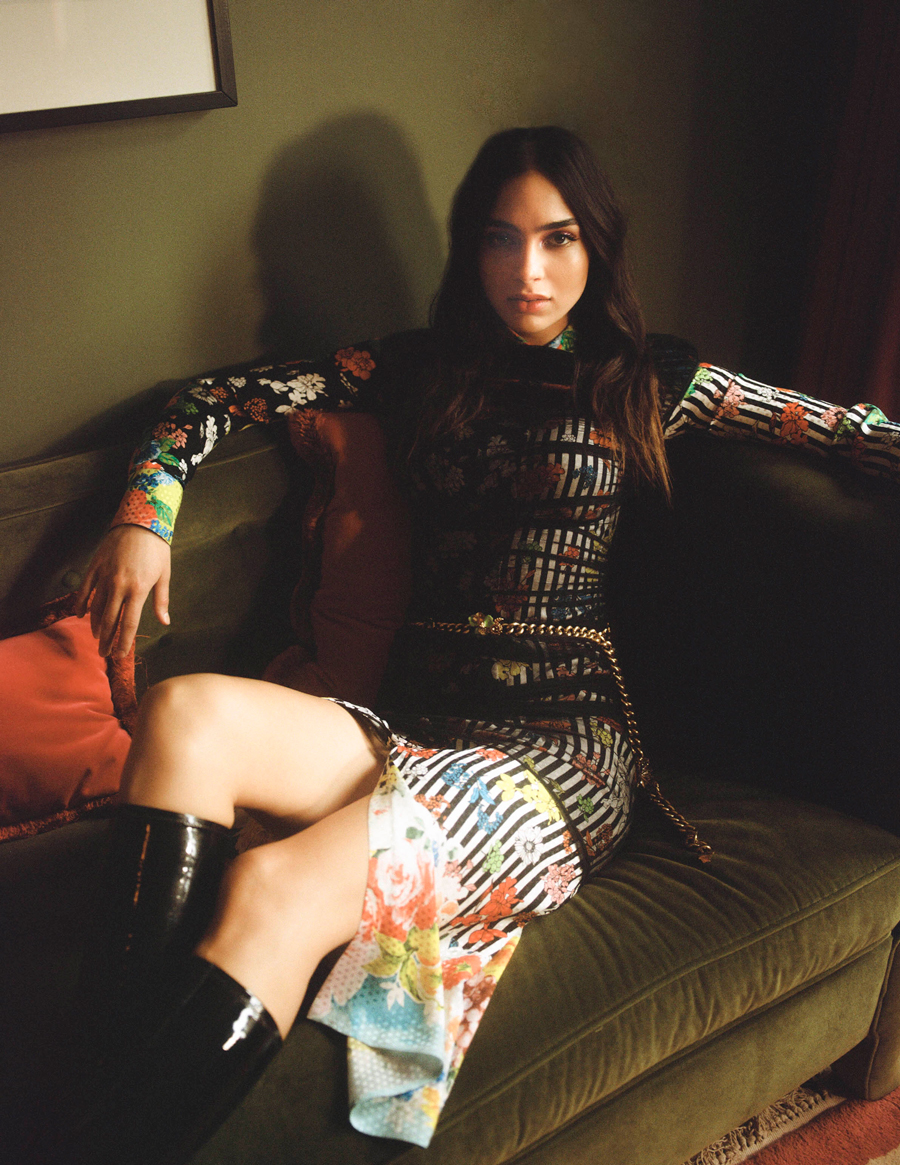
Dress, Belt and Boots by Versace
“It feels like so much more than an acting job,” Melissa Barrera says of her starring role on Starz’s hit series Vida. “I feel like it was a gift that I was given.” Barrera stars as Lyn Hernandez on the series which was recently renewed for a third season. “Barrera’s performance in particular blooms with searing clarity,” Vox wrote. The Hollywood Reporter called Barrera’s performance “absurdly funny.” The A.V. Club called the actress “a force to be reckoned with.”
“It’s important to see Latin stories out there and to see the dreams that our people have and how hard we work. There’s more to us than just the negative things you see in the media or what certain people want to say about Latinx people.” But it’s not just Barrera’s work on Vida. Whether her upcoming role in the film adaptation of the Broadway musical In the Heights, her time on popular telenovelas like Siempre Tuya Acapulco and Tanto Amor or in regional theater productions in her hometown of Monterrey, Mexico, much of the conversation with Barrera seems to circle back to her Mexican roots—and it’s no coincidence.
“I’m Mexican. I’m fully Mexican. I was born and raised in Mexico and now I happen to work in the United States. And I am proud to be a part of this Latinx wave of shows and films that are finally starting to get made and people that have never seen themselves represented on screen are finally getting to see themselves and I get to be a part of it. So I feel that it is important to wear my identity on my sleeve and be one of the faces of this movement and help people see themselves because a lot of people have felt erased in their stories or their stories are never told. I feel like it’s a responsibility of mine to be a voice for those people who have not had one for so long. And I want to.”
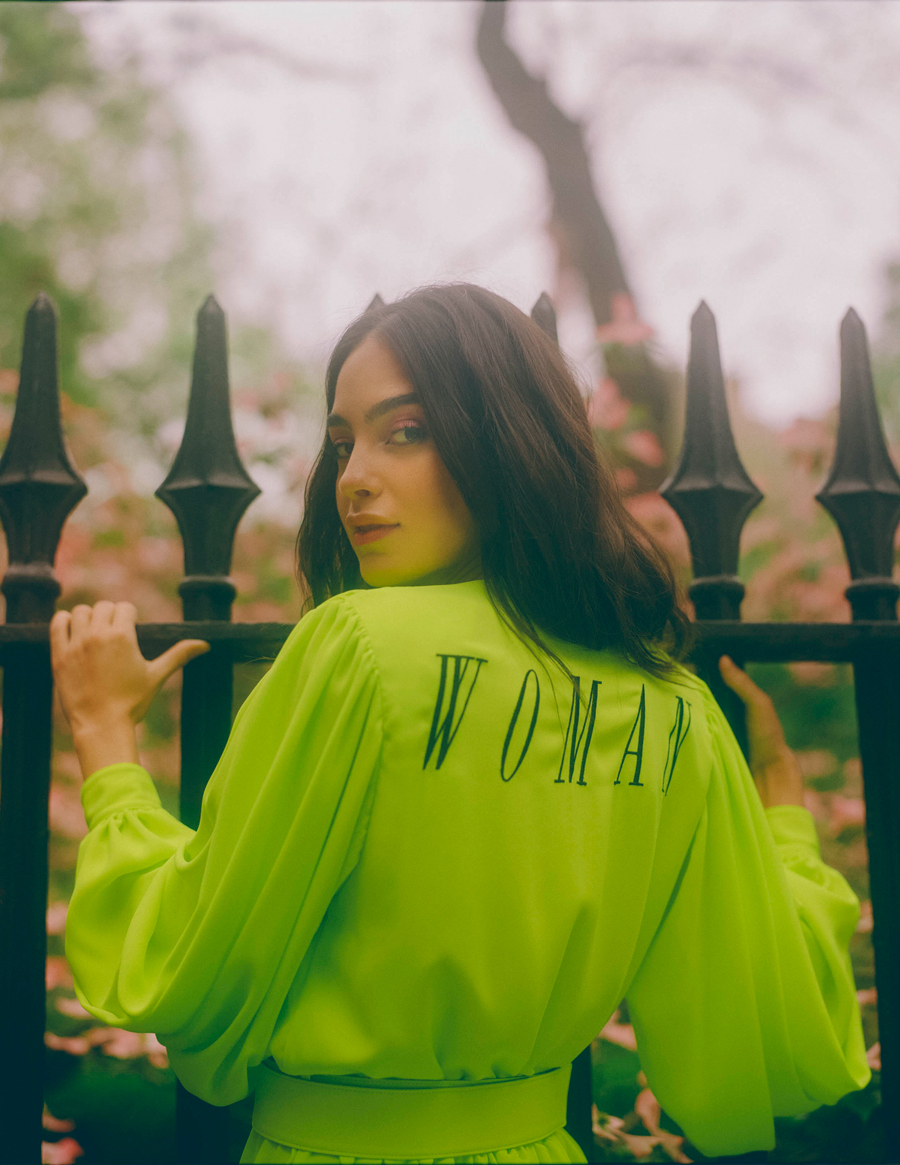
Dress by Off-White
It’s this passion that emanates from Barrera, who thinks long and hard before responding to questions, constantly aware of the possibilities and pitfalls of a first impression and desiring to represent both herself and her roots with pride. This, according to her friends that I spoke with, is the Melissa they’ve always known.
Though acting and singing seemed like the natural trajectory from an early age, Barrera did not limit her possibilities. “There was a point where I wanted to be a doctor,” she says, adding that architecture, interior design, even biomedical engineering were all career aspirations at various times. “I even at one point wanted to be a secret agent. I’ve wanted to be so many different things throughout my life. But that’s the thing about being an actor, you get to be everything.”
She started auditioning for local regional productions in high school and was quickly cast in a musical version of Romeo and Juliet in Monterrey. That was her first taste of the rigor of the theater: working six days a week, with two-shows a day often the norm. It didn’t dissuade her, only making her hungry for more. She furthered her education attending New York University to study theater. She left New York University’s prestigious CAP21 musical theater program two years in after making it into the top 20 on La Academia, a popular Mexican competition reality series that catapulted her star meter.
“That show definitely prepared me for the industry. It was a very difficult experience because it brought all my insecurities to the surface. It made me doubt if I had what it took to be in this business. It made me fight for it really hard. I’m very grateful I had that experience, even though sometimes I have PTSD about it. Whenever I have to sing in public I get stage fright and I never feel good enough because of all of the harsh judgments I had while I was on that show.” But she’s careful to stress the positives that came from it, like learning to fight for her dream. It’s also the place where she met her future husband, musician Paco Zazueta.
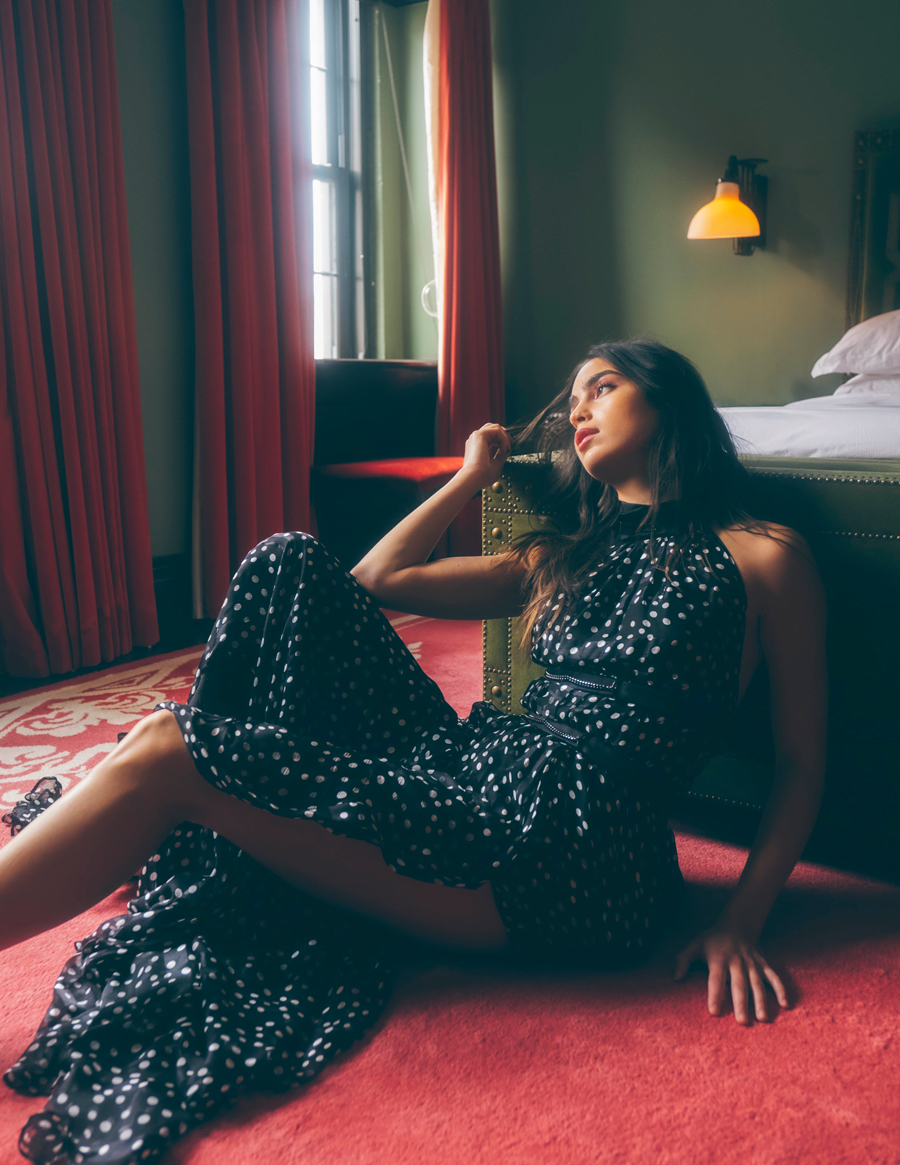
Dress by Georgine
That show proved a career springboard, landing her roles in a number of popular telenovelas. “I’ve always felt that telenovelas, especially in Mexico, are looked down upon as a genre….but I personally love them,” she says, describing the rigor of the production process as boot camp. “It’s literally shooting 30 scenes a day, one after the other, and it forces you to go through a crazy rollercoaster of emotions, more so than anything else I’ve ever done. I think because of that school of telenovela, it made everything that’s come after much easier for me.”
And thankfully, the “everything” that has come after has been plentiful, from Vida to a recently-announced contemporary reimagining of the opera Carmen opposite Fifty Shades of Grey star Jamie Dornan, to the upcoming In the Heights, a role Barrera has been eyeing for over a decade before she was cast. “I remember going to see it on Broadway at least ten times. I remember the first time that I saw it, what I felt, it was as though my heart was going to explode with pride and hope. All my dreams of being on Broadway after seeing that show just felt so much more tangible.” From there, she set out to be casted, attending open calls for the show, but never quite landing a spot…until now, nearly a dozen years after the show’s first bow on the Great White Way.
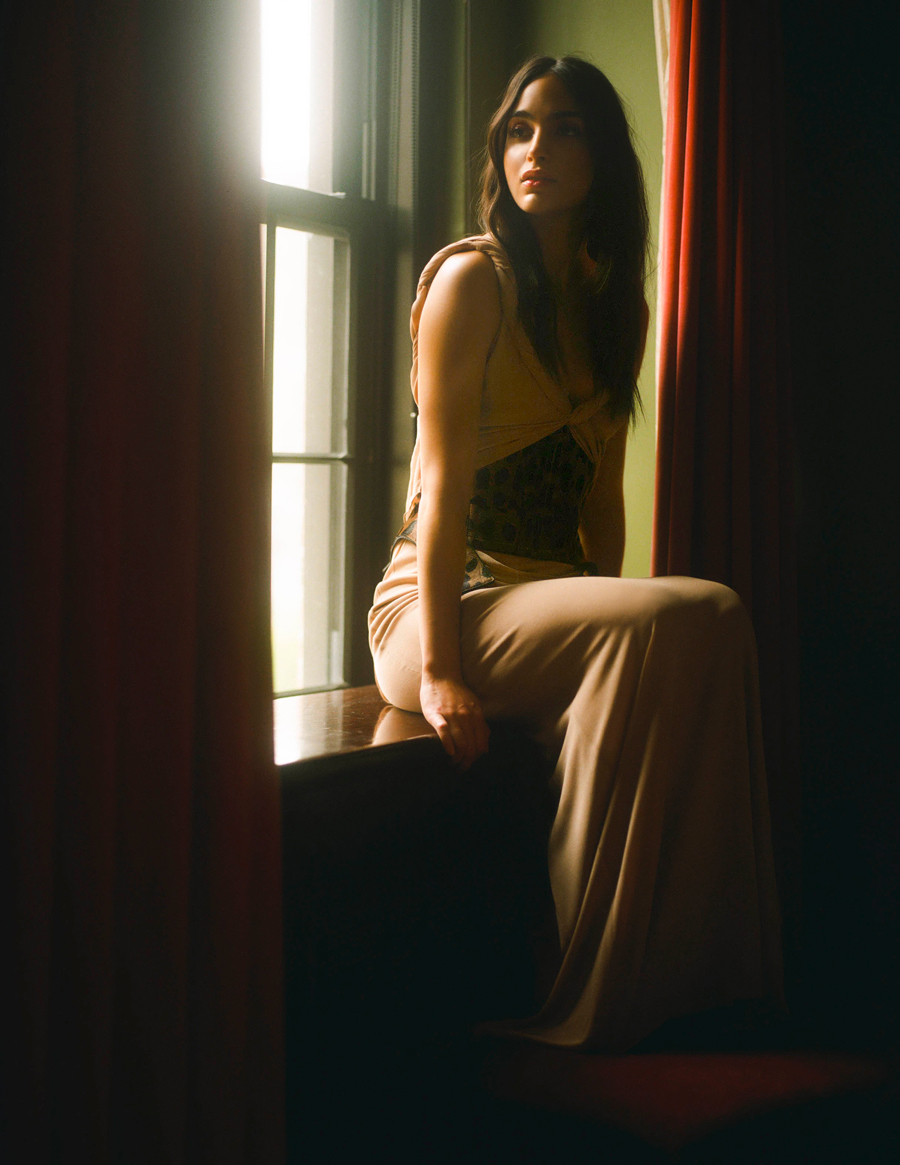
Dress by Tom Ford
“It’s going to be very different from the stage version,” she says of the movie, set for release next summer. “It’s been updated to reflect the situation of immigrants today, so it has appropriately been adapted to take place in 2020.” For Barrera, it’s about leveling out the audience with the content, noting the disparity between Latinx content consumption and shows casting Latinx actors, created by Latinx people and/or telling Latinx stories. To that end, Barrera says she hopes to begin producing her own work down the line. “Because [Vida creator] Tanya [Saracho] gave opportunities to people like me, I’m going to make sure that I follow in her footsteps.”
And with that, Barrera is back to set to shoot the final week of filming In The Heights. Though she’s not filming any scenes on this particular day, she says she just wants to be around it all, near the cast, watching the process unfold around her. Like much of the pride Barrera so often spoke about, it’s not necessarily about her, but about who she can be to and for those who come after her.
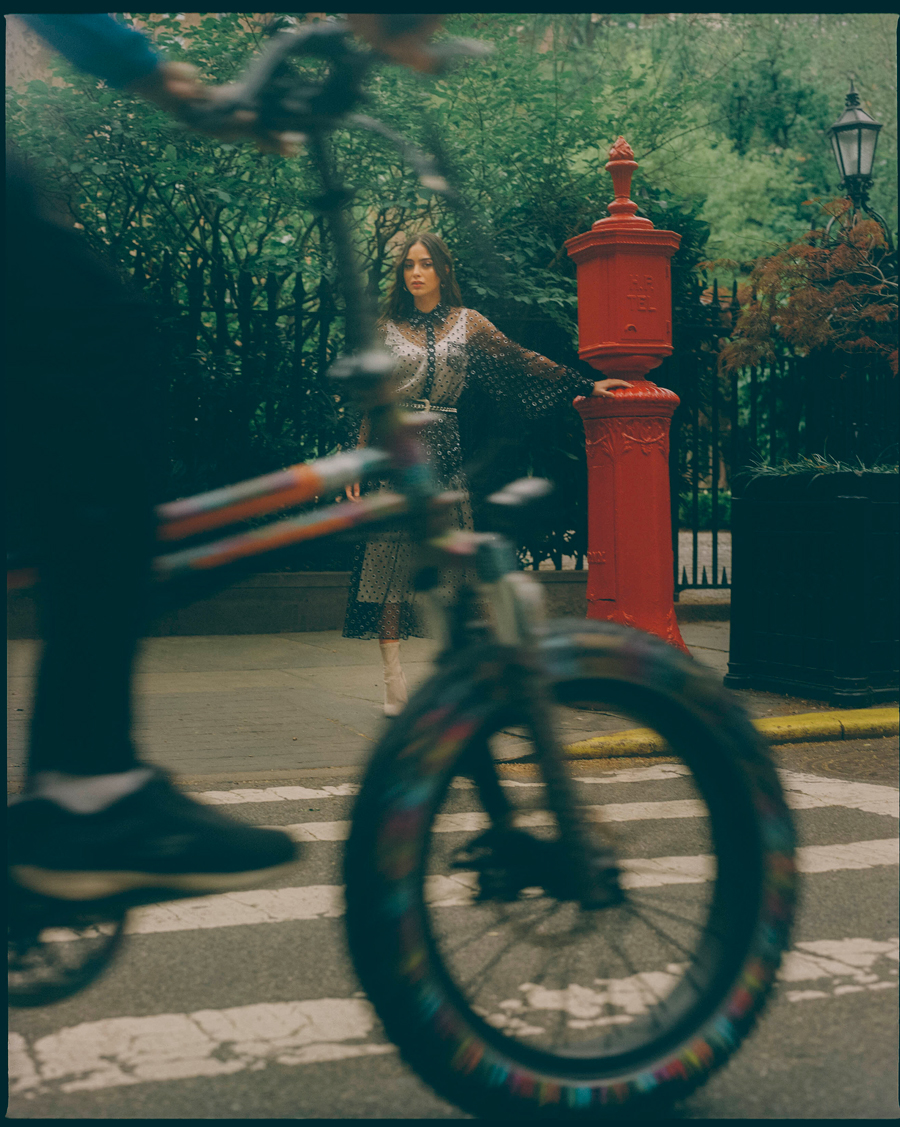
Dress by Victoria Hayes
Interview from Issue 12 of IRIS COVET BOOK available in stores and online by clicking —> HERE!
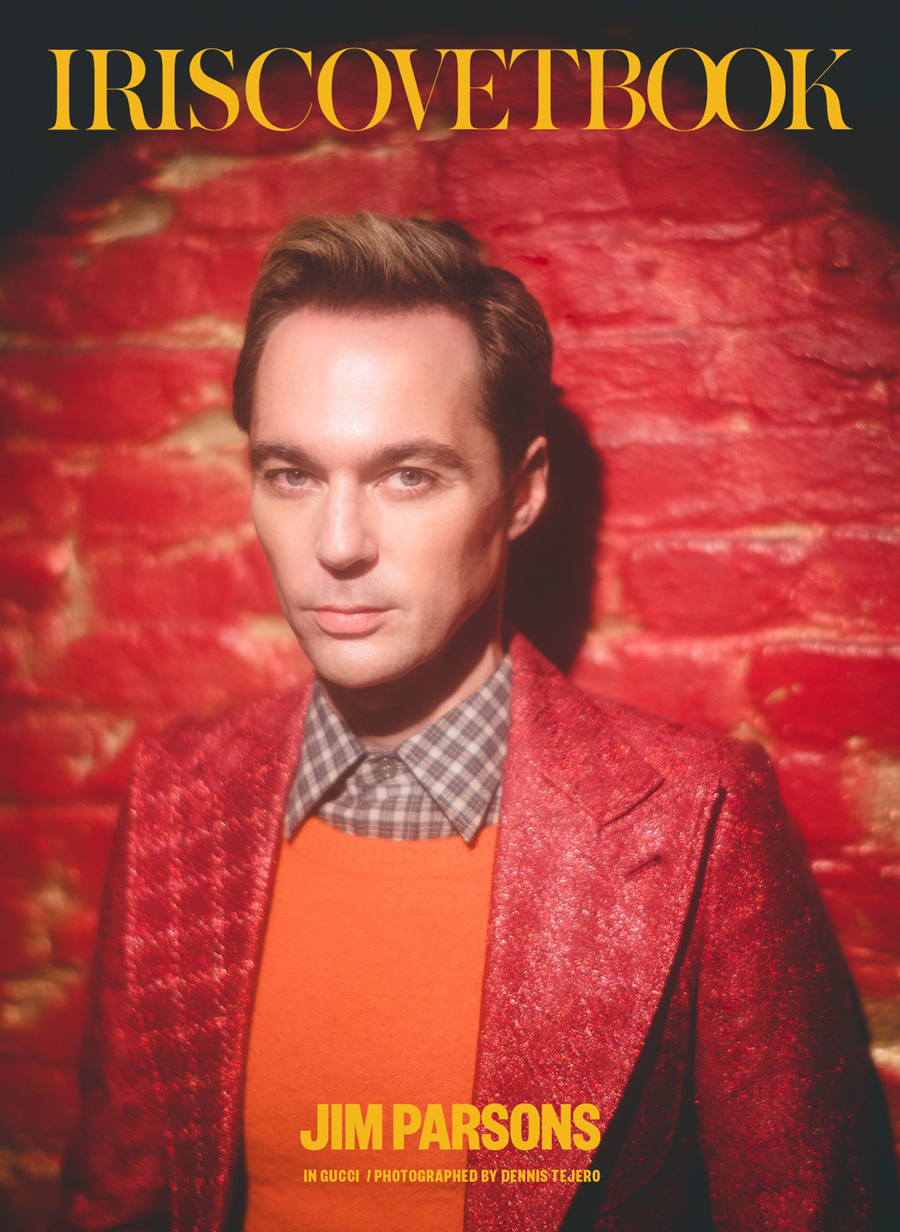
Photography: Dennis Tejero at ADB Agency
Fashion Editor/Interview: Marc Sifuentes
Grooming: Melissa Dezarate at The Wall Group
Production: Savvie
Photo Assistants: Ben Kasun, Jai Castillo
Location: The Stonewall Inn
A sharp tongue, quick wit, and great timing have often been the ingredients necessary to make a movie star, but the ability to spin those talents into a career of longevity and diversity are far rarer.
Born and raised in Houston, TX, Jim Parsons followed a winding path of community theater, small gigs, and part-time commercial acting until his break-out role as Sheldon on “The Big Bang Theory”. While many actors struggle to break free of such well-known characters, Parsons’ talent and industry acumen have helped produce a portfolio that includes a starring role and a Golden Globe nomination for his performance in Ryan Murphy’s “Hollywood”, an independent production company with his husband, Todd Spiewak, and numerous accolades for his role in Netflix’s The Boys in the Band.
In an interview with the multi-hyphenate, we got a look into the road map that turned Parsons into the well-known and well-accoladed actor and producer he is today. With us, Jim explores a perspective shift of a young man interested in community theater in Houston to an artist trying to make ends meet in New York, the untimely death of a father that inspired a new chapter in his career, and wrestling with his identity as a gay man in a world just starting to normalize his identity.
Parson’s outlook, unique in its optimism and trust in himself, is ultimately infectious and inspiring. From coping with personal tragedy to starting a new chapter in life, Jim Parsons has always tried “not to grasp the sand too hard and just let things happen,” and it seems to have worked so far.
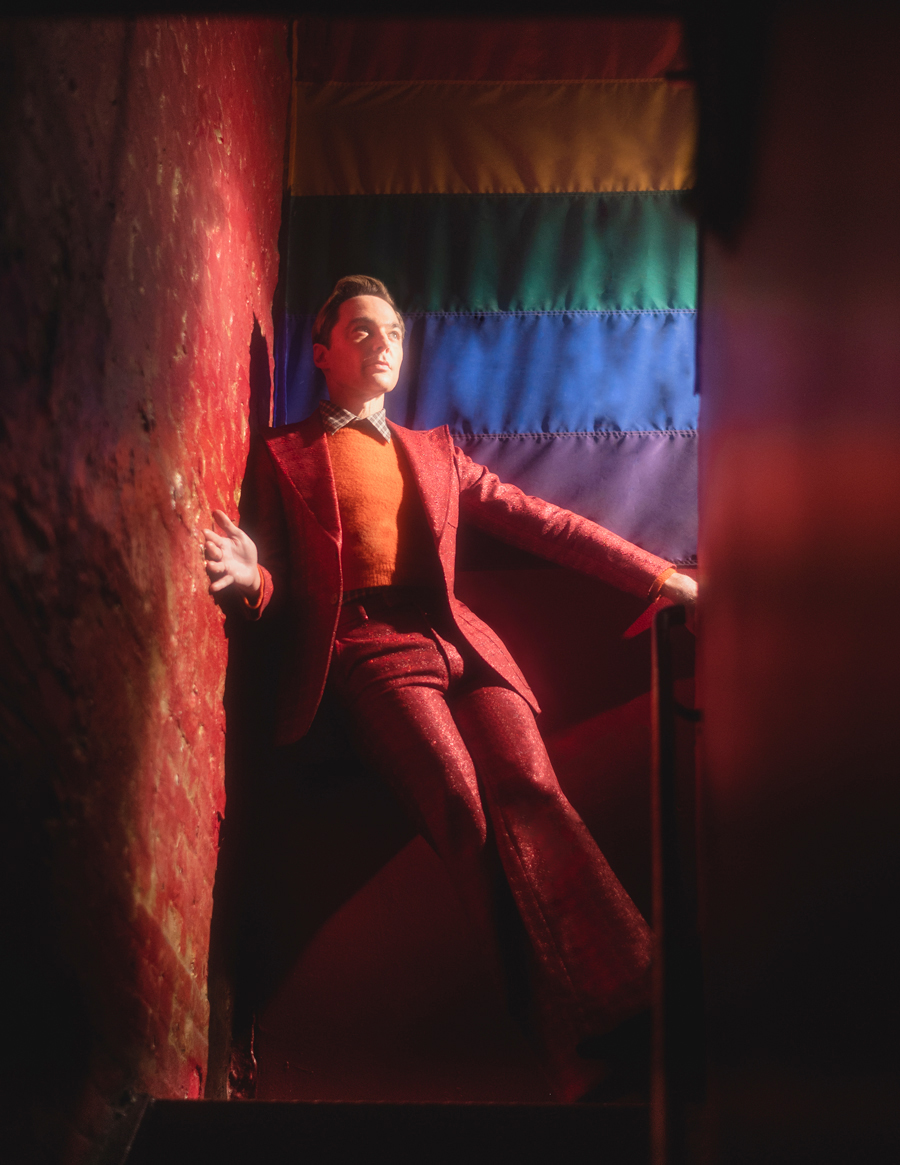
Suit, sweater and shirt by Gucci
When you were growing up in Houston and you became inspired to get into the world of the arts, was it always in the form of theatre that you were drawn to?
Yes, it was immediately. I knew that I wanted to be an actor. My mother had these children’s books “What Do You Want to be When You Grow Up?” type of books, and for years I would say I wanted to be a movie star. I don’t know what I meant by that, and I don’t know what triggered it. I know I was in a play in first grade which obviously made a big impact. But I don’t actually remember that being the turning point.
I will say that my love of theatre is just a fortunate act of circumstance. We had plays in our school, and I did them, but that was the only outlet I had for acting as a youngster growing up in Houston. It’s not like my parents were getting me into auditions for local movies or anything, we didn’t even know how to do such a thing.
Houston has an incredible art scene. But, growing up there, I wasn’t exposed to the arts until I was in high school. I worked as an usher when I was around sixteen for the big theatre spaces in downtown like Jones Hall, The Wortham or the Alley Theatre. So, I think it’s interesting to hear when you became aware of these outlets particularly the more underground ones, like the now-defunct independent theater company, Infernal Bridegroom Productions?
I honestly wasn’t very motivated during my junior and senior years before going into college. I didn’t know what I wanted to do or what I wanted to get into. I mean acting seemed very risky and luckily my parents were never discouraging to me, but they weren’t people who came from a situation where acting was even an option. Like they wouldn’t have pushed me in that direction either. So, my first year at the University of Houston I personally didn’t do theater, but I was around people who were doing it. And by the end of my first year, I felt very strongly that I needed to give it a shot. There was nothing else in my life going on. It’s kind of like when people always ask you if there is anything else you can do. I felt at that point in time there really wasn’t anything calling me. Everything else sounded like I was just settling.
What were you going to college for at the time?
I don’t know what it’s called anymore. Something in the communications department like radio and television. I guess I thought that maybe I would go into broadcast, like a weatherman or something. But looking back, it was naïve that I didn’t realize that you needed to major in journalism, or you needed to major in meteorology you know, and the on-camera stuff would be obviously secondary to that.
Infernal Bridegroom came from eventually being in theatre at the University of Houston I was brought to them by another classmate that was already involved. I had been doing some college shows and I was really having a great time, but I found the idea of doing things out of the scholastic environment, with a different group of people and surroundings, really exciting.
IRIS: Looking back now, what advice would you give to young actors that are just starting out. Do you think it still stands true today to say yes to everything? Which in your case, also meant working for free a lot of the times?
Yes, I do firmly believe that saying yes to as many things as you can is really the key. It’s easier said than done because the hard part is making sure you find the right people or situations that have opportunities to offer.
Just like any other job, there’s only so much you can teach, only so much you can theorize about. But when you’re acting on a stage with lights on you and people staring at you, there’s no substitute for getting used to that unless you are doing it. So much of it is about building confidence. That’s what it was about for me. And then, of course, if you want to make a career out of it, there does come a point in time where you have to decide I’m no longer working for free. I don’t remember ever saying I’m not going to work for free anymore that never happened for me. Hell, I’d still work for free depending on what the project was.
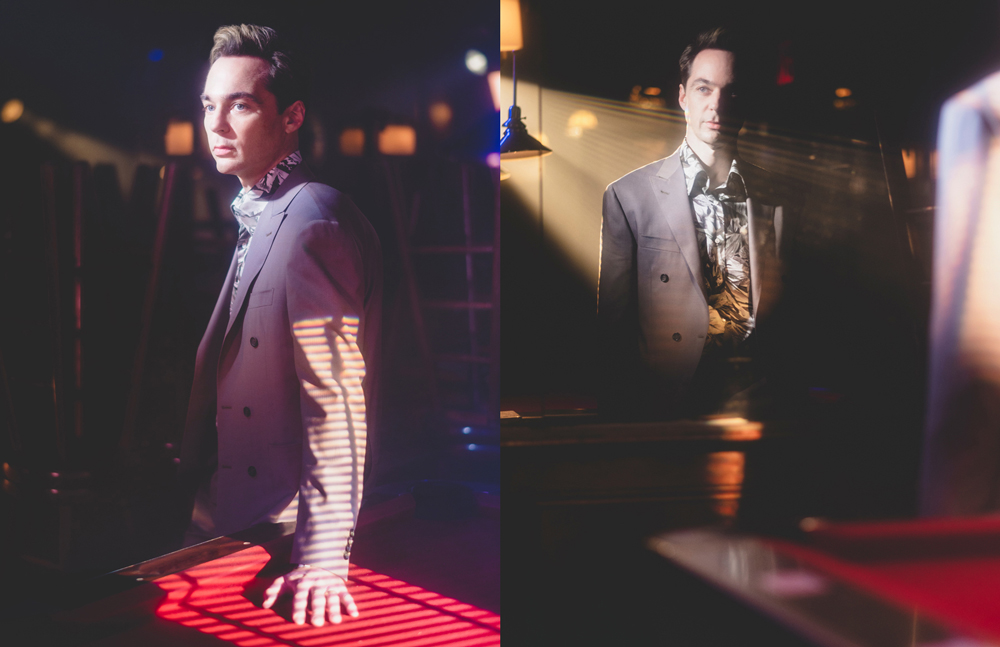
Suit and Shirt by Canali
IRIS: What was the main motivating factor that pushed you out of Houston and to New York?
I remember I was really getting to do a lot of work in Houston, and I was very happy with it in many ways, but there was a practical side of me that was like, “I don’t think I’m going to be able to do this,” since at the time there were so few people that were able to make a living off acting in Houston. So I kind of felt strongly that it was New York or LA.
I went to grad school and did a showcase in New York, and I knew a couple of people living here already. So a friend let me live with him, and it just kind of made sense. It’s funny going over any of this with you just how much scarier it sounds to me looking back than it did at the time. It felt like I didn’t really have much of a choice at the time. I felt this is just what I needed to do, this is what I am going to do. But looking back, I know all these things fell into place, all the fortunate things that happened or people I met. It’s now so easy to see the thread being pulled and things completely changing for me. So that’s the advice I would give a young actor – let your ignorance be your bliss and keep going.
IRIS: I read that you were doing some commercial work and then you ended up with a contract with CBS. So then would you say that your first big break was the “Big Bang Theory?”
Yes and no. It was definitely the big break in the obvious way of a lot of people seeing the show and being a consistent, well-paid acting job, but honestly it was the little things that came together. It was the commercials, the off-Broadway plays. They weren’t things that a lot of people were seeing, and they weren’t providing enough of a stable income, but I met great people. Again, it goes back to building the confidence. It felt like I was on the right journey and that was crucial for me. I think it’s so hard to wonder when or if anything is going to happen, and it is these little paths along the way that kind of give you a tiny little shove. They all add up. When I did get the audition for “Big Bang” I felt it was the appropriate time. I didn’t know if I was going to get it, but I didn’t feel like I was unworthy. I felt like, “I’m here and I’ve been working and I’m trying to get things going.” And so that’s what I would say about the big break. It was all the tiny little ones before that.
IRIS: I was thinking about being a lead in a successful show like Big Bang, which is in syndication and can be seen anywhere in the world on any given day. Did you ever feel you might want to break away from being Sheldon for fear of being typecast?
What I realize now, as far as typecasting goes, is if that if they want to typecast you, there’s really not a lot you can do to stop them. I was fortunate enough to find a few people who are interested in working with me on other things and taking a journey on projects outside my realm. That’s where I’ve been very fortunate, and I feel so very grateful.
I never would have wanted to stop playing Sheldon because of the association with him or the show, or for fear of being typecast. I knew it was the end of the line for me, not because I didn’t want to do it anymore, but because I felt it had run its course. And I don’t mean that in a bad way. I can’t imagine something I could list that I’m more grateful for than that entire experience. But twelve years was a long time for me to play a fairly intense character. He’s a big personality, you know? I was going to be 47 when those twelve years ended, and my dad had died when he was 52, and that just gave me a very unique perspective. I said to myself, “you know what? What if you’ve only got six years left to live?” And looking at it like that, there’s other things that I need to get done.
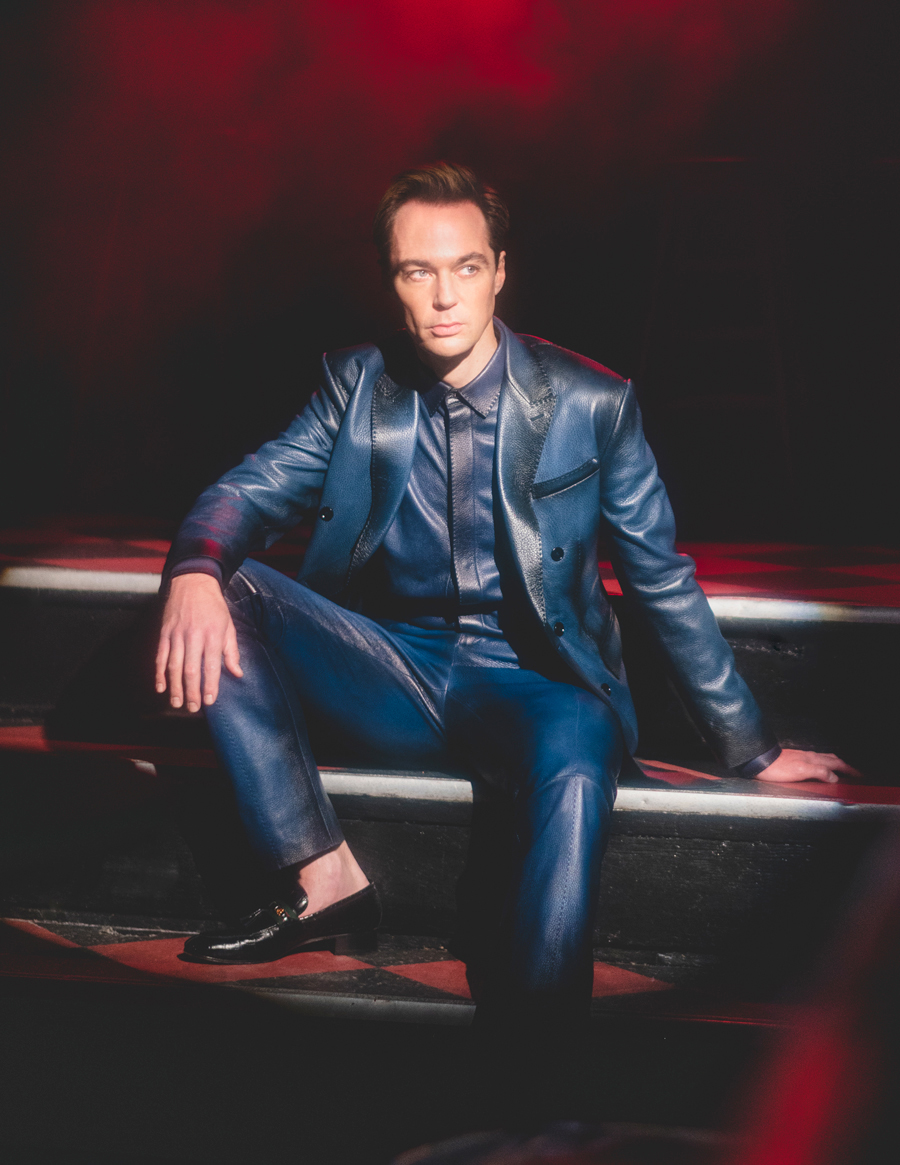
Suit and Shirt by Berluti, Shoes by Gucci
IRIS: Which brings us to your latest venture as the head of your own production company. It has already produced some pretty successful shows for Netflix, HBO and Fox. How did you start this new foray into producing?
I did not know if I wanted to do it at first. I did not know exactly what it meant to do it. I am still five years into this and still learning what it means to do it. But I did feel it was a real gift, and I wasn’t afraid of failing at it. I felt that no one was going to care if I succeeded at it or not, but if we have this opportunity we should take it. I use the word ‘we’ because my deal is very specifically both mine and my husband Todd’s. I would not have done it without him. I knew that for sure and if anything, I’ve only learned that to a greater and greater degree as this has gone on. Todd wasn’t in the business until he met me. He sees things much differently than I do. When we’re looking at something at the production company, I can see his brain work differently, receiving information about shows or scripts or whatever. He’s very good at dealing with all the different personalities involved, I’m really not, and that’s been one of the main reasons this has been a successful venture so far.
IRIS: Speaking of your husband Todd, I was watching an interview where you were talking about you two meeting on a blind date nearly nineteen years ago and I was curious, when did you know that he was the one? Was it love at first sight?
No, but I did know very soon. I won’t say that night only because I was always a little too stable for thoughts like that. He would argue with me on that one. I would say within a couple of weeks after the first blind date almost nineteen years ago, I knew that this was very much worth pursuing, and I knew that I thought he was very special. You know, we met November 15th, and by the end of December I had basically moved into his apartment. It was really the most romantic time of my whole life. I’ll never forget he took off a week from work for the holidays in December and I had never had so much fun as running around New York with him. I remember going to the coin cashing machine at the supermarket on New Year’s Eve, and he had two pillowcases full of loose change that we dumped into the machine, and that’s what we used to go out that night. I remember we got pizza and bought alcohol. I don’t know, everything was just through rose-colored glasses that’s for sure. We just had our 18th anniversary together.
We got married in 2018. But you know back in 2002 when we met, gay marriage was barely a thing. It wasn’t legal yet. It was a long evolutionary process for me to care about getting married, it really was. It took me a long time to realize that, not having seen examples of gay marriage, I had lived so much of my life without that dream. It was part of the reason it became important for me to do it. I really wanted our relationship to contribute to the visibility of gay marriage and help people have that dream too, if that’s what they want.
IRIS: I want to make sure we talk about “The Boys in The Band.” The Broadway production was such a big hit, I’m curious, what did you have to do mentally to creatively switch between the stage to the screen?
Before we were actually working on the movie, I was kind of overly anxious about it. I had such a profound summer working on that play. A huge part of it was just that I love playing that role, I loved getting to be in that play and I really loved getting to work with a group of all gay actors, director, writer and producer. I think it was just a gay extravaganza.
I always think of my first times, and I imagine a lot of gay people do depending on where you grew up and when you grew up, like the first few times you walk into a gay bar and you immediately feel like, “Oh, I don’t have to hide anything here.” Only when you feel that do you realize the depths to which you’ve been hiding certain things just to get along and to get by. I hope a lot of that has changed by now. I think that is why I was all the more surprised at how powerful working with all of these gay actors was. There’s a language spoken in shared experiences. So, I’m only telling this because all of that made me very anxious to work on the movie because it had been such a wonderful experience as a play, I was worried we might mar the production.
We were very fortunate that we only had to do a few days of rehearsal because we had all done the play not long ago. We all knew this stuff and it quickly became clear within a day that it was going to be great. It was thrilling. I felt myself relax more and more, knowing I can do these lines a million different ways and calibrate it or just completely change it. I would give them options.
On Broadway, the actors are utterly responsible for getting the story told and it does affect me. The number of risks I’m willing to take, the number of things I’m willing to try in the spur of the moment. It’s calibrated because I can’t risk the point not getting made. But with the movie I thought there is so much freedom to be explored here because the director and the editor have to put this shit together at the end. I can do eight completely different takes of a single scene and then they can pick and choose, and they will tell the story. But I can take some of that responsibility off my shoulders. I knew that we could all trust ourselves because we knew the story that had to be told.
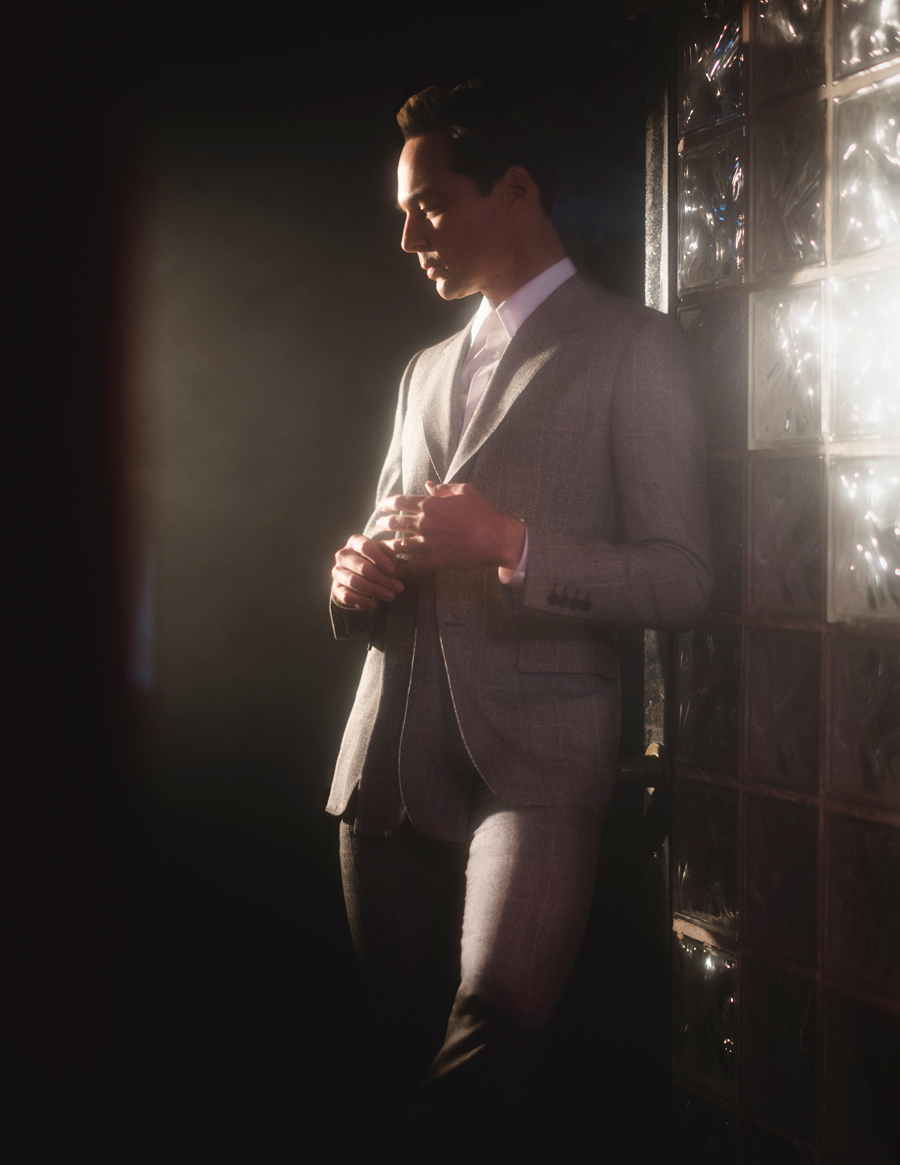
Suit and Shirt by Alexander McQueen
IRIS: I watched The Boys in the Band the day it came out on Netflix and still remember one of the final scenes where you’re about to walk out the door, talking about the loss of your father. It was such a strong scene. Did the memory of your father ever come into play during that scene?
Yes, I feel like my father affects all of my work in all ways. So, when it’s specific like it was there and it’s a character who also has lost their father then yes, I do think it is more obvious in my head. But I really do think about him everyday, and not in a sorrowful way. And not always even just celebratory either. I don’t know. I feel his presence, I firmly believe that. I always have, from the moment he was taken from us I felt that he was with us and always would be. I have never veered from that or doubted that. There can be a real gift to these tragedies if you’re able to appreciate your life more with these beings that are no longer.
IRIS: Do you think you get your dry sense of comedic timing from your mom or your dad.
My dad. No that’s not fair, I shouldn’t say that so quickly my mom would be insulted. She is very funny because she was a teacher. She was the talker; she was the more showman of the two of them. He was a quiet one. He had a very dry sense of humor. He had really good sense of timing. He knew when to throw in commentary, as it were. He knew when to throw in his one liner. I definitely didn’t appreciate it at the time. I mean some of it was dad humor, but it was being applied, I see now, very skillfully.
It’s interesting the older you get, especially when a parent is gone, you are able to see them as human and not the parental figure. I found it really frees me to get a clearer view of him which is another blessing of the tragedy.
IRIS: You did mention earlier you’re about to start a new movie.
Hopefully! Everything’s crazy now, as you can imagine, but a couple of years ago we had optioned a book called “Spoiler Alert: The Hero Dies: A Memoir of Love, Loss, and Other Four-Letter Words” by Michael Ausiello. I was on vacation when I read it. I don’t know if I really intended on crying so much during the vacation. And then Todd read it and reacted similarly to me, but he was the one to have the idea of optioning it for our production company and for me to star in the movie. I said I didn’t think that was a good idea. I thought it was a great book, but I wasn’t wanting to go through that heartbreaking experience. But the more I thought about it, I knew he was absolutely right; it is rare that I read anything that affects me at this level. So, we did option it, and it came out in the trades or whatever. We thew around director names, and one of the top dream names was Michael Showalter. We felt that he would be such a good fit for he clearly knows comedy and he clearly knows good entertainment. He has this grounded foundation of human connectivity. Anyway, the news came out that we had the option and, lo and behold, he contacted us. I couldn’t believe it came true!
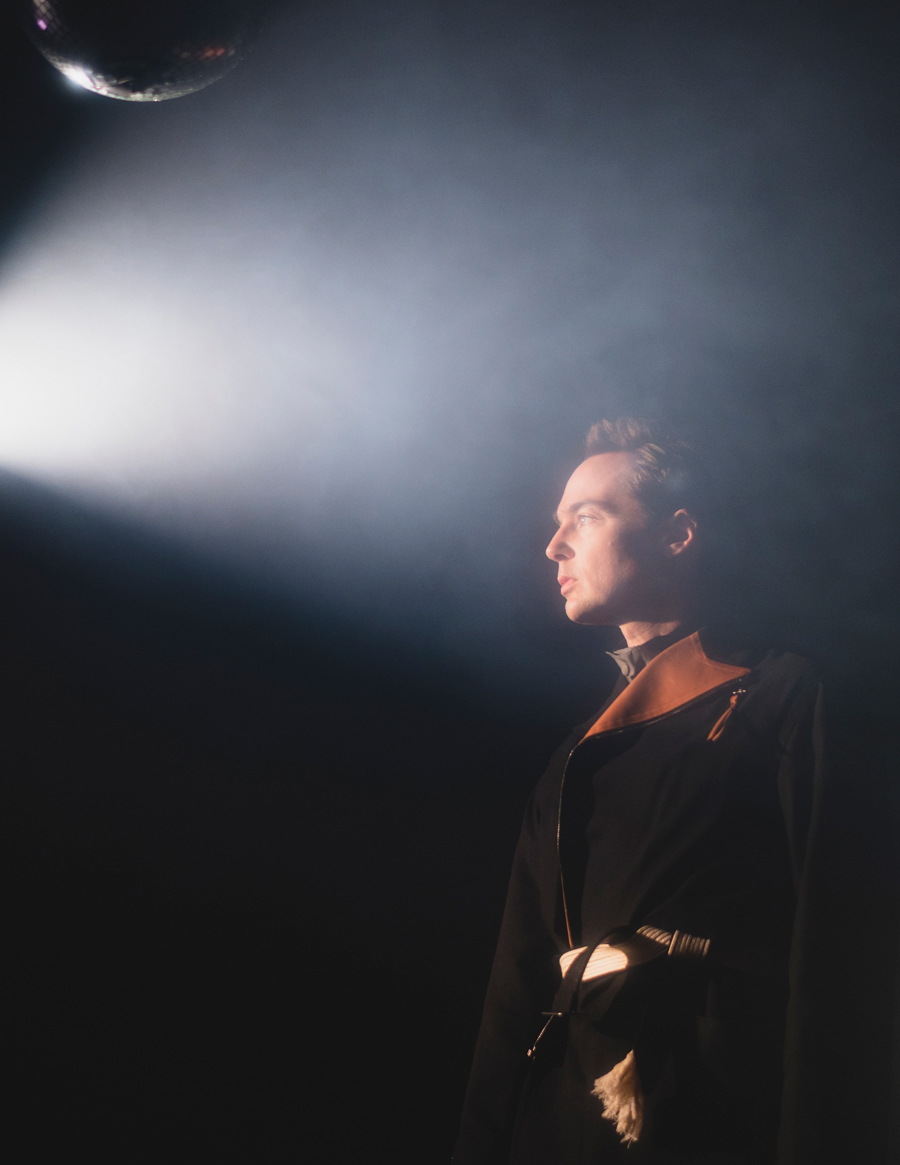
Jacket and Suit by Salvatore Ferragamo
IRIS: You have been lucky to have had a lot of great things fall into place it seems.
The universal system is always that fine balance between striving and letting go, and it can be hard when it’s important to you. I remember being in an acting class towards the end of graduate school, a class about auditioning, what it means, the practicalities. It wasn’t the most interesting acting class, but it was the most harrowing and stomach-turning class. I remember the teacher telling me the whole career of an actor is like trying to hold sand. If you squeeze too hard, you lose it. You lose a lot of it. It was such a good example and I always remember it because it bears repeating time and time again.
It’s true for love and dating too. You have to both try to not grasp the sand too hard and just let things happen. There is only so much you can do. Now why did you get me started on this?
IRIS: I’m going to start thinking of opportunities using that metaphor. See? You’re already helping me cope!
Well, that’s what I’m here for. I’m glad I can help the people!
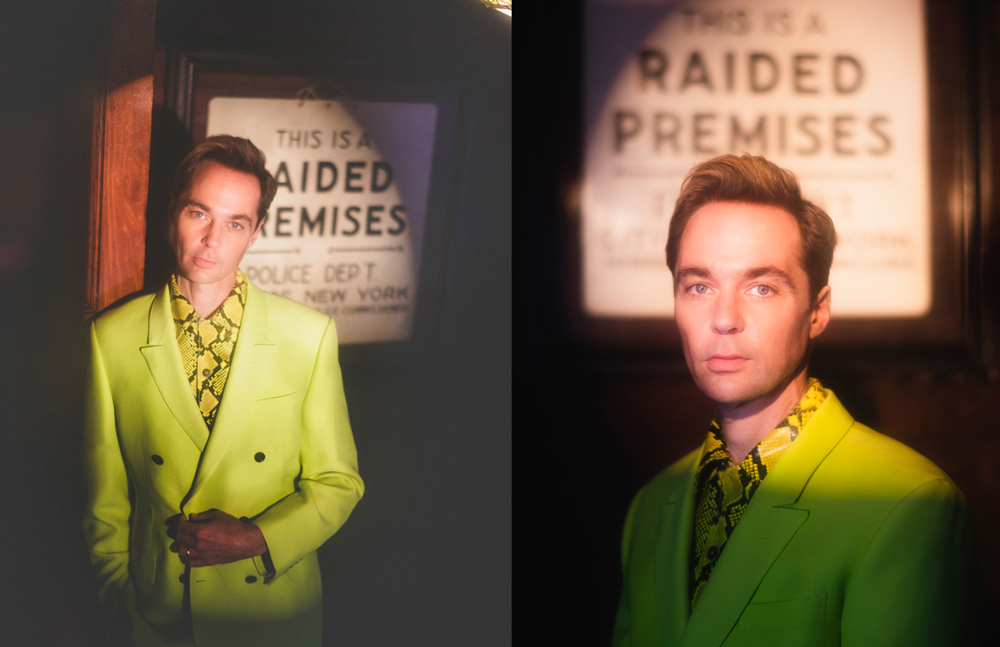
Suit and Shirt by Teddy VonRanson
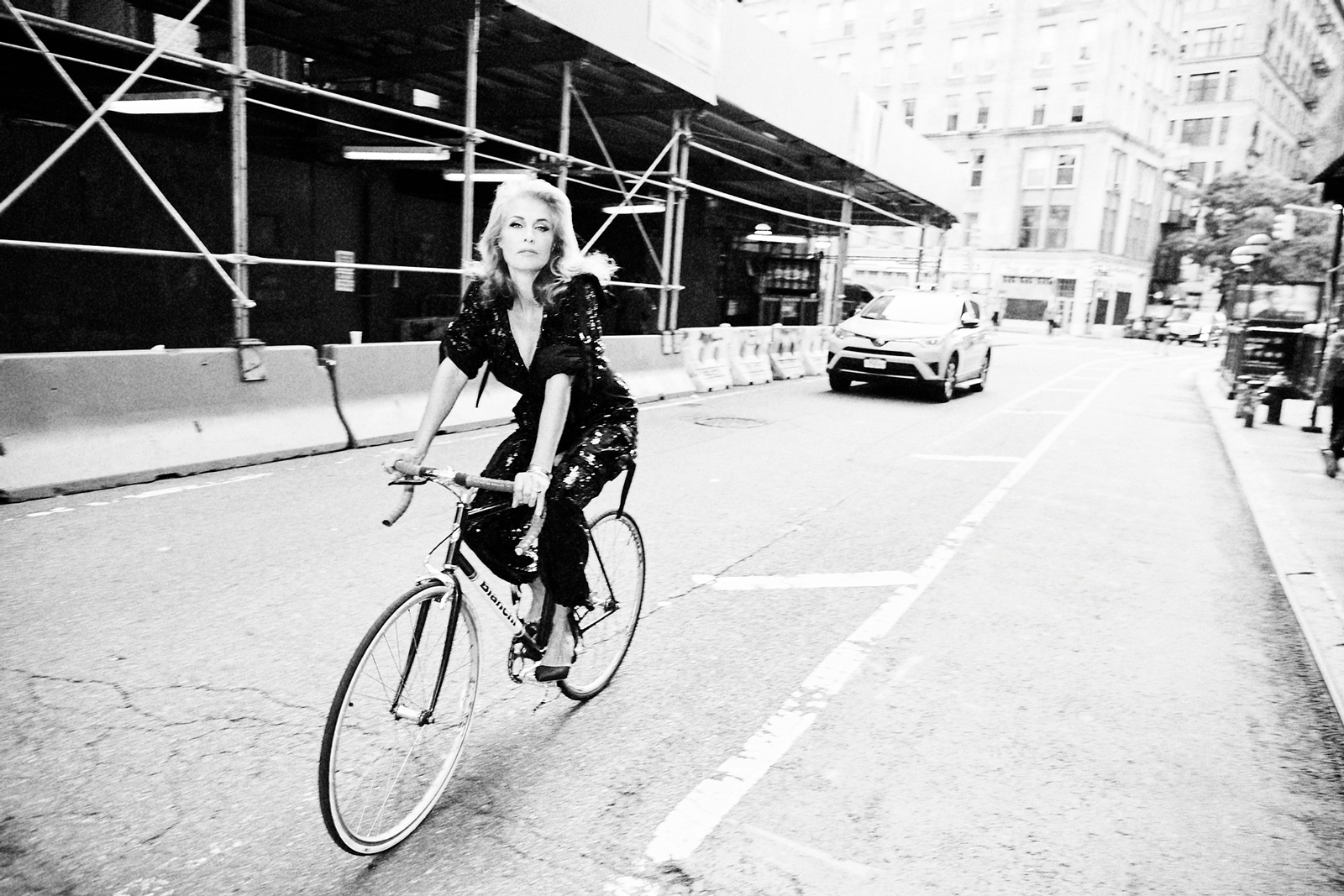
Frederique and The City
Frederique van der Wal by Ellen von Unwerth
Clothing by Georgine
Makeup by Romero Jennings
There is no denying that Ellen von Unwerth and Frederique van der Wal are legends in the fashion world. Between the photographer and Supermodel, there is a prolific collection of coffee-table compendium worthy images that, through the years, have inspired a generation of photography enthusiast and fashion fanatics alike.
The universe brought the two fashion juggernauts together when they discovered they lived in the same New York City apartment building. Together, with fashion designer Georgine Ratelband the two icons have created images in Ellen von Unwerth’s unmistakable aesthetic of “sex, fun and rock & roll.” Iris Covet Book documented the chat between Ellen, Frederique and Georgine on how this shoot came together, staying creative during lockdown and their plans for 2021.
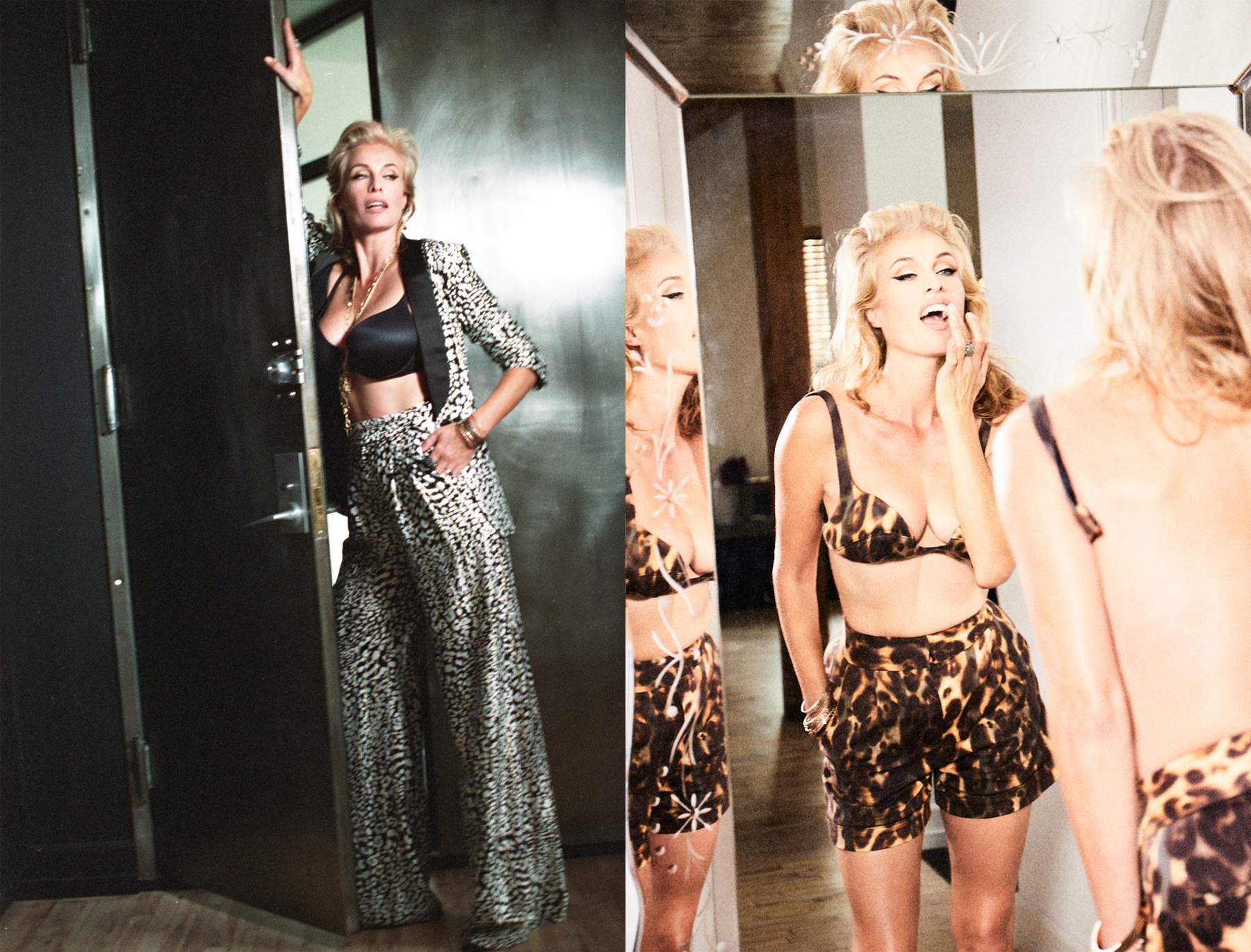
IRIS: Hi ladies, can you give us a little background on how you and Ellen met and how long you have known each other.
ELLEN: Ok yes, we know each other because we live on the same floor in the same building in New York and we run into each other often. You know, we’ve always said let’s shoot together but never found the right time. But this one morning I came home and saw Frederique with a totally new look. Her hair was totally blonde and you know how I love a blonde! I said “Oh my God this is the moment. We have to shoot!”. So, I called Georgine and I asked her if she wanted to join and Georgine offered us pieces from her collection.
FREDERIQUE: I’ve always adored Ellen’s work and strangely enough we had never yet worked together. Somehow it hadn’t happened until both of us, this past September were stuck in New York City.
Then it all came together…this sexy rock and roll Ellen element mixed with the city and the roof. It was very inspiring. For me sometimes, you have these moments when you really get your adrenaline going and that’s how the shoot felt for me. It felt great! It was a day where the playfulness was there, the fun, the sexiness, the rock and roll. It was so Ellen and then the fantastic clothes by Georgine.
GEORGINE: It was very spontaneous And it came together very effortlessly which I enjoyed very much! I think Ellen called me two days before the shoot, I pulled a variety of looks for Frederique that I thought would suit her and we were ready to rock & roll!
ELLEN: Yes, but also you look incredible in the pictures! It’s one thing to see you coming in and out of our building every day but when you see the pictures, you’re like “Wow! There’s Frederique the supermodel!”. I was really blown away when I saw the pictures. Also, it’s very intimate because it’s in my apartment and our roof. A small home production with friends.
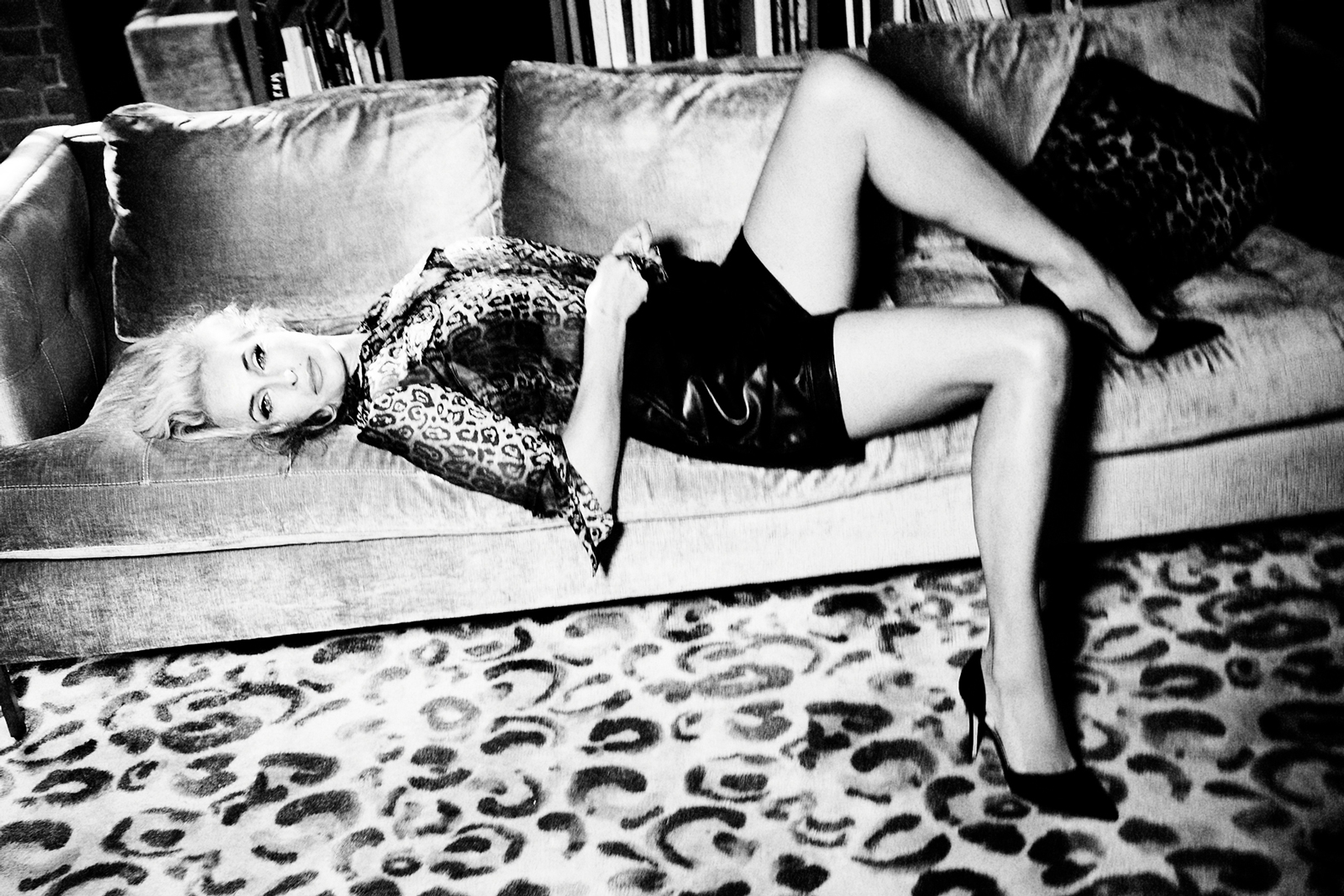
IRIS: Frederique, I was reading about a new venture that you have called lifecycles. Is that a project of yours that we can look forward to later this year?
FREDERIQUE: Yes, I created a series with newswire.fm where I visit friends and or celebs from different industries. I’m always riding around on my bike and I talk about life in New York and what keeps them there and we discuss their ups and downs and inspirations. We did our first seven and we featured a bunch of people from different artistic backgrounds. As in fantastic singer Marieme Diop, actor/director Griffin Dunne, designers Badgley Mischka, architect Winka Dubbeldam who did both Ellen and my apartment. An amazing mix of people and it’s coming out this year. It was really fun and it’s a good thing to show the love we all have for New York City. It’s funny, I’m not a Native New Yorker but I do feel like I’m a Dutch-New Yorker.
Whatever happens, the city breathes a sort of inspiration. It’s the mix of people, the wild experiences which can happen in the city at any moment. It just makes it such a special place. I think New York has such a heartbeat. It keeps you coming back to it.
ELLEN: Each time I’m coming from the airport and I see the skyline I just think “Wow, I’m coming home.” You know? I really feel like this is my city. It is so special because even when I’m in Paris, Berlin and all these other beautiful cities, it’s still not like being in New York. Of course, it’s a sad time at the moment, but I love how quickly and creatively they built up all the outdoor seating restaurants. Some of them with really nice decorations and music. It’s nice to see how New York always overcomes challenges.
FREDERIQUE: And also, that resilience of a New Yorker. It’s interesting to see it from a European perspective. For example, the Dutch if you would say to people you have to take another job or you have to come up with an idea to have a different approach to what you’ve been doing, it’s harder for them. But here in New York people are like “Yes let’s go for it! Come on let’s do it!” And I love that.
GEORGINE: New Yorkers are so strong and also very flexible and easy to adapt to a new situation.
ELLEN: It’s also kind of a survival mode of being a New Yorker. You don’t have the luxury to wait things out, you have to be creative to make it there.
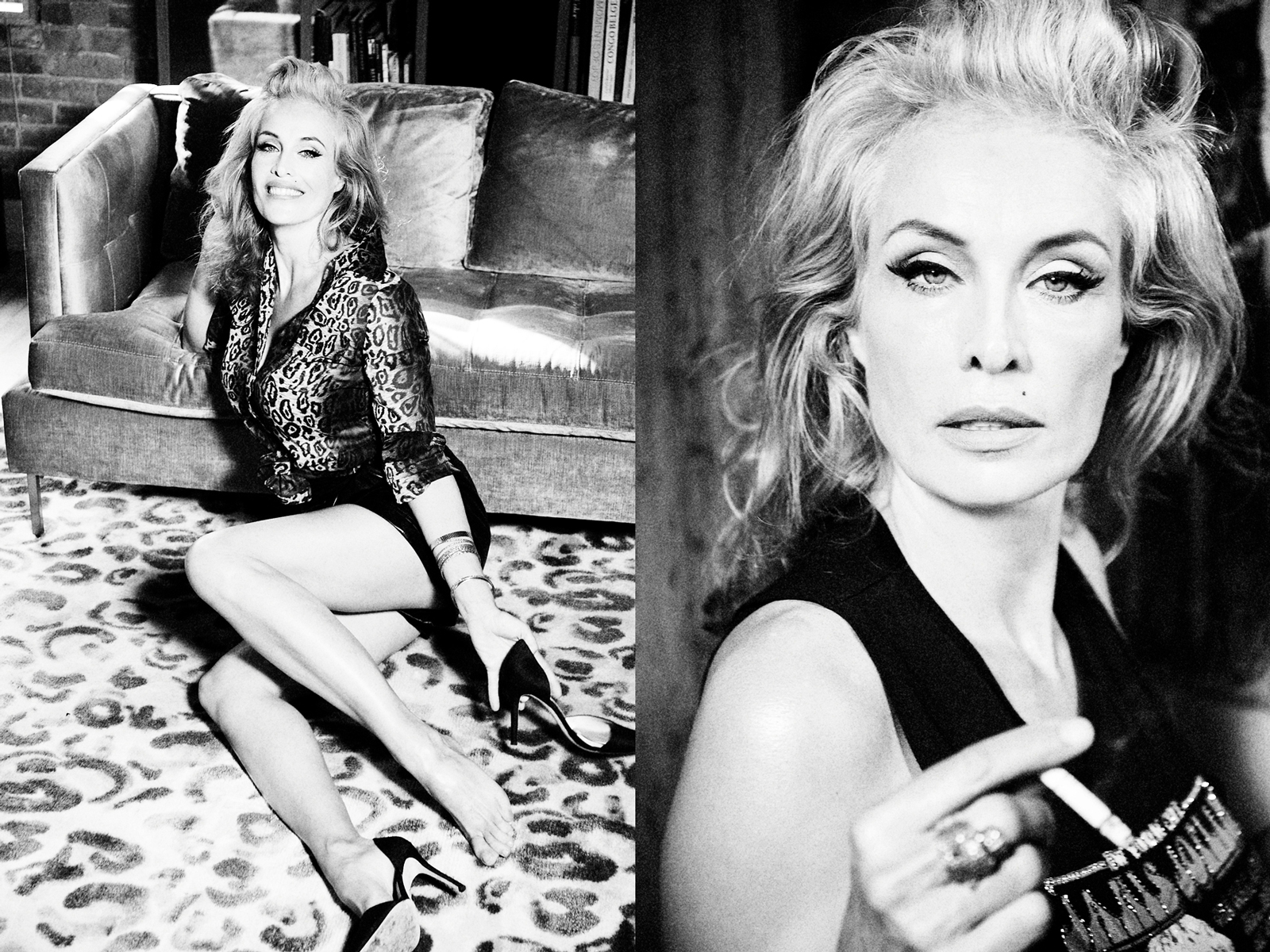
IRIS: What are some things you have been doing during the lockdown to stay creative?
ELLEN: I still have been working but of course much less than normal. Productions have slowly started again with many precautions with testing and mask and everything. You never know how the virus reacts so it’s always stressful after a shoot to not know if you might have it or how your body might react to it. I also did some facetime shoots. Like facetiming a shoot in Paris and another in LA. So, I guess we have found new ways of being creative which is the good side of things I suppose.
It can be kind of fun because you feel very voyeuristic since you’re practically in somebody’s apartment.
And then I’m like “Oh, I want to see what is over there… ok you could just sit over there you know and pose like this.” It does feel weird. I would much rather be with somebody in person of course.
FREDERIQUE: I think that the future will be more about coming together. I think we will see more value in what we are doing because of this time of reflection. And be a little bit more focused on what we really want to do. And I think when you do that, as in organizing this shoot and being surrounded with people you like, it creates something great.
ELLEN: I don’t always photograph the people I love for jobs, but I think we can definitely focus more on what we want to say through our work. Now that we see that time is precious and we can’t waste it, I think it’s more important than ever.
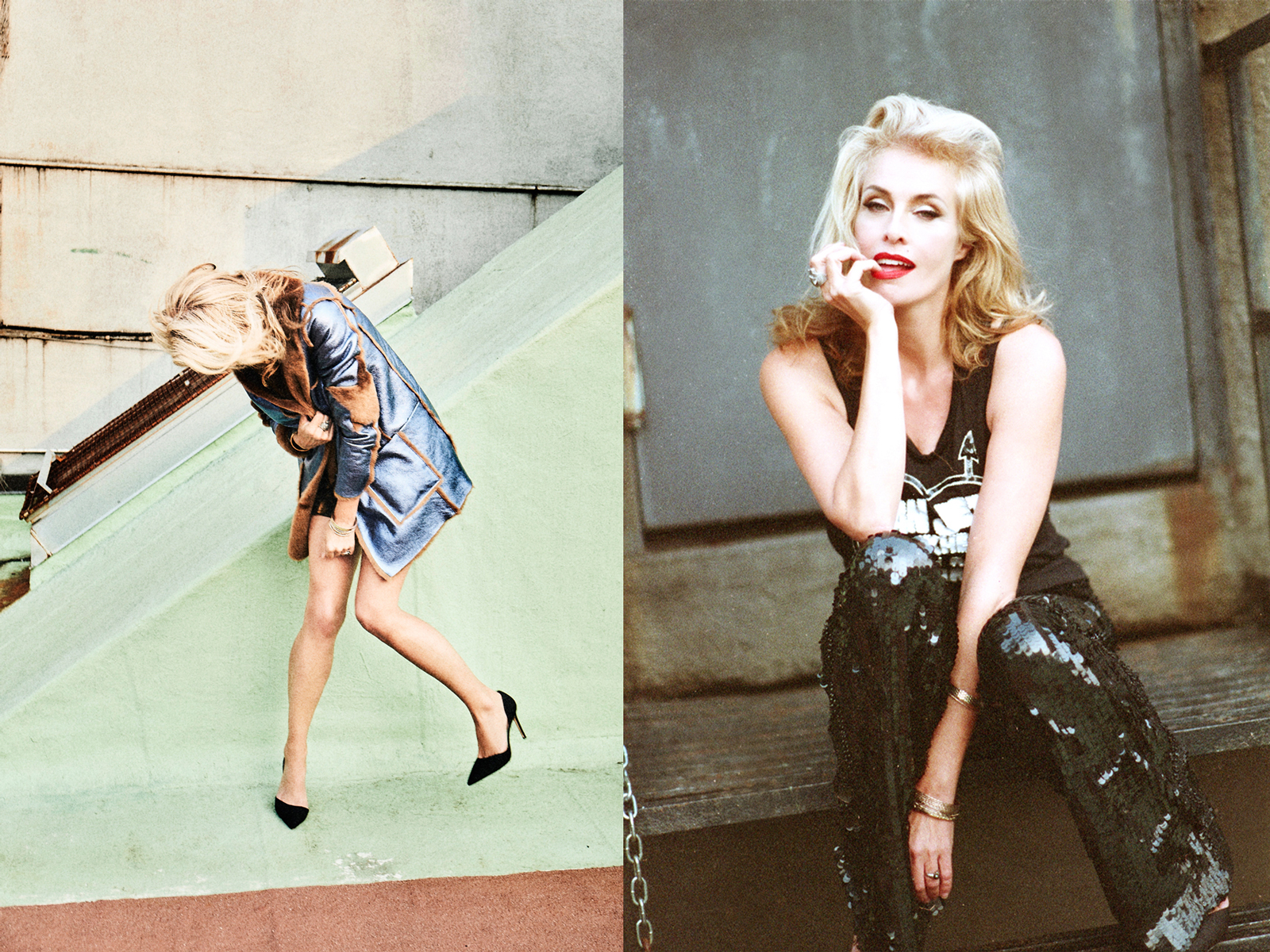
IRIS: One of the things that you talked about is reflection. Since we all had much more time for personal reflection, was there anything that you learned about yourself this past year?
FREDERIQUE: Well, I was quite lucky that I could escape to upstate New York where I have a farm. We were able to go back and forth from there and back to the city. It was so nice to be in nature, how healing that was actually. And I realized how much I loved the time I spent in nature and in the garden. Planting and gardening with all this free time felt new to me and it was different to have this solitude with just a few people at my house. Of course, I miss going out and I’m dying to go dancing and to go to all the fun events, but it was interesting to realize how much I actually love being more in nature and working with my hands. So, I ended up creating gardens, planting vegetable, and painting. I loved it.
GEORGINE: We got back from Paris Fashion Week and doing a last minute trunk show in Texas and enjoyed the time off. We are always on the run between places and running around so it was great to have a moment to relax. Catched up on a lot of tv shows and re-watched some classic movies and of course did a lot of cooking.But after a couple of weeks I felt very restless and needed a project. We have always wanted to renovate our showroom and give it new light. This seemed the perfect time for it. If not now, then when? We started with the kitchen area, and before I knew it, we reimagined our entire space and were living in a construction zone for the next 8 months!
ELLEN: And we went to our country home and we always go there for winters. We have a huge cherry tree in the garden and we actually got to see it blooming this summer and it was so amazing. It was a good time to really appreciate it. We also did some vegetable gardening. I also just photographed everything in sight from rain drops on the leaves, to the bees, to my neighbor’s horses. And I really feel like I experienced nature in a very intense way.
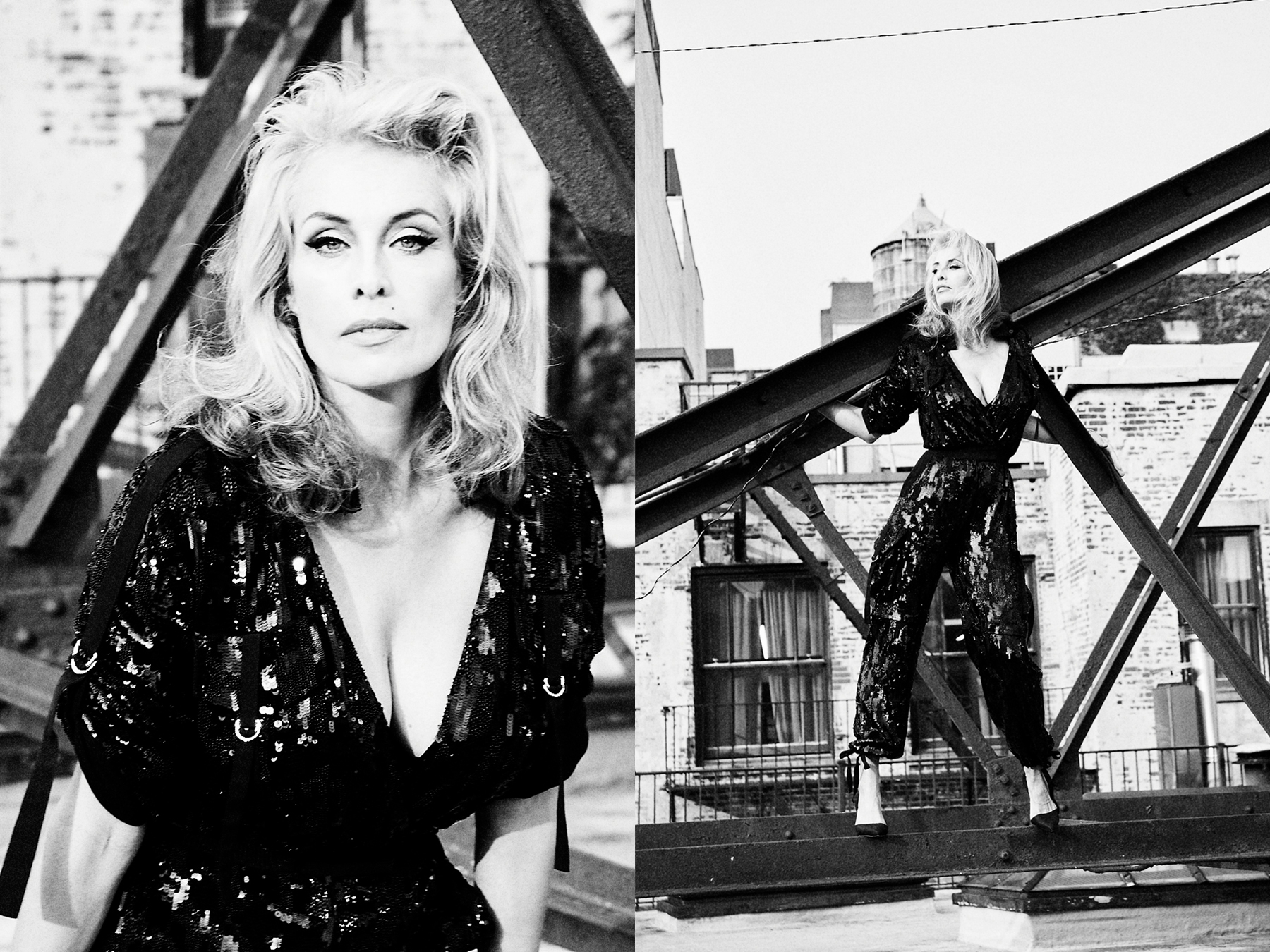
IRIS: What new projects should we expect from you this year? Frederique let’s start with you.
FREDERIQUE: Yes, there’s a couple of shoots that I did. I did a story for Vogue Living on my place in upstate New York and I’m actually working on a television program. It’s a bit futuristic where we will use virtual reality. We will follow how certain products come to us. In 2D and also in 3D. For example, the artists from Studio Drift, they create amazing light art and we follow their journey through their creative process. I’ve also decided that I should write a book. It came to me while I did a ‘journey’. I will see once I start writing if it indeed moves me and if it’s something I would like to see to completion and published.
IRIS: Georgine?
GEORGINE: Actually, as I’m talking to you guys, I’m sketching some proposals for the First Lady. It’s very exciting! After redoing our space I’ve ventured into interior design besides designing collections because many of our clients that have come over to our space since we did the renovation were so enamored by the space that they asked me to help them redo their homes! I’m also working on a new spring line and trying to improve my italian by taking classes via zoom.
IRIS: And then Ellen what about your plans for 2021?
ELLEN: I am planning to do another photography book because people are still so fascinated with the time of the supermodels and I lived that time you know? I shot with Naomi when she was 16, I discovered Claudia and Eva and I have so many pictures. So, I think it’s actually a good time to pull them all out. The glamourous fashion from the nineties in a book will be my next project. I also got asked to do a very exciting project which is to create a cabaret burlesque show in Los Angeles in a very special venue. It’s not really what I do but why not? I want to try different things, so why not? It’s good to go in a bit of a different direction sometimes. Everyone is going to be so ready to go out, so I’m super excited about it.
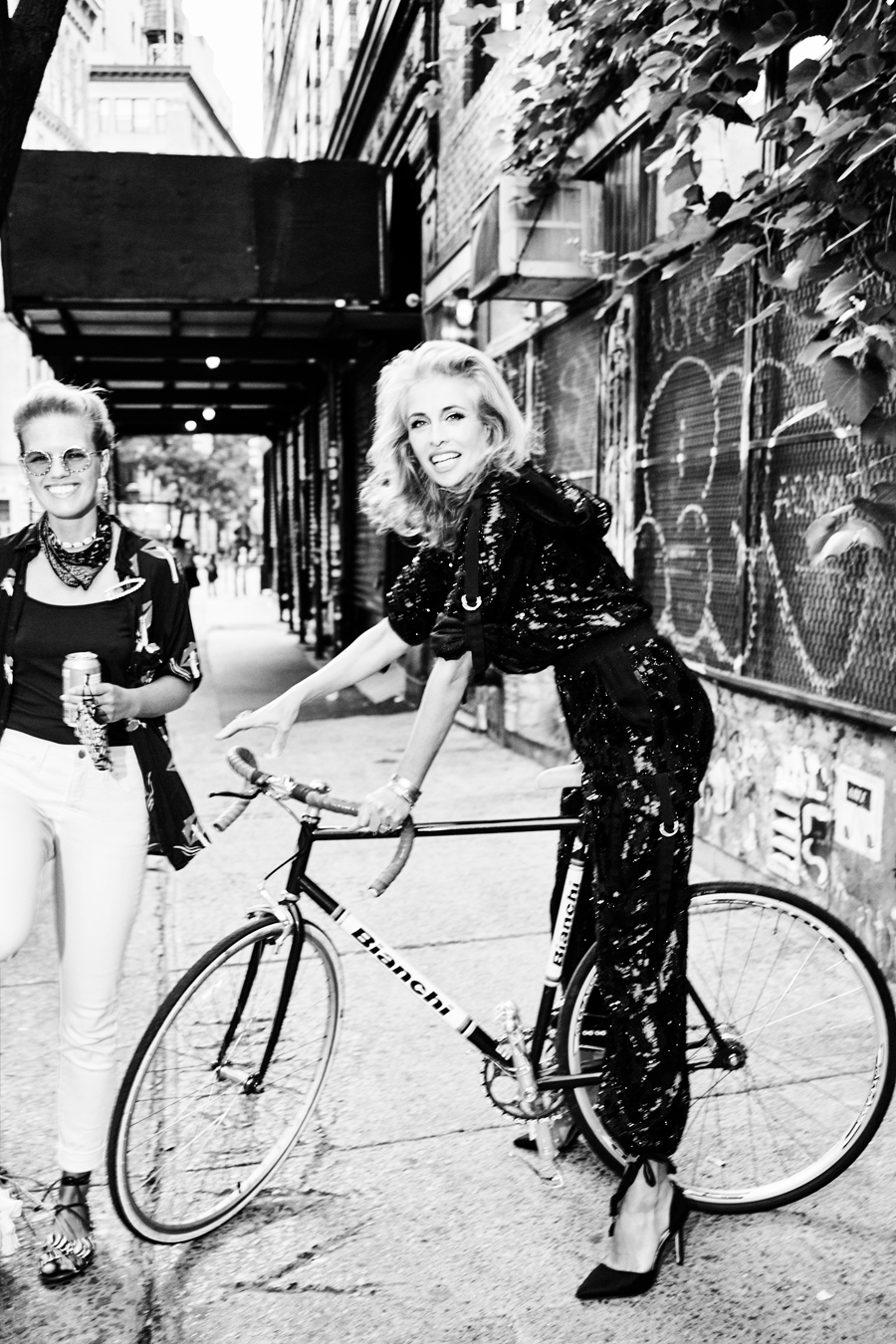
Frederique with designer Georgine
Photography: Ellen von Unwerth @ellenvonunwerth
Model: Frederique van der Wal @frederiquevdwal
Makeup: Romero Jennings @romerojennings
Clothing: Georgine @georginestudio
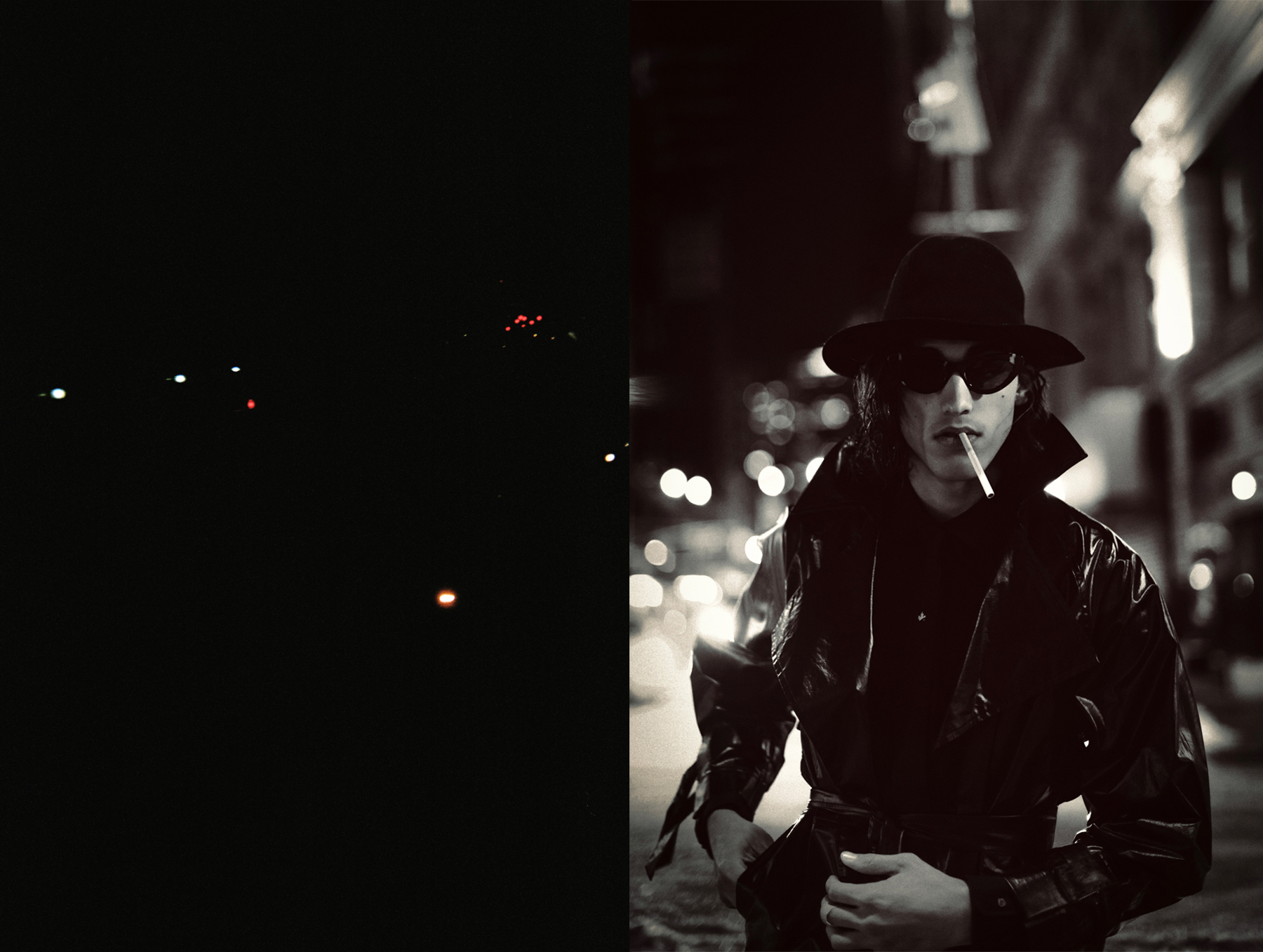
Trench, Shirt, Tie, Hat by SAINT LAURENT, Sunglasses by MIU MIU
24 Hours in New York
Photo – Gabe Araujo @gabearaujo
Style – John Moore @johnmoorestyles
Hair – Mark Alan @mark.alan.hair
Skin – Anahita Roshna
Model – Luca Luci @luca_the_dude @dnamodels

Jacket – FAITH CONNEXION, Cap – HERMES

Shirt & Pant – LOUIS VUITTON

Jacket, hat, sweater (worn as scarf) – COMME DES GARÇONS HOMME, Shirt – RICK OWENS

Shirt, Tee & Pant – ALEXANDER MCQUEEN

Shirt & Sweater – GUCCI, Sunglasses – DUNHILL
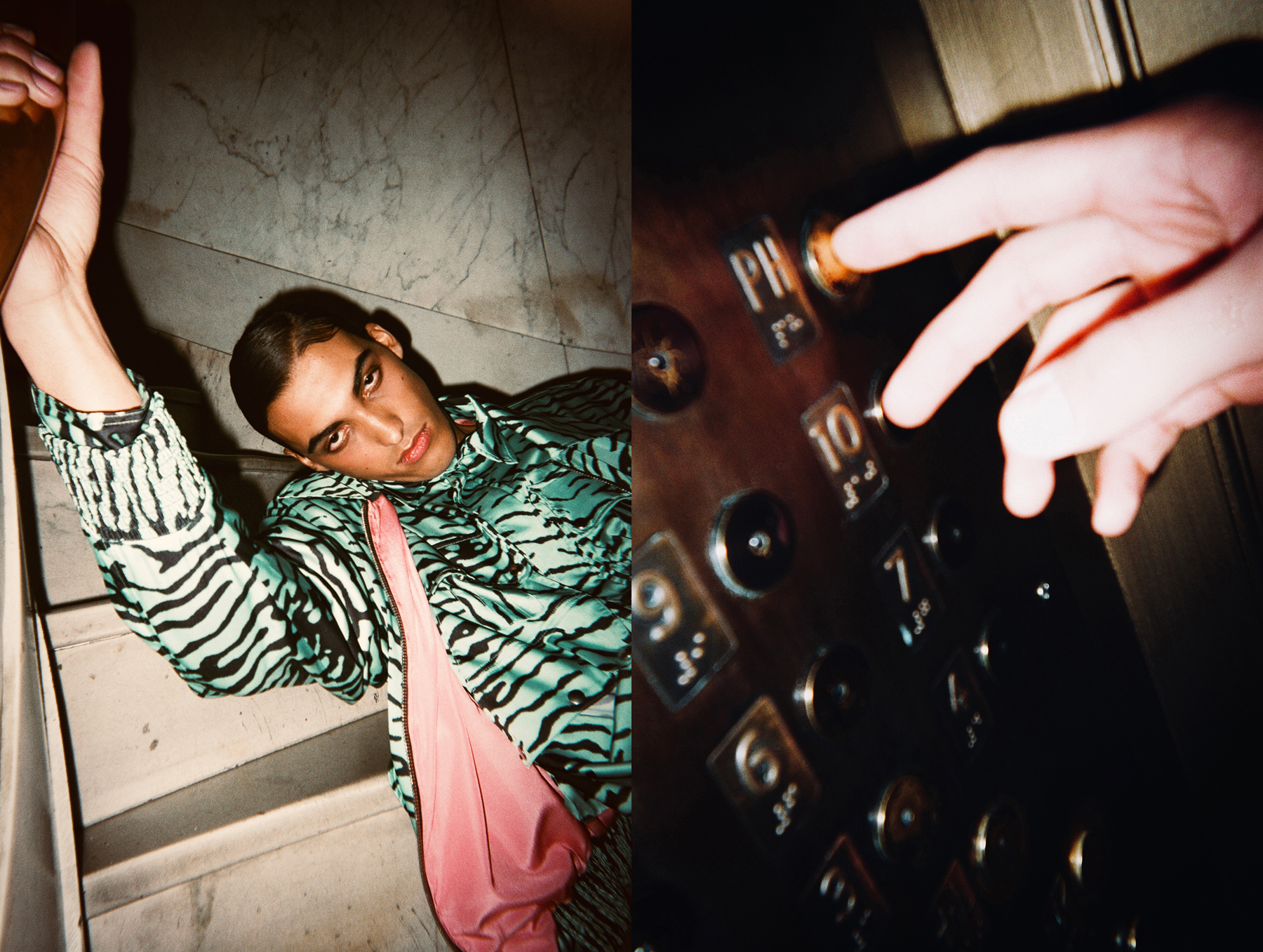
Jacket – FAITH CONNEXION

Tank – JUNYA WATANABE, Sunglasses – CARTIER

Shirt & Shorts – MAISON VALENTINO

Jacket, Shirt & Pant – DSQUARED2, Boots – DOC MARTENS


Briefs – TOM FORD

Jacket – VIVIENNE WESTWOOD, Hat – RICK OWENS

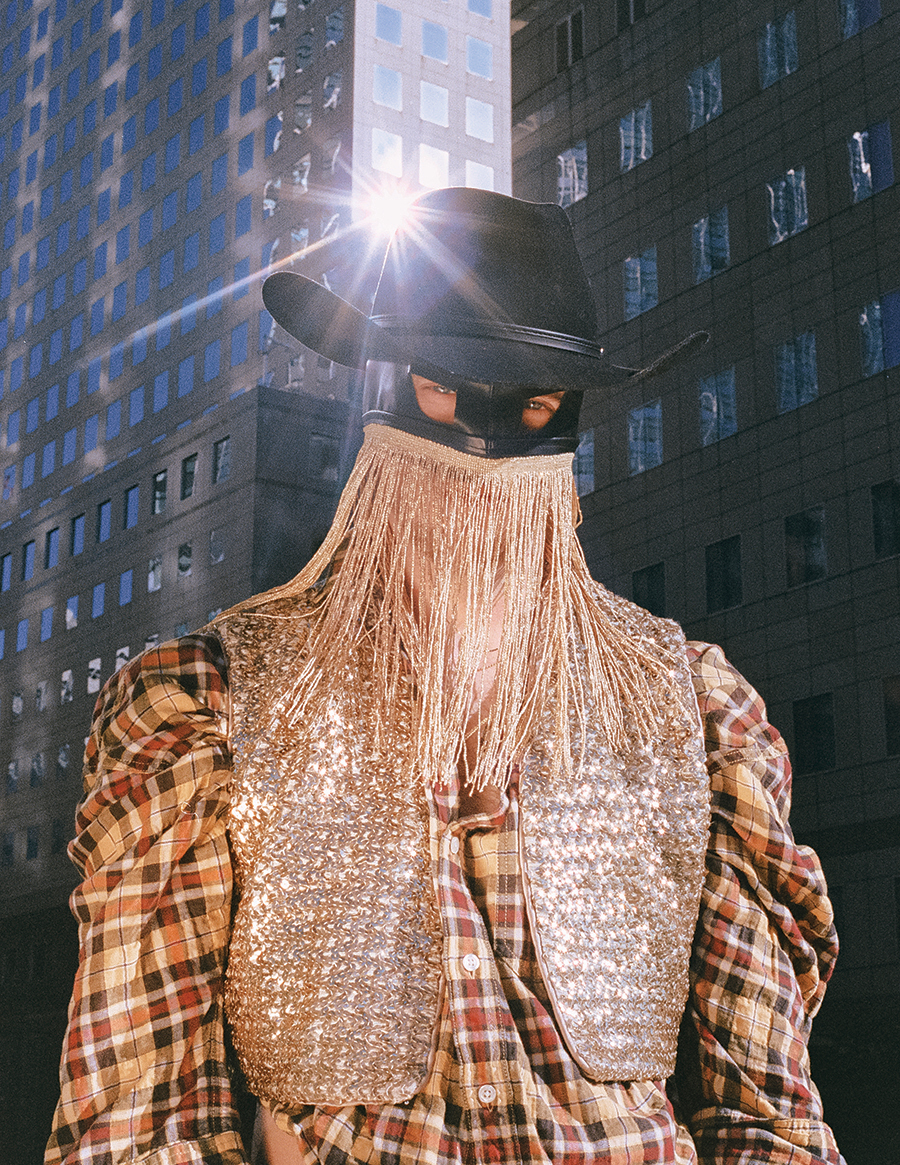
Photographer: Emma Craft @emmacraft
Stylist: Angel Emmanuel @angelemmanuel
Photo Assistant: Michael Decristofaro @m.decristo
Editor in Chief: Marc Sifuentes @marc.sifuentes
Creative Director: Louis Liu @herecomeslouis
Interview by: Dustin Mansyur @dmansyur
With his fringed masks, rhinestone suits, and shoegazing lyricism, Orville Peck is every bit the part of “lonesome outlaw”. Reimagining tropes of tradition, Peck’s take on country music reinvents the genre as a decorated landscape ready for queer expression.
Orville Peck is a nomad. Like a cowboy on a cattle drive, home is an elusive feeling; the masked musician who’s been described as every imaginable synonym for “enigma” feels happiest hanging his hat just off the highway in a roadside motel. The open road is a part of his DNA, having traversed and inhabited several continents, countries, and cities as a boy. His incessancy for wanderlust belies a romantic narrative spun in the stories of his songs, lulling his listeners on a quixotic journey through a memoryscape evocative of another time and place.
Releasing Pony in March earlier this year, Peck’s sincere approach to his storytelling and lyricism is reminiscent of Lucinda Williams or Patsy Cline, intimate and unadulterated. His vocals are as hypnotic and coaxing as a desert oasis on Route 190 through Death Valley. Somewhere between the inexplicable pain of loss resides the unparalleled elation of love and lust. It is the proverbial longhorn skull and rose motif. As a queer artist who croons about gay hustlers or doomed love affairs, his sincerity is the foundation for his music’s transcendency, appealing to longtime country music fans while attracting a younger, more diverse audience to the genre. In an era demanding the commodity of content, Peck deciphers himself apart from the formulaic clout of music industry contemporaries through his visceral ability to be truthful. It is this vulnerability that cannot be faked nor bought, and an even rarer quality for a performer as sensitive as Peck, fearlessly weaving the stories of his experiences and muses into the embroidery of his album; Pony is forthcoming and unapologetic. While the illusion of his shrouded pageantry may have him pegged as the “musical outlaw”, coupled with the intimacy of his music, it creates a contrasting dichotomy that is equal parts mystifying and infatuating.
Ready to saddle up and lead a cavalry of change in the country music industry, IRIS Covet Book shares a conversation with the artist just before he embarked on the European leg of his tour.
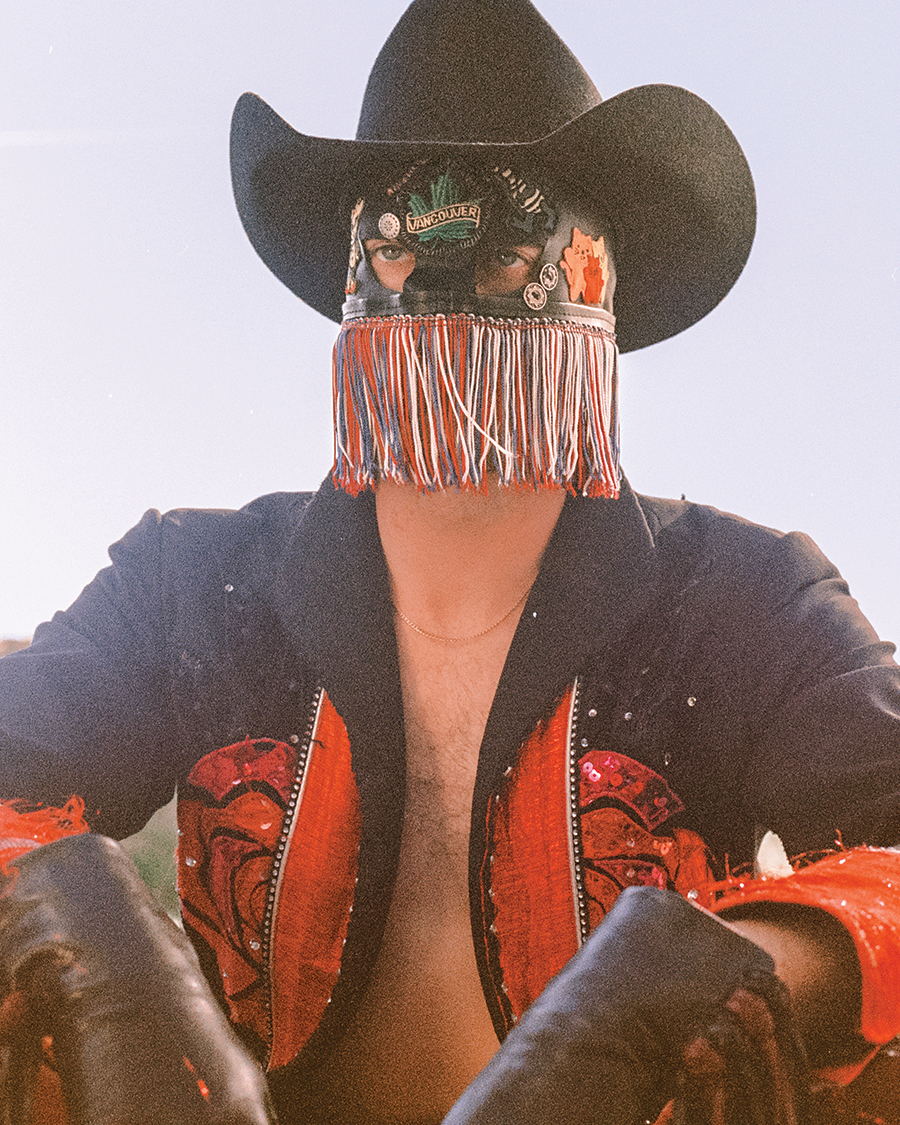
Jacket from Screaming Mimi’s Vintage, Hat: Stetson, Gloves: Maison Fabre, Necklace: His own
Listening to your album, really took me back to my experience as a gay person of color who grew up in the rural Midwest on country music, struggling to find acceptance in the 500-person town I was raised in. Because of your music’s authenticity, one might easily assume you had a similar experience. Where are you from and what was your experience like growing up?
I mean I grew up in a bunch of different places, by the time I was in my early twenties I reckon 5 different countries and many many cities. I’ve lived in Africa, in Canada, in the States, and in Europe—so I moved around a lot. My parents were both from kind of humble beginnings and whenever they did kind of have any money they would put the emphasis on traveling and getting to go and experience new places and cultures. So I think I grew up with a pretty diverse view of the world, in general, but especially in music and art. And I think country music always connected with me because, not only did I love the instrumentation and the themes, but I also related to the environment that it’s set in. I was born and grew up in a desert area, so there were obvious connections to it. As a young gay weirdo, I was really drawn towards the campness of it, the bold storytelling, the theatrical nature of it, which also ran kind of congruent with a lot of sincerity, heartbreak and loneliness which are all kinds of things that I felt and I still carry around with me now.
It’s funny because country music has this stigma surrounding it that it’s supposed to be for well-adjusted conservative, aggressive, white men. It’s sad because like you said yourself, a lot of queer people of color or marginalized people that grow up in small towns feel outside of country music. But the stories within country music—even going back to artists like Patsy Cline—I think those stories speak clearly to people like us. I think also that’s why it’s so obvious that someone like Dolly Parton is such an icon for gay people because she’s someone that had to blaze her own trail and really really convince people to listen to her by dressing provocatively and wearing crazy wigs and essentially being, you know, like a drag queen. But, she could also write some of the most heartbreaking gut wrenching songs of our whole civilization. I think country music has always been written by outsiders and it’s always been for outsiders. I hope to help to break that stigma down because it’s not supposed to be only for white men in trucks or whatever.
How did you break into the music industry; was it something you always imagined you’d be doing?
I was a performer since I was about 10 years old. I started with acting and I was a dancer for a long time and I’ve always been a singer. There were always instruments around my house, I never had formal lessons but I taught myself how to play guitar and piano. I think I just always knew that I was going to be a performer in some way. I’ve been in a bunch of different types of bands all through my twenties, but I knew that I always wanted to make country music and I always wanted to really sing and I never had the confidence to do it for a long time. Then I took a break from music for about 6 years at one point and then when I came back to it I knew I wanted to do country music because it had always been in the back of my mind.
You’ve toured extensively with punk rock bands. Do you find a correlation between the genres and your approach?
Definitely, there’s a similar rebellion, of course. I think there’s a similar aesthetic in some ways. The punk that I grew up loving was early seventies kind of punk. Those people all had pseudonyms; they all had costumes that they wore. You know they spent more time on hair and makeup than most musicians probably do now. So I think that there’s a lot of correlations between country music which is essentially pageantry and drama mixed with vulturous sincerity and heartbreak and I think that that’s kind of what punk is too.
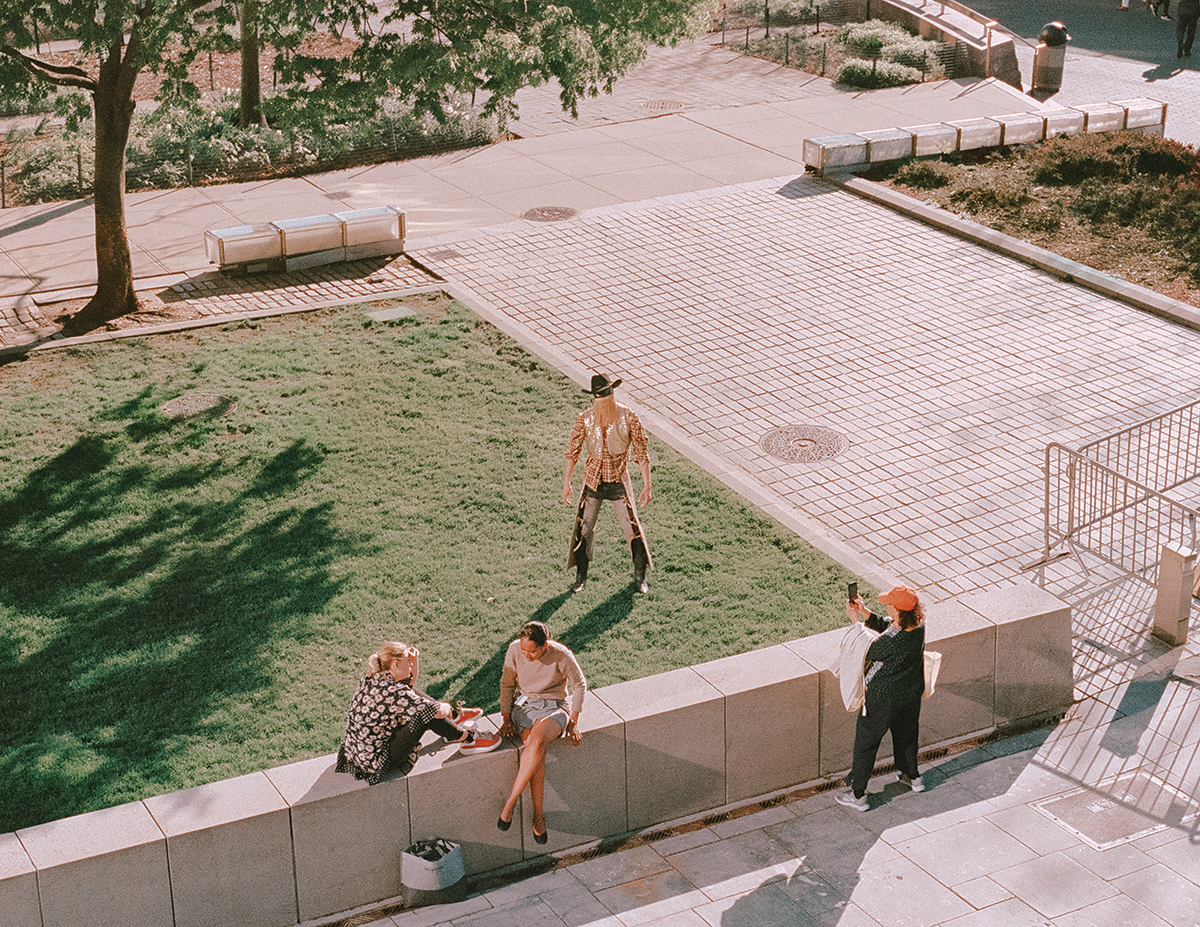
Shirt and Jeans: R13, Vest and Chaps from Screaming Mimi’s Vintage, Hat: Stetson, Boots: Star Boots
Returning to country music, did it feel like you were returning to your roots in a way?
What I do now feels so easy in a way because as I’ve gotten older, I’ve realized that it’s the easiest thing to just be yourself. The best qualities about you are the most sincere ones. Of course, I still struggle with insecurities about it and I have self-doubts, but the older I’ve gotten, it’s become easier for me. Even though I’ve been a performer for so long and been doing it as a job for a long time, I think this time I can really sit back and enjoy it for the first time because it’s become fun and easy to be myself.
You’re about to embark on your European Tour for “Pony”. You’ve described yourself as a “born drifter”, which kind of furthers the romanticism of your musical canon and persona. What is it about the open road or a nomadic lifestyle that calls you?
I’ve just always felt anxious. As I’ve said, I moved around a lot when I was younger, so I think the idea of moving to new places and kind of making your home wherever you are—that’s always just been part of me I suppose. I find it very hard to put roots down. Oftentimes I’ve tried to stay in cities for long periods of time and I’ve always kind of gotten anxious and not really known where my place is. Part of what appeals to me now is that I’ve learned to really find the adventure in it and not look at it as a downside. When people ask me where I’m from and I say lots of places, it’s not to be obtuse or enigmatic, it’s just because I genuinely feel like I have left little pieces of myself in all these different places that I’ve lived. That to me is so special because I can go back to those cities and feel like I’m right back at home in a way that I’ve gotten to meet incredible friends and family all over the world. So I think those are things that appeal to me about it. I’m just someone that’s never been able to sit still.
Do you feel most at home when you’re on tour?
Yes, I do. I definitely feel most comfortable. When I’m stuck in one city and I have a lot to do like I am right now— I’m about to leave in two days again for tour—but I tend to have the most anxiety and stress when I’m stuck in one place. I do feel at home on tour; I just feel at home when I’m traveling.
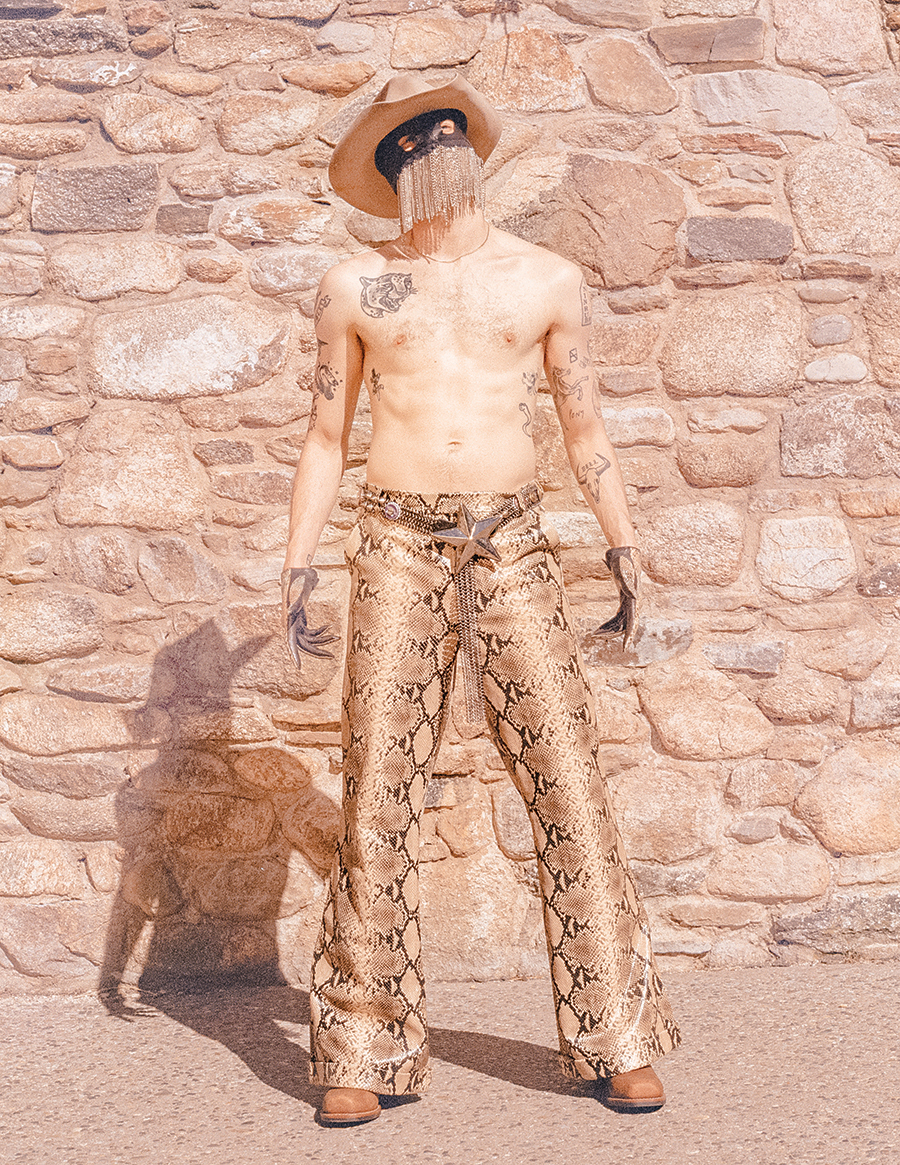
Pants: Gucci, Hat: Stetson, Gloves: Wing + Weft Gloves, Belt: Diesel, Belt Buckle: Stylists Own, Boots: Frye, Necklace: His own
What is your song-writing process? How often do you write? Is it an ongoing discipline or something you do only when you apportion studio time for it?
I’m kind of writing all the time. It’s all different. Sometimes it’s an idea just based around a concept for a song. Sometimes it’s based around a melody that I have in my head. Other times it’s based around one lyric or a line that I want to try to incorporate. Oftentimes I start from more of a visual or kind of an emotive place where I know what kind of vibe I want the song to be or what emotion I want to evoke for the person listening to it. Then I go from there by making it personal to me and hopefully telling a good story at the same time.
Pony was released in March earlier this year and received with splashy critical praise as well as excitement from your fans who’ve been waiting for it since your single release of “Dead of Night” in 2017. What are you most proud of about the album, and can you share any personal anecdotes from the recording process?
What I’m most proud about and just generally about the past year is that I’ve been able to express myself as an artist. That includes collaborating with people, which is something I never used to be very good at doing. I’ve learned in the past year to really embrace that. And I find it really fun and exciting now being able to work with people on videos, visuals, aesthetics, stylists… as an artist I think it’s really important. Then in addition to that, getting to do what I’ve wanted to do since I was little, which is to be a singer and really sing, and sing about heartache and things that are important to me and things that are sometimes difficult for me to sing about. I think the bonus of that is everyone enjoying it; it’s more than you could ask for and I find it very fulfilling.
I’m curious if you ever struggled with proclaiming yourself as a gay artist right from the start or did you ever feel that you would embark on your career and let it come out naturally? How important is it to your brand?
I’ve never struggled with it. I think it’s important to me and it’s also not important at all in a way. As an artist, if I’m going to write songs with any kind of authenticity they’re going to have to be from my perspective and my experiences. And my perspective and my experiences happen to be of someone who has been with men. To me it’s kind of a non topic in a sense, but not because I’m dismissive of it, but because to me I’m just following in the footsteps of every other singer and songwriter who sang about the people they were with and sang about their problems. I just feel like I’m being genuine to myself so of course it’s going to be about men if that’s who I’ve been with. So I think on one hand it’s a huge part of who I am, what I do, and what I sing about. I’m completely proud and open about being gay and being part of that community, but I also think it could hold just as much weight if it wasn’t my background either.
What has been your greatest internal or professional challenge that you’ve had to overcome as an artist thus far?
My biggest challenge I guess has been trusting and really believing in myself I guess, which is something I learned through the help of other people a lot more in the past couple of years. I always was a creative child. I knew what I always wanted to do; I knew that I could write songs and I knew I could perform and make people smile and clap. But I think I still had a lot of barriers and defenses up,and in some ways I still do. I just never had much opportunity to really collaborate with people growing up, so that’s been a big learning curve for me. It’s interesting because I used to think that opening myself up to working with other people or even really opening myself up to sharing personal things about myself through my art would in some weird way dilute me as an artist. But it’s only just really enriched me as an artist and made it far more exciting. That’s been a struggle for me but it’s been a nice struggle in a way — It’s important to be far more open than I used to be.
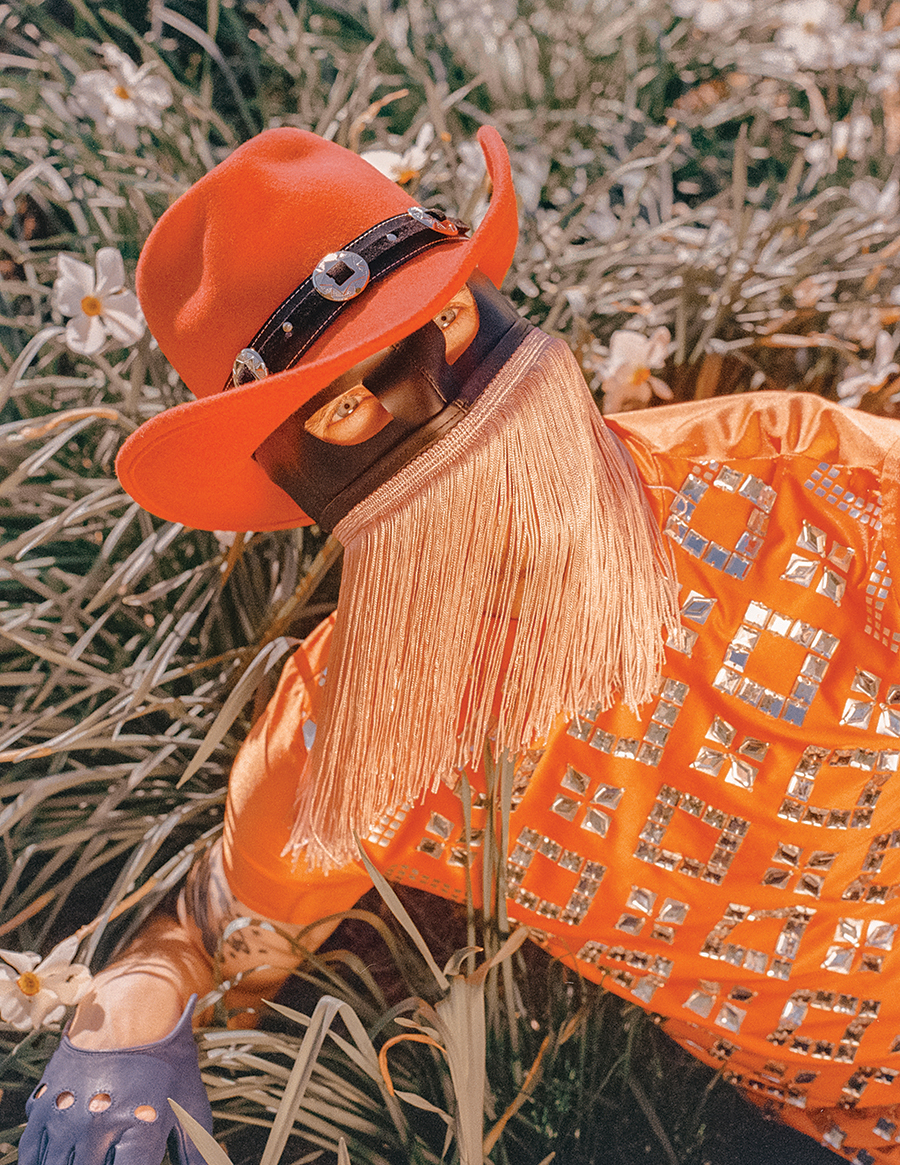
Vintage Jean Paul Gaultier top from Screaming Mimi’s Vintage, Hat: Silverado Hats, Gloves: Perrin Paris
Was there a defining moment in your career that proved to be a turning point or breakout moment that propelled you to the next level?
I think a lot of artists and creative people struggle with the fact of embracing that they’re going to do this for real or whatever. Like of course you have to supplement art with an income and usually that means working some job you’re not really interested in and that’s kind of soul sucking. But it’s also about a state of mind, just fully deciding one day that you know you are going to do it for real and you are going to own it. Even though I was a performer since I was very young, I still had those fears. It wasn’t until maybe my mid-twenties that I decided that I’m only going to be an artist and everything else is purely to facilitate that. It’s just that mine is a change of mindframe and a “jumping-out-the-airplane” thing. You just have to do it.
Queer people working in media and entertainment have enriched the sector, and provided more representation for fans who identify with and relate to what you’re creating as an artist. When you were growing up, did you have any queer icons you looked up to?
Definitely, I was a fan of the obvious ones like David Bowie and Freddie Mercury. I grew up loving dance and theater so there was no shortage of queer icons in that world. But I also grew up with a lot of icons who weren’t queer, I never felt outside of those people being references or inspiration for what I do. I never let the fact that I was gay define anything about me as an artist. Of course it’s enriched me in lots of ways, but I never let it be a barrier.
Now that you have this platform and visibility, how do you hope you can influence a younger generation of LGBTQ fans through your music?
It’s really lovely when I hear from young queer or trans people that tell me I represent something for them in country music that they never thought was there, or that they never felt a part of. If I can be that for someone, then I feel completely honored and thrilled by that. I hope that people feel welcome to express themselves and be a part of anything that they feel they want to be a part of, and not feel like the color of their skin or their gender, sexual orientation, or anything else should limit them. I think as marginalized people we tend to have to stand on the sidelines and be a fan from a distance or feel like maybe we don’t belong. I hope it inspires people to take up more room and get on and be a part of it because it is part of them, it’s already part of them, and there’s no invitation needed.
You’ve mentioned in previous interviews the landscape of country music is diversifying to include many new types of sounds and voices. How important is it to you to expand the genre and/or to receive acceptance from the mainstream country music industry?
I think it’s important to me in the sense that country music has always been diverse and there’s always been people of color making country music, there’s always been gay people making country music. Unfortunately, those things haven’t been able to be very visible. So I think it’s been a long time coming now that those different perspectives in country music are visible. I think it’s happening quite quickly now, and those walls put up by industry people in mainstream country music are starting to crumble. We’re getting a lot of weird new voices in country music, some have always been there, but they’re starting to creep through the cracks now. I think that’s great because it’ll just start ending the stigma about who country music is for.
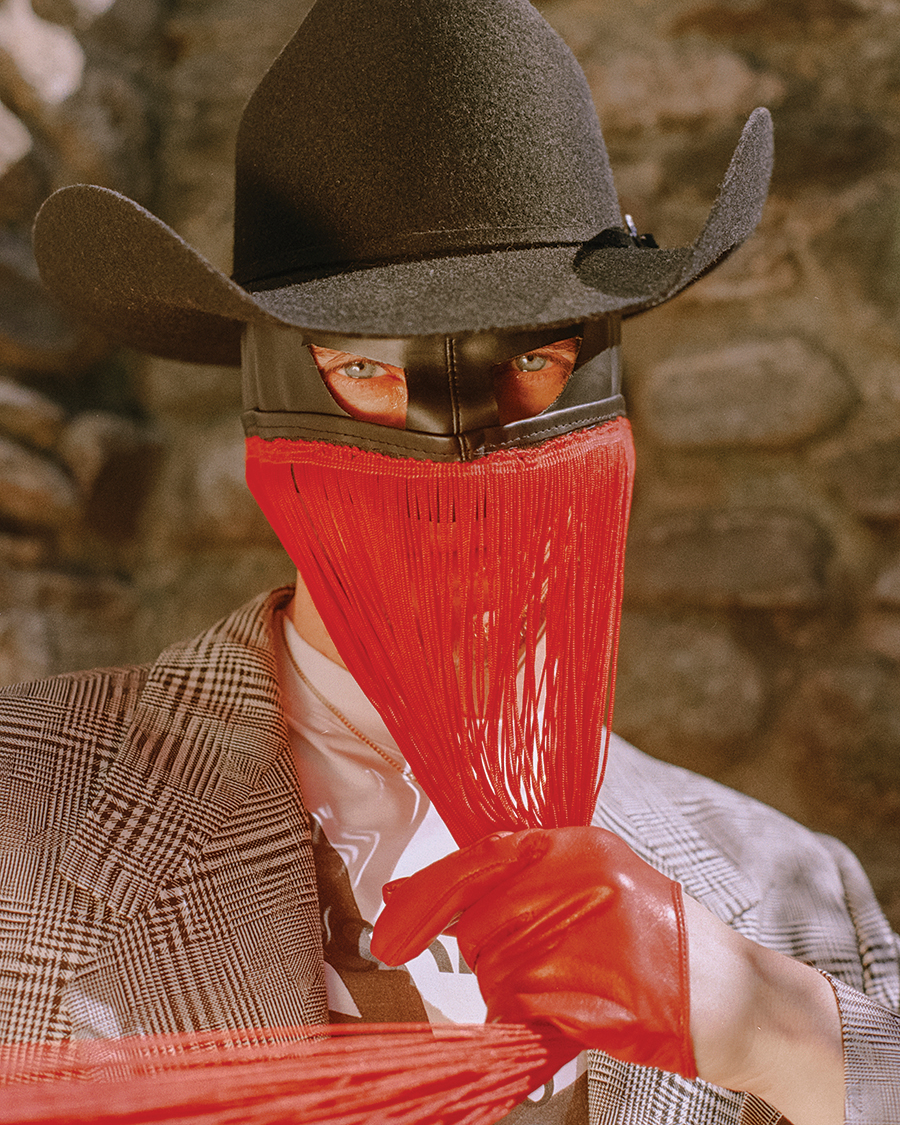
Shirt, Coat, Pants, Boxer Briefs: Versace, Hat: Stetson, Gloves: Lincoln, Boots: Star Boots
You’ve talked about your mask as having dual-purpose: an element of showmanship and a tool that allows you to be more raw / exposed as an artist. How did you arrive at the mask? Did you create the first one or did you work with a stylist or designer to engineer the look?
It’s all me and I make them. I think it was just my version of following in the footsteps of many country performers who had bold, camp, flamboyant visual imagery to their performance. There’s a huge lineage of that and a lot of them are very straight, conservative people in country music that would wear bedazzled rhinestone suits. Dolly Parton would wear 3-foot high wigs. It’s all in that sphere, so I’m definitely not the first person to do it. Maybe for newer country musicians it’s not as common, but that’s basically where I’m coming from.
Do you connect more with your audience because of the mask?
I think so. I think it eliminates a certain amount of pretense. I think it destroys the mask that people walk around wearing everyday, which you know, isn’t a real necessarily mask. I think it eliminates a lot of bullshit especially. It’s the same as when people feel so comfortable around a drag queen or someone like that. Something about it just puts people at ease and makes them feel like they can be comfortable and be themselves. That’s what I experience in my shows with people and they all look like they’re really connected to the performance because of it I think.
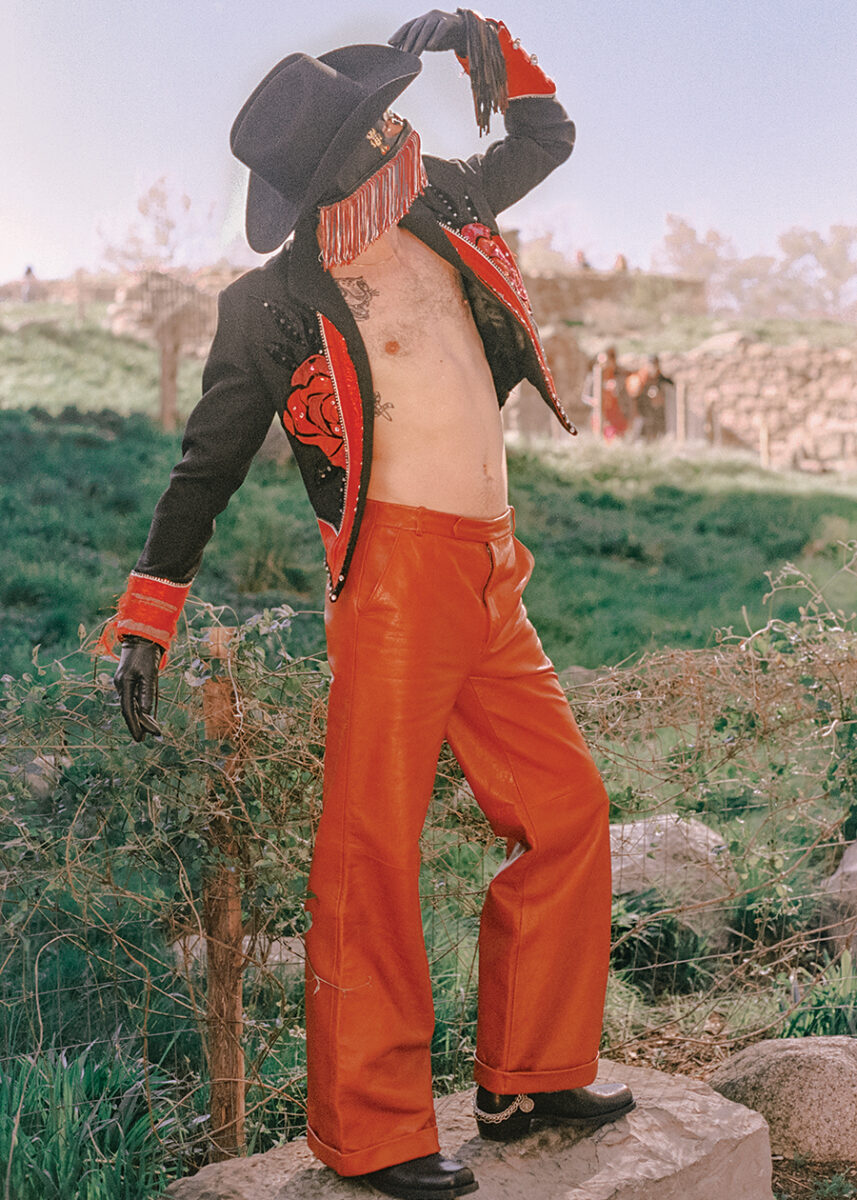
Jacket from Screaming Mimi’s Vintage, Pants: Gucci, Hat: Stetson, Gloves: Maison Fabre, Boots:Off-White, Necklace: His own
You’ve been described as a musical “outlaw” and the mask reinforces this idea. In a way it’s reminiscent of a bandana-wearing bandit hero, like Zorro or the Lone Ranger. Do you think your audience responds or relates to it because of this idea of a hero-like figure?
I think so. I think people project a lot of different interpretations of it. That’s what I love about it and that’s also why I hate to talk too much about it because I don’t want to put too much narrative on top of it. I actually like that people can have their own interpretation of it. Some people look at it and think of the Lone Ranger and then some people look at it and see an S&M mask and it’s like, well that tells me a lot about that person. That’s what I like about it—that it is open for interpretation. And it allows people to be involved in what I do. For a fan to feel involved in it and that they can get a piece of that too, then that is what you could only hope for as an artist. People not only enjoy what you do but they’re invested and they feel a part of it. Some of the musicians, visual artists, actors, filmmakers, and authors that I still respect to this day are people that made me feel like I had some ownership of what they did as well.
The dichotomy of being an openly queer artist while hiding your physical features is a striking juxtaposition. Do you think you’ll ever “out” yourself physically from under the mask?
I don’t know. To me I don’t feel like I’m hiding at all. I feel like I wear my heart on my sleeve in a lot of ways. We’ll see what that evolution is. At the moment I’m really happy just doing my thing as I’m doing it.
Your music explores the nostalgia of Americana and its sound. It’s a staple source of inspiration for many iconic popular country and folk-rock ballads. Having such a diverse international background, what inspires you most about Americana?
I think it’s the seemingly normality. I think Americana as we’ve been told to believe is apple pie. It’s very clean and neat with a picket fence. The reality of American culture is far weirder and darker than that at times. It involves a lot of trauma and craziness. I think that’s the part of Americana that I find far more fascinating. I think that is the real Americana. I always talk about how I love motels because the idea of this like chic version of a hotel that is on a highway and it’s very cheap, there’s no questions asked and sometimes people live in them for months at a time. That doesn’t even exist anywhere else in the world and that’s like a whole culture of America that is of its own. I find that really fascinating and I think the people and characters that inhabit those kind of worlds are really interesting.
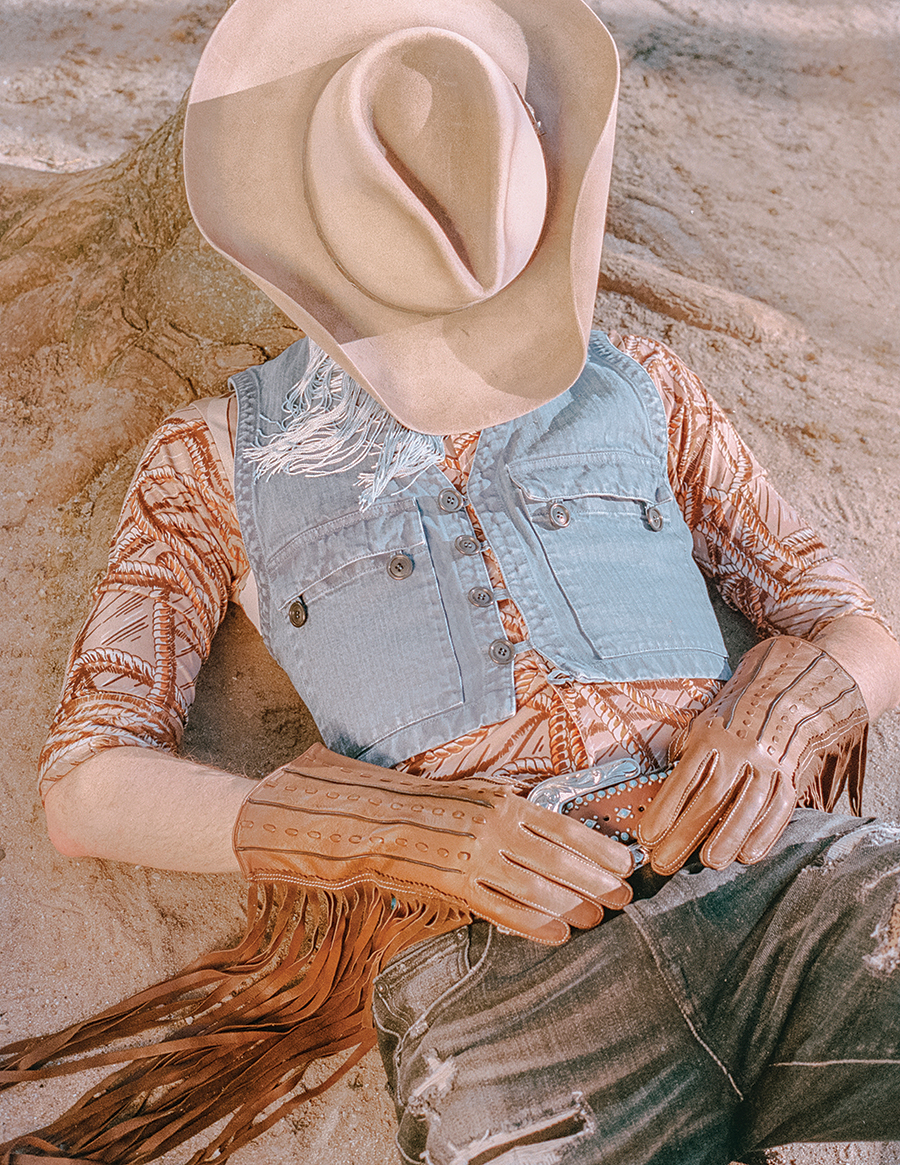
Shirt from Screaming Mimi’s Vintage, Vest: Gucci, Jeans: R13, Hat: Stetson, Gloves: Agnelle, Belt: Kippys, Boots: Fyre
So many artists reinvent themselves over the course of their career. With your musical training, background, and musical influences being so diverse – Do you think you’ll stay exclusively a country music artist or begin to incorporate other sounds into your work?
I think I’ve always been kind of incorporating different sounds into it, but at heart I’m a country boy and I’ll continue to be a country musician. I think I’ll always try and push that to not leave it strictly in what other people’s idea of what country music is.
That darkness has, in recent times, become much more visible. Concentration camps have quickly become a new norm in America under the current administration. Trans rights have been challenged through rollbacks on protection for military service and healthcare provisions under the Affordable Care Act. Do you foresee this escalating its target on more LGBTQ+ people?
Unfortunately, I think I do. I think across the board not just with LGBTQ people, but also people of color, women, and marginalized people. In America we’ve been allowed to believe that things are changing but at the root of it nothing has been changing. Now that’s become more obvious to us and I think, strangely, not to sound flippant about it, but I believe that’s where this resurgence of cowboy aesthetic has actually come into play in our culture. To me being a cowboy has nothing to do with wearing a cowboy hat or being a rancher and roping cows or charging steers. I think being a cowboy is being someone who is intrinsically, innately on the outside of things and given a bad rap, maybe getting the short end of the straw, and forced to live on the outskirts of town. But instead of letting that be a negative, it’s about finding the power within that and the adventure and the freedom. The idea of getting on a horse and riding into the sunset, I think that sounds really beautiful for people like us right now where we can find our posse of rebels and cowboys, make our own rules and essentially live as outlaws. Those all sound like motifs and pastiche kind of ideas, but they do hold bearing. I think that is what being marginalized is about. It’s about not assimilating to the status quo, finding our community, our power, and charging ahead in the face of whatever. I think it’s a powerful thing, and I actually do believe that is why we’re seeing so much cowboy imagery in fashion and sub-culture and because there is something adventurous and powerful about that.
You alluded to this earlier in our conversation and in previous interviews drawn upon similarities between the Old West and the present state of affairs today saying, “We lived in a recent time when we hoped everything was going to be okay, that the powers that be were going to sort it out. But now everyone’s fending for themselves because they’re disappointed. Everyone’s on their own horse, doing their own thing.” So, if we’re all on our own horses, do you think we are equipped to become a calvary for change?
I think so. I do like to believe that. Listen, I have lived in countries other than America where I have seen, witnessed, had to live through massive social change on a really huge scale. I think it comes through perseverance and I think it comes to sticking to your guns and not swaying from who you are and what you believe in. I do believe that is powerful enough to make change because I’ve seen it happen. I think it’s time for all our posse, to find our community, and do exactly that—form a calvary and stick to who we are in the face of no matter what for change.
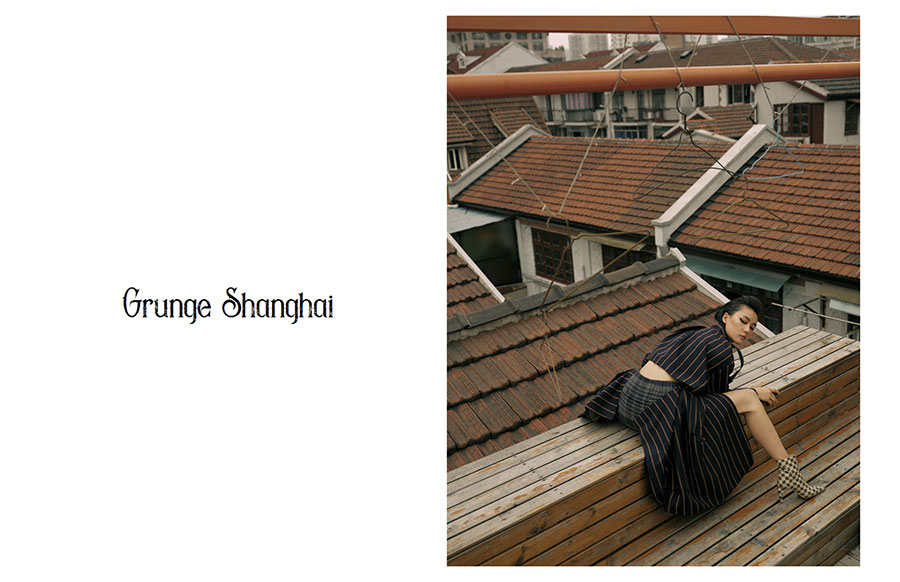
Trenchcoat by C+plus Series, Shoes by MISBHV
Photographer/ Videographer: Yuti Chang @yutiphotography
Fashion Stylist: Avivi Wang @aviviwang
Make-up Artist: Jonathan Wu @jonathanbyjwmakeup
Hair Stylist: David Z.
Model: Mengwei Luo with Longteng Model Management
Photography Assistant: Jianjun
Styling Assistant: Danney Li
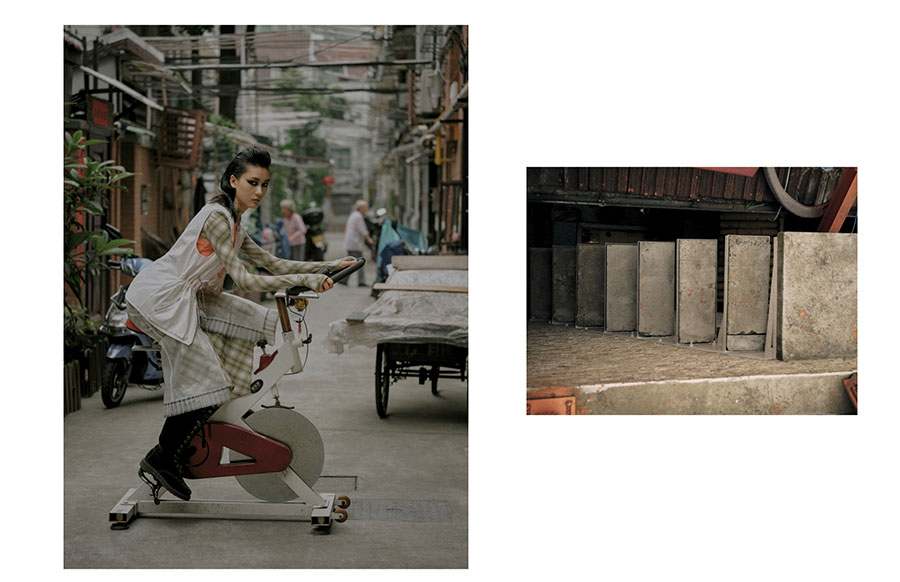
Top by Private Policy, Dress by C+plus Series, Skirt by Angus Chiang, Shoes by Dr. Martens
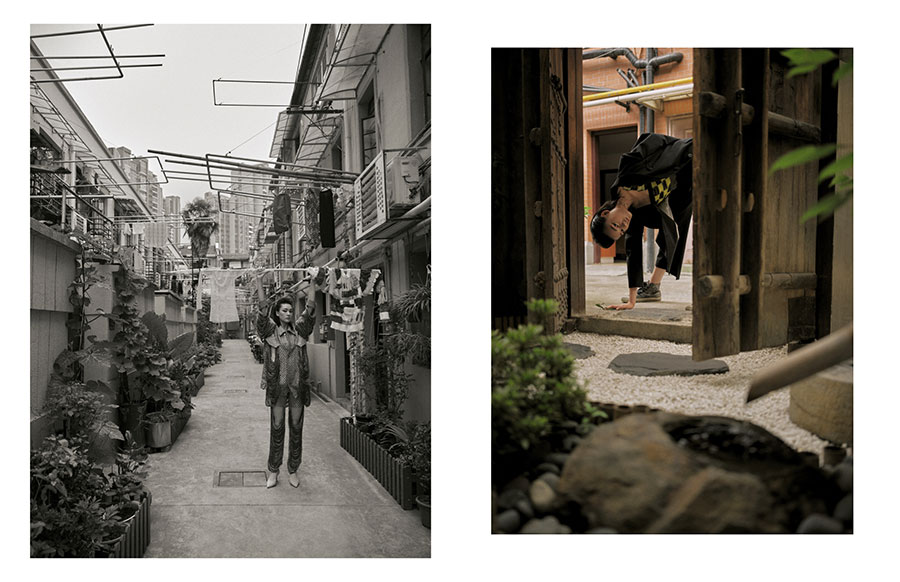
On the Left: Entire Outfit by C+plus Series, Shoes by Yeezy from Canal St.
On the Right: Entire Outfit by C+plus Series, Shoes by Converse
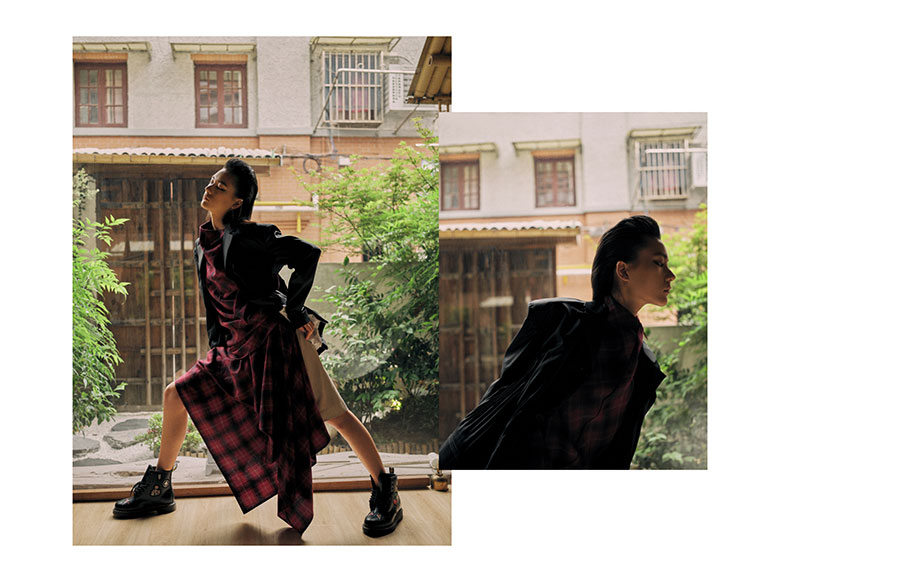
Entire Outfit by C+plus Series, Shoes by Dr. Martens
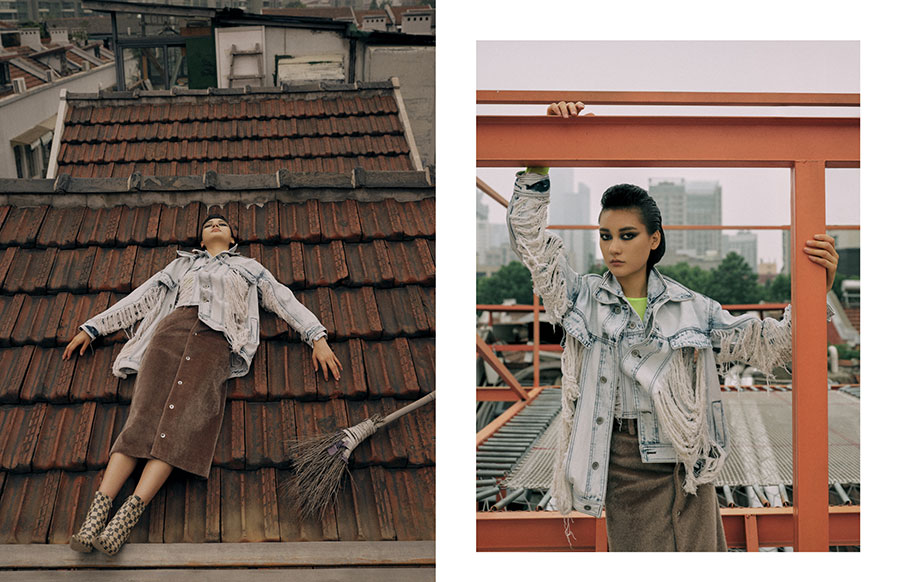
Entire Outfit by C+plus Series, Shoes by MISBHV
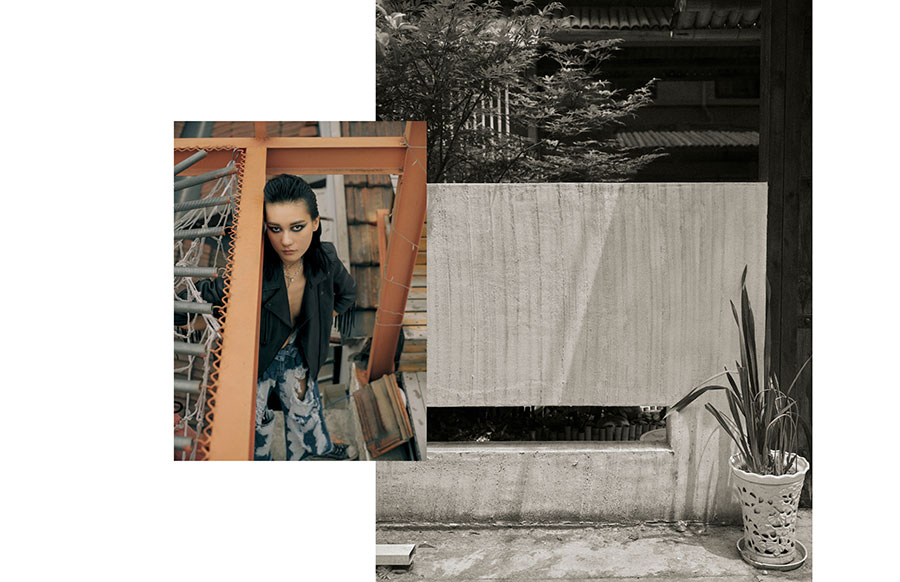
Entire Outfit is Stylist’s Own
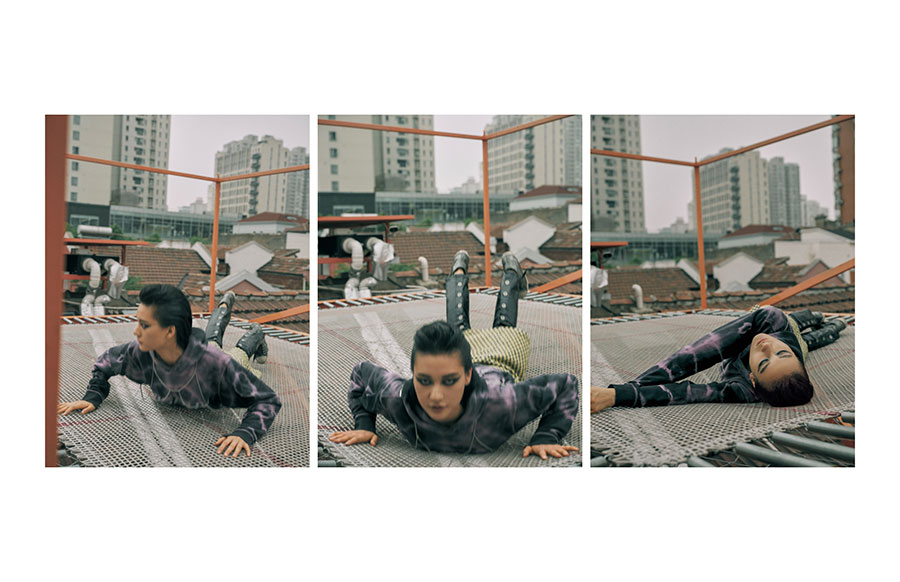
Top by MISBHV, Body Chain by Justine Clenquet, Skirt by C+plus Series, Bottom by C+plus Series, Shoes by Converse
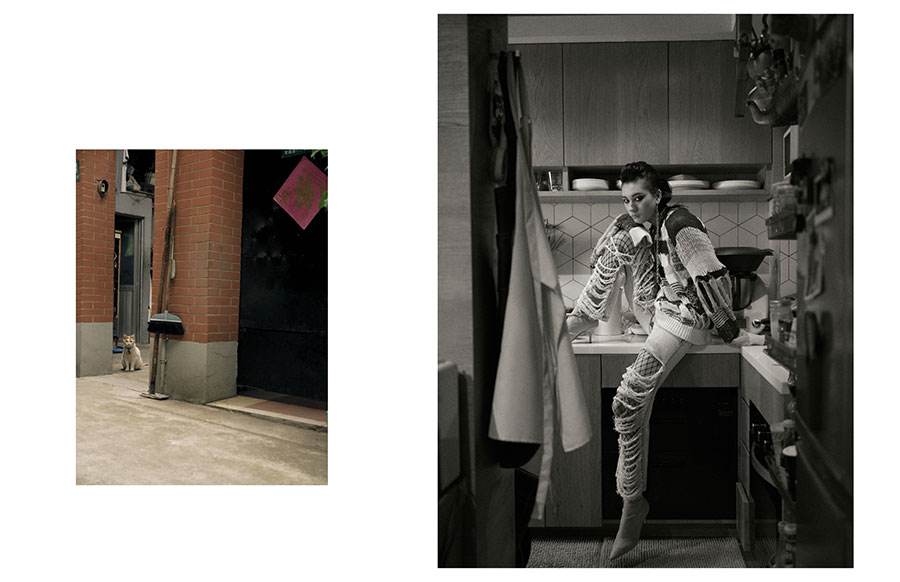
Top by Angus Chiang, Bottom by C+plus Series, Shoes by Yeezy from Canal St.
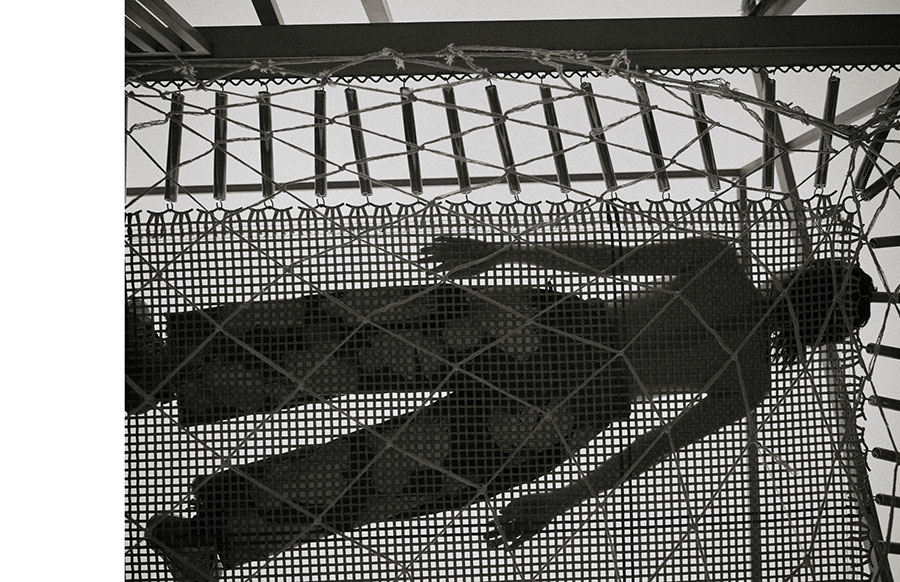
Entire Outfit is Stylist’s Own